 Sign in
Sign in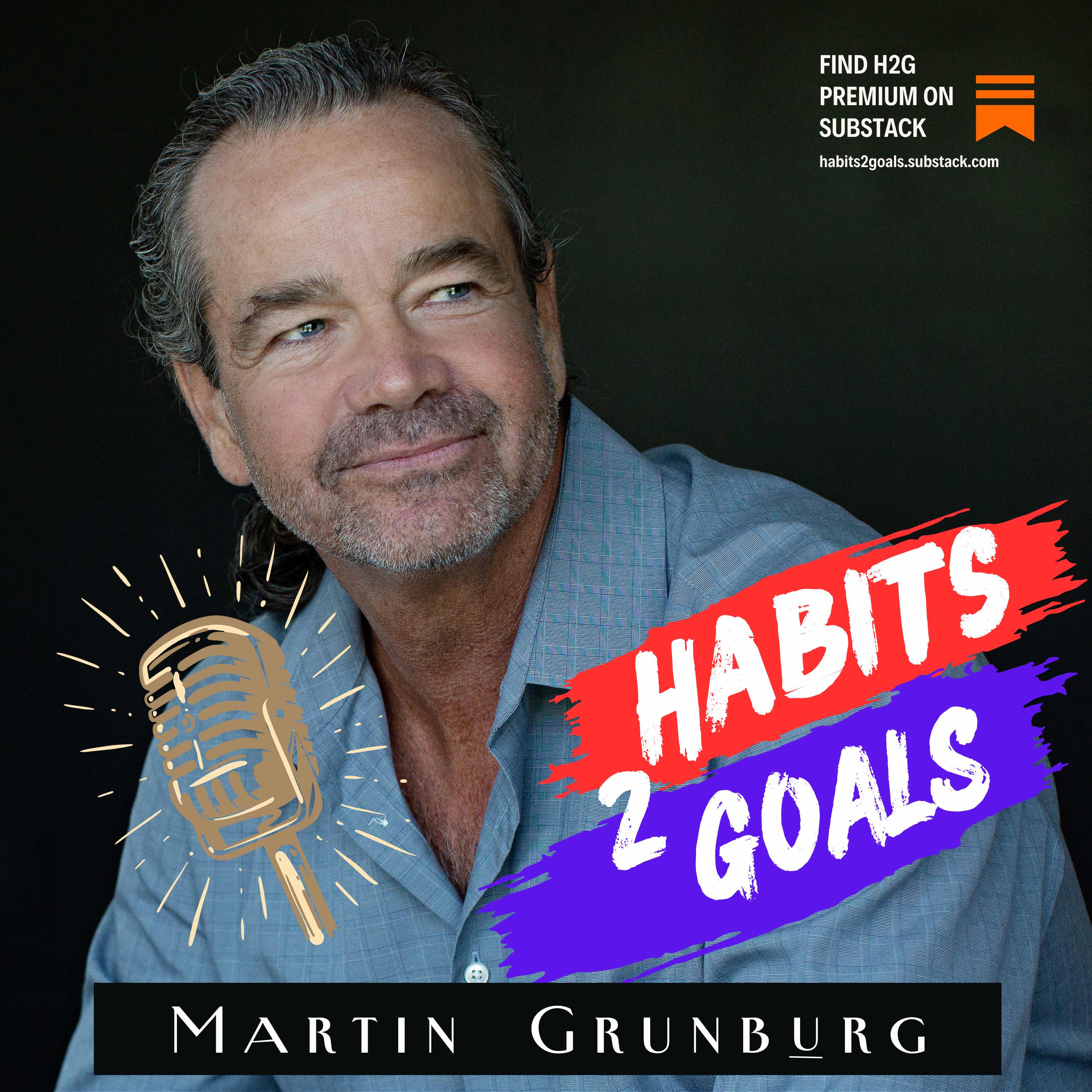
Education
Health & Fitness
Martin Grunburg
WE ARE NOW LIVE ON SUBSTACK w/ H2G Premium Content!
If you’ve ever struggled to achieve your goals you are not alone! The reason just might be because ALL prior goal achievement methods missed ONE key element— habit!
That's right, The Habit Factor® (bestselling book and app) exposed a timeless truth that helped to launch an entirely new genre of productivity apps (habit trackers) and help thousands around the world achieve their goals faster!
There’s a reason top coaches, consultants, trainers, Professional athletes, Olympians, PhD’s and the very best learning institutions world-wide have adopted and recommend The Habit Factor®.
Learn The Habit Factor's method for goal achievement and how to use Habit Alignment Technology™ to achieve your most important goals faster than you ever thought possible!
Learn more at: http://thehabitfactor.com habits2goals.substack.com
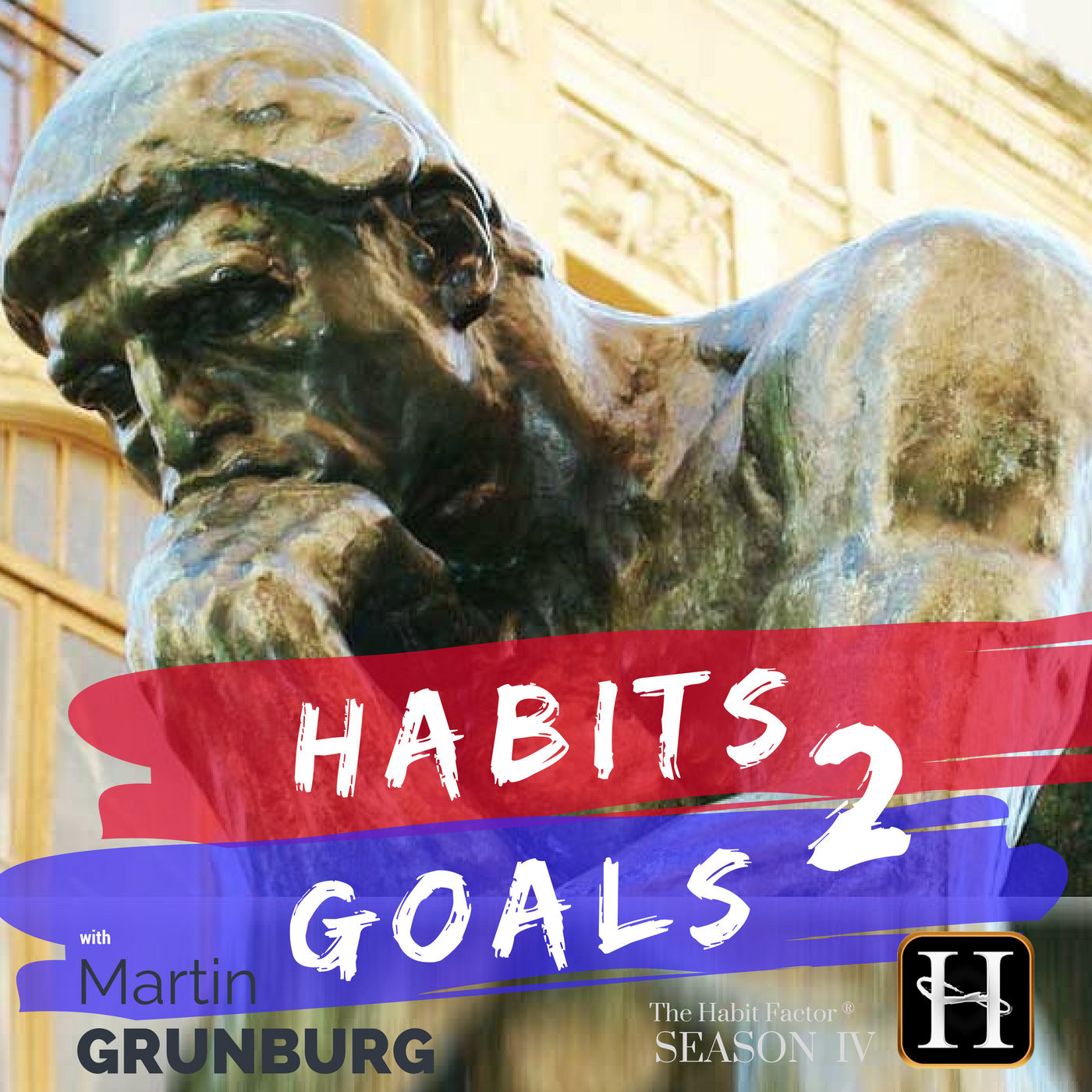
S02-Frequently Asked Friday 05: Should I Announce My Goals?
“You can't build a reputation telling people what you are going to do!” ~Henry FordIt's a commonly accepted practice after all... tell everyone about your goals so you are accountable and extra motivated to push forward, right?Well surprise - surprise! It turns out that announcing your goals is one of the biggest drains of energy and it often proves to diminish your chances of success as you strive to achieve your goal.Martin discusses his personal experience with this concept and how he noted his energy was best expended NOT in talking about his goals but in the act of getting busy to accomplish them— forging the habits that will accelerate the goals achievement.Martin then shares a related TED talk by Derek Sivers (link below) and some of the science Derek cites that contradicts the often promoted "tell everyone" tactic.Check out this week's F.A.F. and learn how keeping your trap shut is likely to put you on the fast track to goal achievement!If you still want to tell someone... Martin discusses exactly who you can share your most important goals with!________________Quick note of thanks and request: If these short episodes are helpful and provide value please share a review on itunes to help others find the show! SubscribeDon't miss a single episode. Subscribe to the podcast to get each episode sent directly to you. ResourcesDerek Sivers website: Sivers.orgThe TED talk by Derek Sivers "Keep Your Goals to Yourself"The Habit Factor appThe Habit Factor templateThe Habit Factor bookBig Brothers Big Sisters This is a public episode. If you’d like to discuss this with other subscribers or get access to bonus episodes, visit habits2goals.substack.com/subscribe
09:5025/03/2016
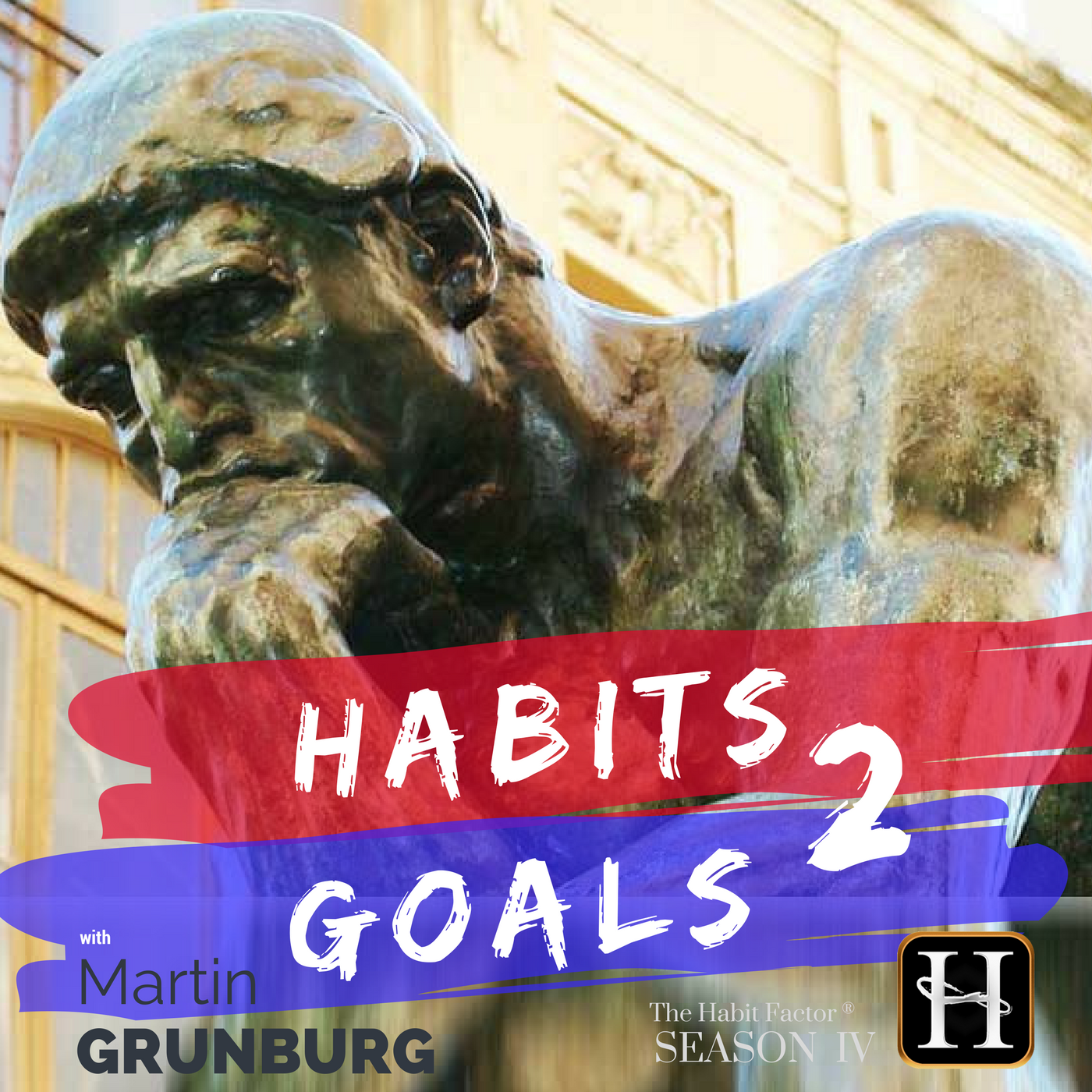
S02-INT05: Frank Scarpaci: Founder Vianova, The Power of The "B" Corp
“Companies see that there is so much value that comes from doing good in the community and it adds so much business value as well." “And I realized that through my many zigs and the zags I picked up experiences that really helped me to grow as a consultant." ~Frank ScarpaciFrank Scarpaci, a sought-after B corp and corporate social responsibility consultant, reviews a vast array of benefits related to becoming a "B" corporation (short for a "Benefit" corporation), a new type of corporation that puts social, community and environmental causes and stakeholders at equal value with corporate profits.Today, certified "B" corps span 47 countries and more than 130 industries and encompasses a growing community of more than 1,600 businesses!In this episode, Frank recounts his unique experience and the journey that led to him to becoming a leader in the space and a well-known consultant for aspiring businesses looking to become B corp certified.Frank shares many smart insights in this episode, including:How the B corp came aboutThe TOP well-known brands/companies that are B corpsHow he came to be recognized by AMEX as one of only 150 employees (out of 85,000) as a team member who embodied their "Good Citizenship" Value How to FIND A JOB with a B CorpHow to take the "B Impact Assessment" for your existing company Why it's important to share the good that you and your company provide for your communityFor business owners: Be sure to share and talk about the causes that matter to you and your company!Great places to work — a ranking of great companies to work for as well as other resourcesHow to check up on non-profits you are interested in and look under the hoodFrank's best habits, favorite books and how he defines "success"“We are in a perfect time where we are seeing this shift in the business community to start taking a look at a lot of these challenges..."----------------------------------------------------Frank has more than 30 years experience with corporate social responsibility, strategic planning, meeting facilitation, and event management experience and helps companies connect their business success to social good. Frank is a passionate advocate for the growing B Corp movement— simply a better way to do business. Frank's company, VIANOVA, was one of the first companies to earn B Corp certification in 2008.SubscribeDon't miss a single episode. Subscribe to the podcast to get each episode sent directly to you. ResourcesVIANOVA - Frank's CompanyLearn More - Become a B Corp — bcorporation.netThe Habit Factor appThe Habit Factor templateThe Habit Factor bookBig Brothers Big Sisters This is a public episode. If you’d like to discuss this with other subscribers or get access to bonus episodes, visit habits2goals.substack.com/subscribe
56:2223/03/2016
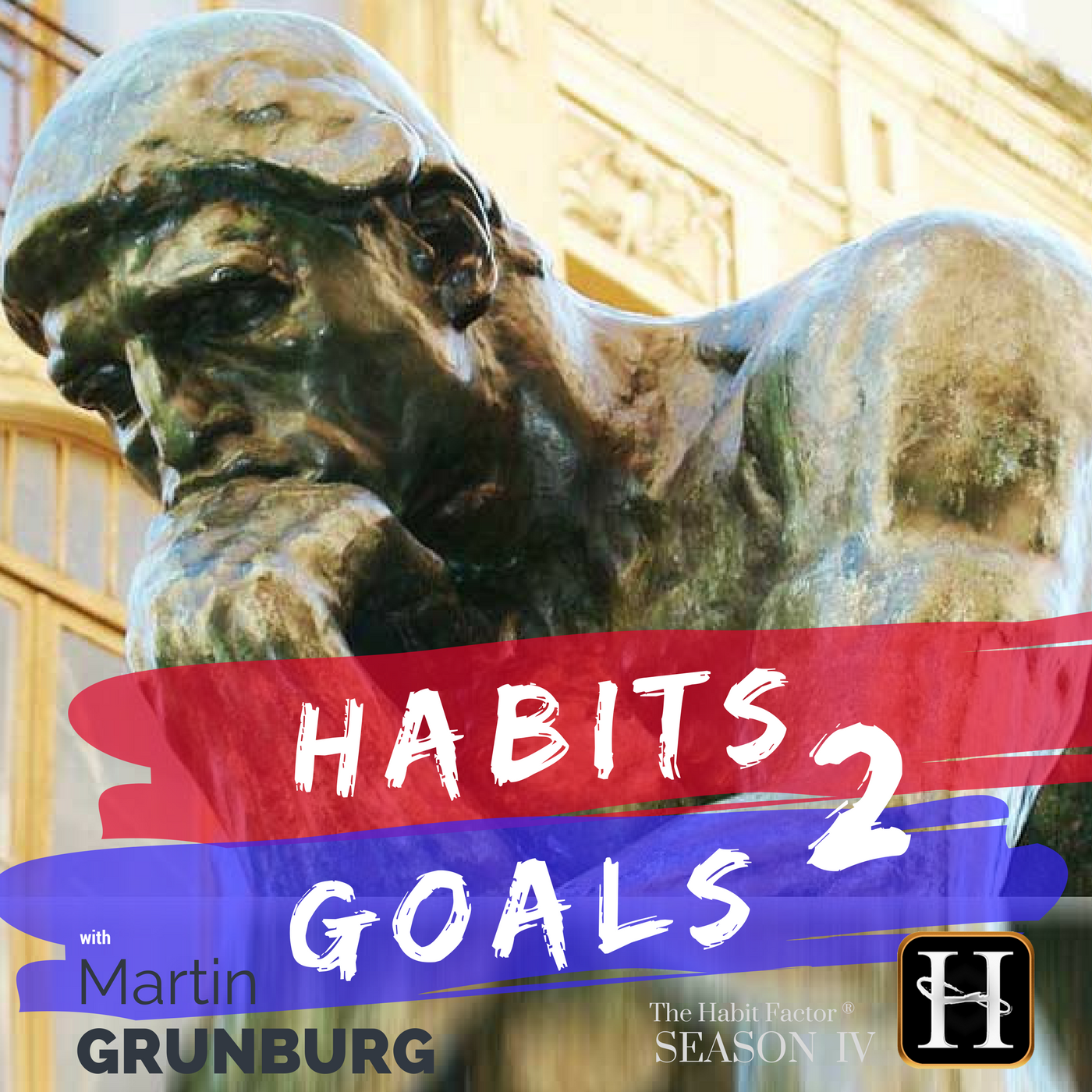
S02-Mind Bullet Monday 05: Humans Are Justifying Creatures
"Humans are justifying creatures... we'll craft a story and then we'll dig-in and get behind it. The exercise is, I think, to challenge our story recognizing that is our nature."While many people may be naturally gifted when it comes to interpersonal skills, others struggle in the area and it often holds them back and expends a lot of time and energy.What most people fail to recognize is that arguments are often rooted in the simple truth that nobody wants to be thought of as stupid or dumb and therefore will do whatever they can to position themselves as "right" and justify their actions, no matter what they might have been.Consider this truth and how it might be useful when understanding and relating to friends, family and others better— to help avoid unnecessary arguments.Whether it's as mundane as not doing the dishes or as horrible as murder one tends to justify their actions. And, it's important to note that people will as fiercely defend their non-actions as their their actions!"People will either show you their results or they will show you their excuses." Martin asks listeners to examine various aspects of their lives, analyze those results and simply ask, "What am I justifying?" Check it out now... hear all about it n this Mind Bullet Monday! SubscribeDon't miss a single episode. Subscribe to the podcast to get each episode sent directly to you. ResourcesBrian Tracy: Maximum Achievement: Strategies and Skills That Will Unlock Your Hidden Powers to Succeed The Habit Factor appThe Habit Factor templateThe Habit Factor bookBig Brothers Big Sisters This is a public episode. If you’d like to discuss this with other subscribers or get access to bonus episodes, visit habits2goals.substack.com/subscribe
11:2521/03/2016
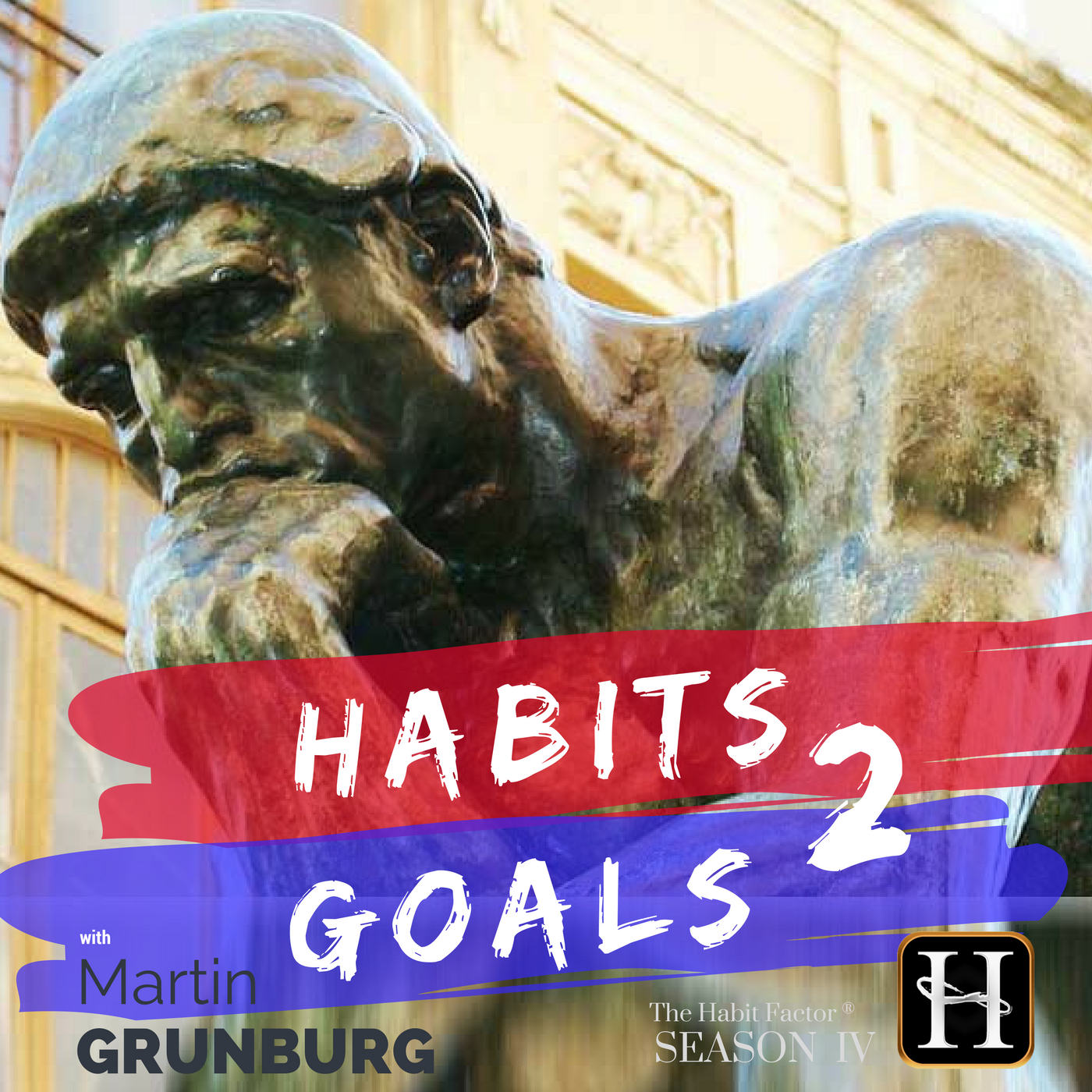
S02-Frequently Asked Friday 04: What is the Law of Cosmic Habit Force?
After searching for nearly 20 years Napoleon Hill finally declares he's discovered the missing link— the secret that he unintentionally left out of his bestselling classic, "Think & Grow Rich".It appears that The Law of Cosmic Habit Force is only something Napoleon Hill could have discovered after writing Think & Grow Rich and hearing from many that, "it didn't work" and wasn't making them rich.A distraught Napoleon was confounded as he heard this sort of feedback repeatedly. Even though it worked for many, his 16 principles fell short for a number of other readers.“WHAT was missing!?” Well, Mr. Hill pondered that question long and hard, and, as he explained it, he found himself meditating upon this “missing link” FOR ANOTHER 20 YEARS!So, what was missing!?Well, it’s almost unfair to tell you/share it ; ). Consider that Napoleon Hill spent 20 years of his life formulating this success philosophy and authoring Think & Grow Rich, then another 20 years trying to figure out what the “MISSING LINK” was (those are HIS words) —40 Years total!This may be too BIG a topic for a short Mind-Bullet Monday but Martin does his best to shed light on this mystery in about 12 minutes and encourages those who want to learn and understand more to check out thehabitfactor.com blog and / or the book. An article/post specifically about it is linked here and below.When completely understood there may be nothing more powerful and impactful to one's life. Check it out now and learn about Hill's unbelievable insight in this Mind Bullet Monday!________________Quick note of thanks and request: If these short episodes are helpful and provide value please share a review on itunes to help others find the show! SubscribeDon't miss a single episode. Subscribe to the podcast to get each episode sent directly to you. ResourcesThink & Grow Rich (Book) AmazonThe Science of Personal Achievement: Follow in the Footsteps of the Giants of Success (Amazon) Note: In this program he adds the 17th principle— the Law of Cosmic Habit Force (not in Think & Grow Rich)YOUTUBE VIDEO - Napoleon Hill Describing The Law of Cosmic Habit Force - watch and listen 3 x!The Habit Factor Article "NAPOLEON HILL Missing secret LINKThe Habit Factor appThe Habit Factor templateThe Habit Factor bookBig Brothers Big Sisters This is a public episode. If you’d like to discuss this with other subscribers or get access to bonus episodes, visit habits2goals.substack.com/subscribe
15:5418/03/2016
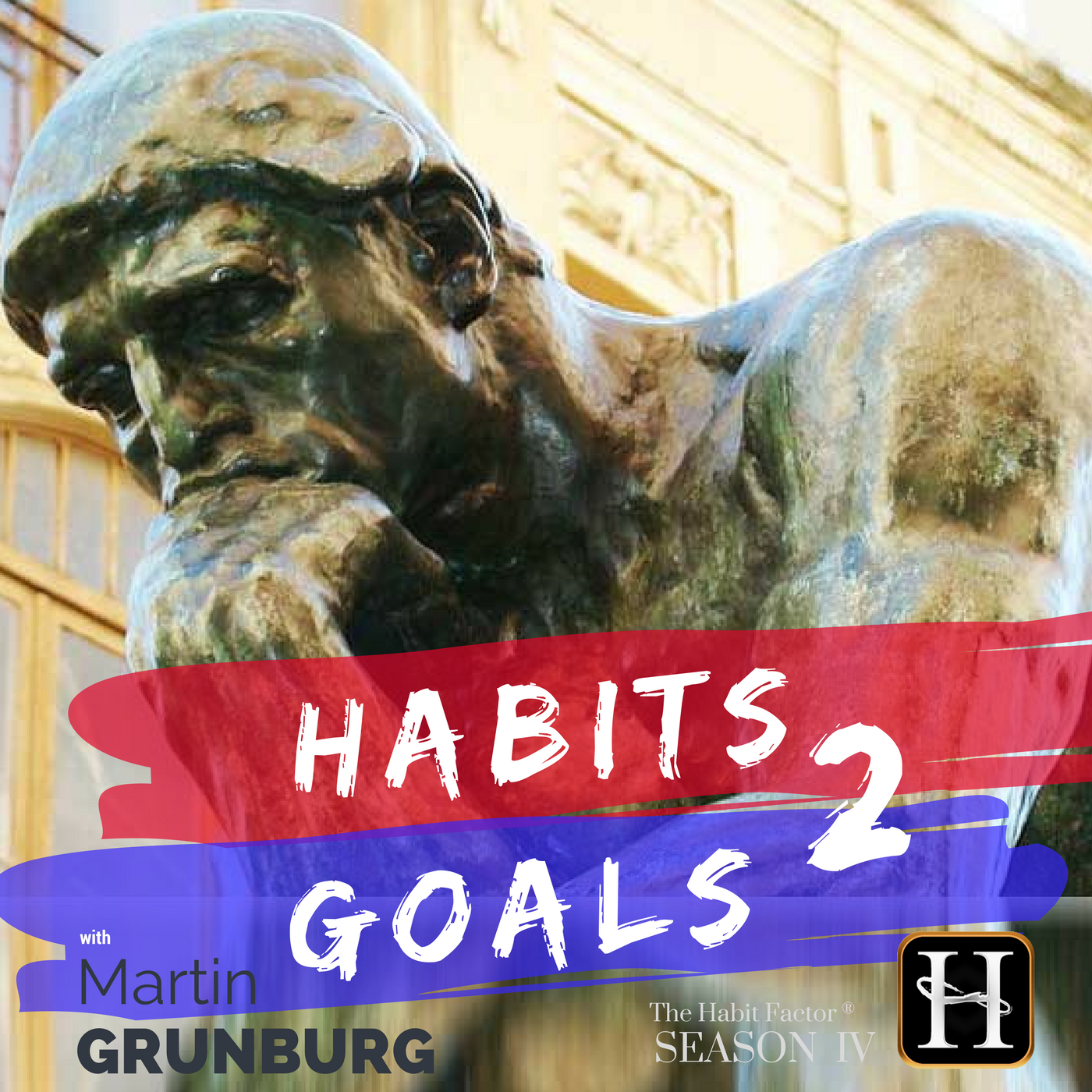
S02-INT04: Thom McElroy: Co-Founder Volcom, An Icon in the Surfwear Industry
“The primary mark has to work in black and white and it has to be as simple as possible" “That logo was talking to me... and it was talking to everyone..." ~Thom McElroy, Co-Founder VolcomThom McElroy covers a ton of ground in this special interview (recorded live from his ultra-modern, beachfront crib in Laguna Beach ; ).He speaks candidly about his early days, being a "grom" growing up in Huntington Beach, as a graphic design major at SDSU, and yes, the creation of the Volcom logo and all the graphics that rallied the "YAE" Youth Against Establishment".The interview covers his inspirations and thoughts on logo and design, the rise and early struggle of the rebellious surf, skate and snowboard company Volcom.Thom pulls no punches and sharesThe crazy story that led him to SDSU— it's surf related!Growing up in Huntington beachHow his life pivots toward art and graphic design How he defines successHis most important habitsThe birth and evolution of the Volcom logo His design influencesThe essence of a great logo and the technique to get there!& so much more!“I love reading books about the struggles and how to get over the struggles and how to still win."When Volcom went public in 2005, Thom went on a leave of absence that eventually lead to his retirement. For the past ten years he has consulted with many new companies and young CEOs and invested in several emerging brands. Thom currently sits on the Campanile Board of Directors and Chairs the Alumni Engagement Committee. He also mentors at the Lavin Entrepreneur Management Center and is involved in the School of Business, the Zahn Center of Engineering and The College of Professional Studies and Fine Arts at SDSU.SubscribeDon't miss a single episode. Subscribe to the podcast to get each episode sent directly to you. ResourcesThe Habit Factor appThe Habit Factor templateThe Habit Factor bookBig Brothers Big Sisters This is a public episode. If you’d like to discuss this with other subscribers or get access to bonus episodes, visit habits2goals.substack.com/subscribe
52:2016/03/2016
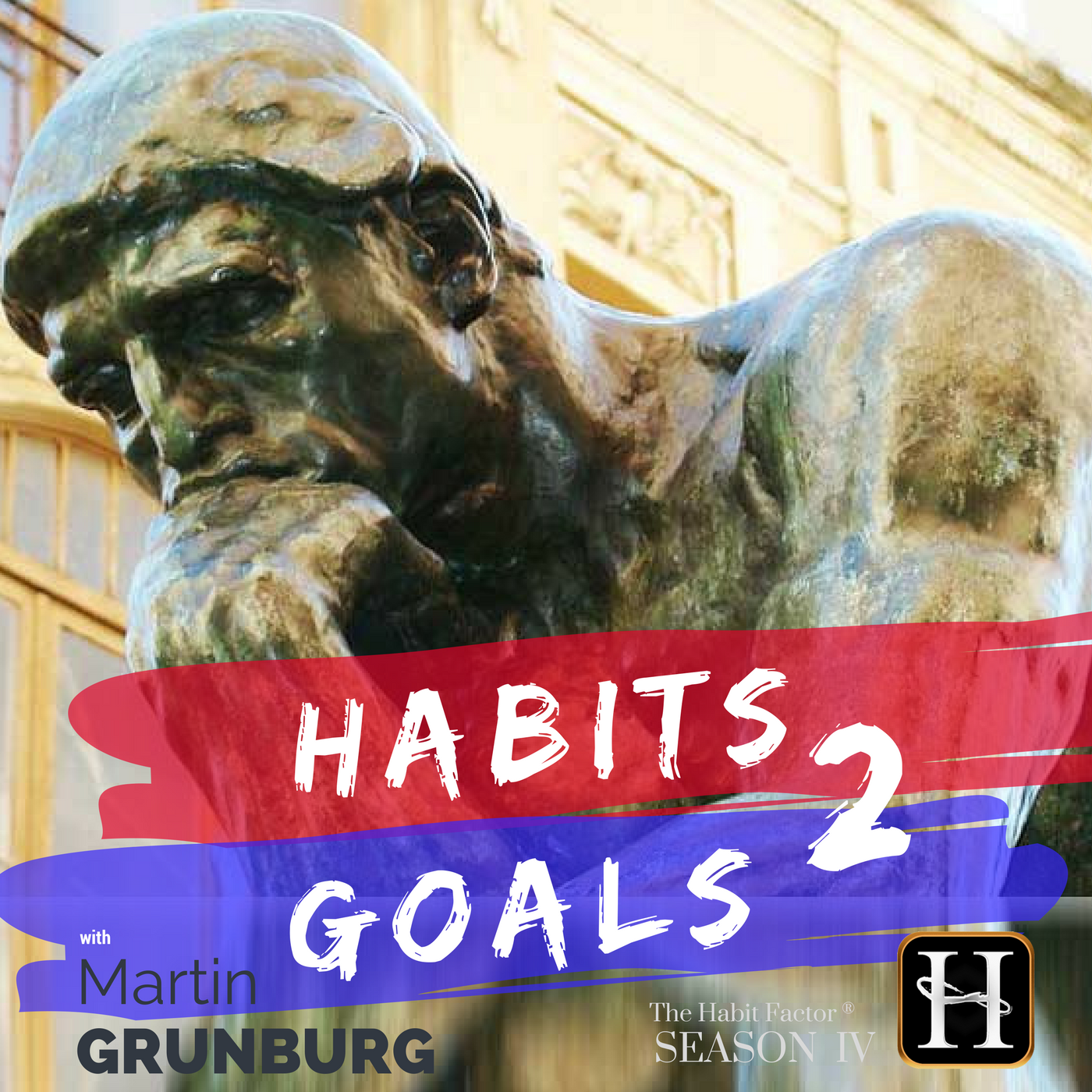
S02-Mind Bullet Monday 04: Who is in Control?
"Are you bigger than your problems?" T. Harv Eker Martin kicks off this show about CONTROL with a quote he's heard T. Harv Eker say many times regarding a technique people can use to solve their problems. The first thing they can ask themselves is, "Who is bigger? Me or the problem?"Martin then carries the idea of "control" further, where control influences other facets of our lives...Consider winning and losing? When one "controls" the environment they certainly have a better chance at winning, don't they? Hence, competitive environments are designed to be neutral and there are even referees to ensure an environment of fairness. We all tend to recognize the idea of the "home field" advantage. Further, psychologists now concur that a sense of control increases one's level of happiness. If you're unhappy perhaps you should investigate your level of control related to various aspects of your life (home, family, work, etc)."Ask yourself, "Is there anything I can do to change the environment (control) to increase my happiness and chance of success?" ~M. GrunburgMartin reminds listeners to revisit the prior week's episode and agrees that there are a lot of things beyond our control, including those unwavering principles. Finally, he sums up the episode with a simple statement and a MAJOR question you can ponder for some time...Check it out now... hear all about it n this Mind Bullet Monday! SubscribeDon't miss a single episode. Subscribe to the podcast to get each episode sent directly to you. ResourcesSecrets of the Millionaire Mind: Mastering the Inner Game of WealthT. Harv EkerThe Habit Factor appThe Habit Factor templateThe Habit Factor bookBig Brothers Big Sisters This is a public episode. If you’d like to discuss this with other subscribers or get access to bonus episodes, visit habits2goals.substack.com/subscribe
09:3514/03/2016
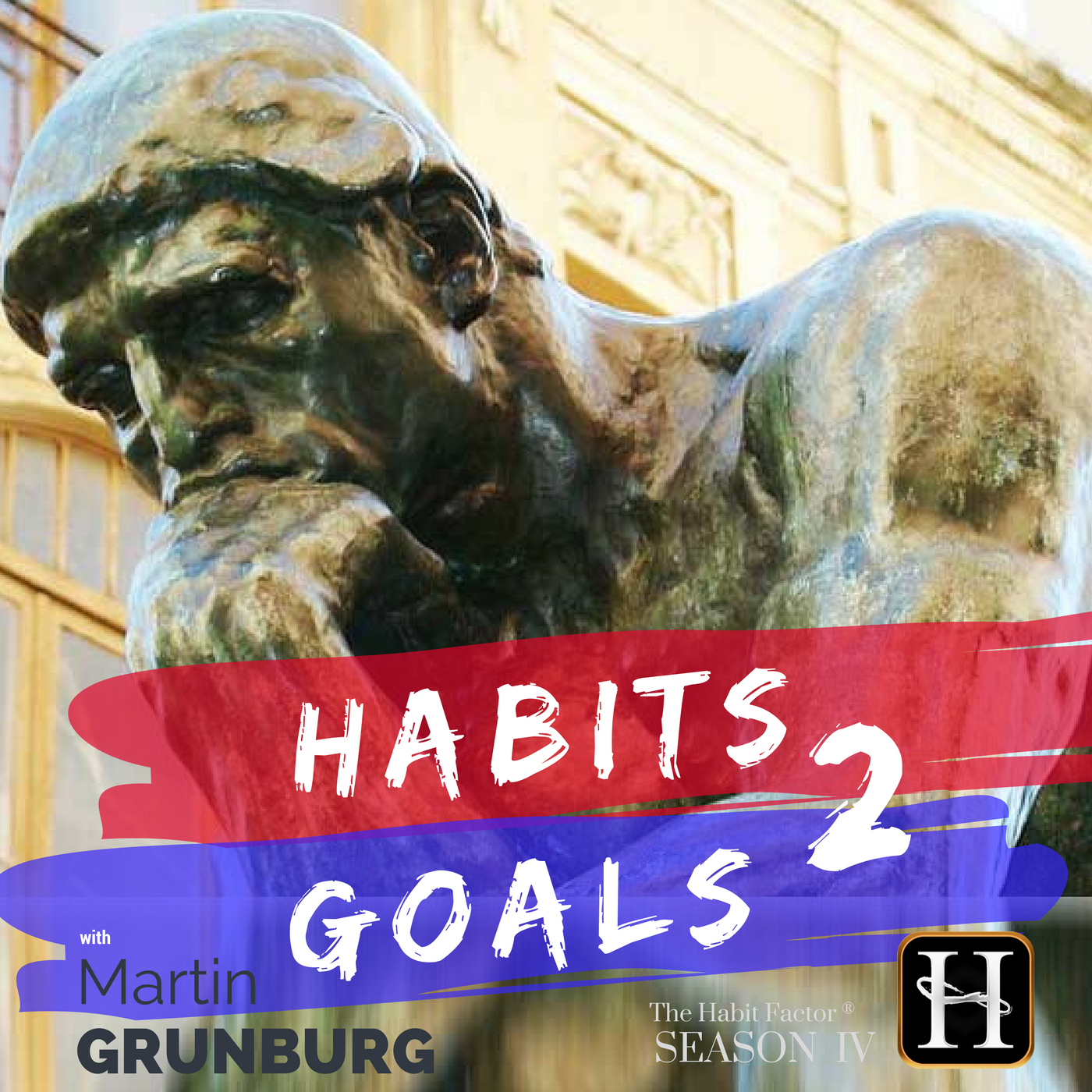
S02-Frequently Asked Friday 03: Are Habits Better Than Goals?
"Are habits better than goals?"This is a semi-crazy meme that Martin wrote about last week (here). In this episode, Martin elaborates on the idea that these are equal and complementary components when it comes to goal achievement. Then he shares a bit of a surprise— just how far back this realization actually dates.The short story is that goals properly set (with significant motivation to achieve them) illuminate the ideal behaviors/habits one needs to foster. And, using The Habit Factor's method of habit development, P.A.R.R. (Plan, Act, Record & Reassess) one is able to develop habits more quickly. Then, Martin shares a quick example and reviews a little "Goal Setting Theory" and a man named Edwin Locke (you likely know him via his SMART goals system).Enjoy the episode ; )Quick note of thanks and request: If these short episodes are helpful and provide value please share a review on itunes to help others find the show! SubscribeDon't miss a single episode. Subscribe to the podcast to get each episode sent directly to you. ResourcesGOAL Setting -Wikipedia (Something is missing ; )The Habit Factor Article "Are Habits Better Than Goals? Are Goals Bad?"The Habit Factor appThe Habit Factor templateThe Habit Factor bookBig Brothers Big Sisters This is a public episode. If you’d like to discuss this with other subscribers or get access to bonus episodes, visit habits2goals.substack.com/subscribe
11:0211/03/2016
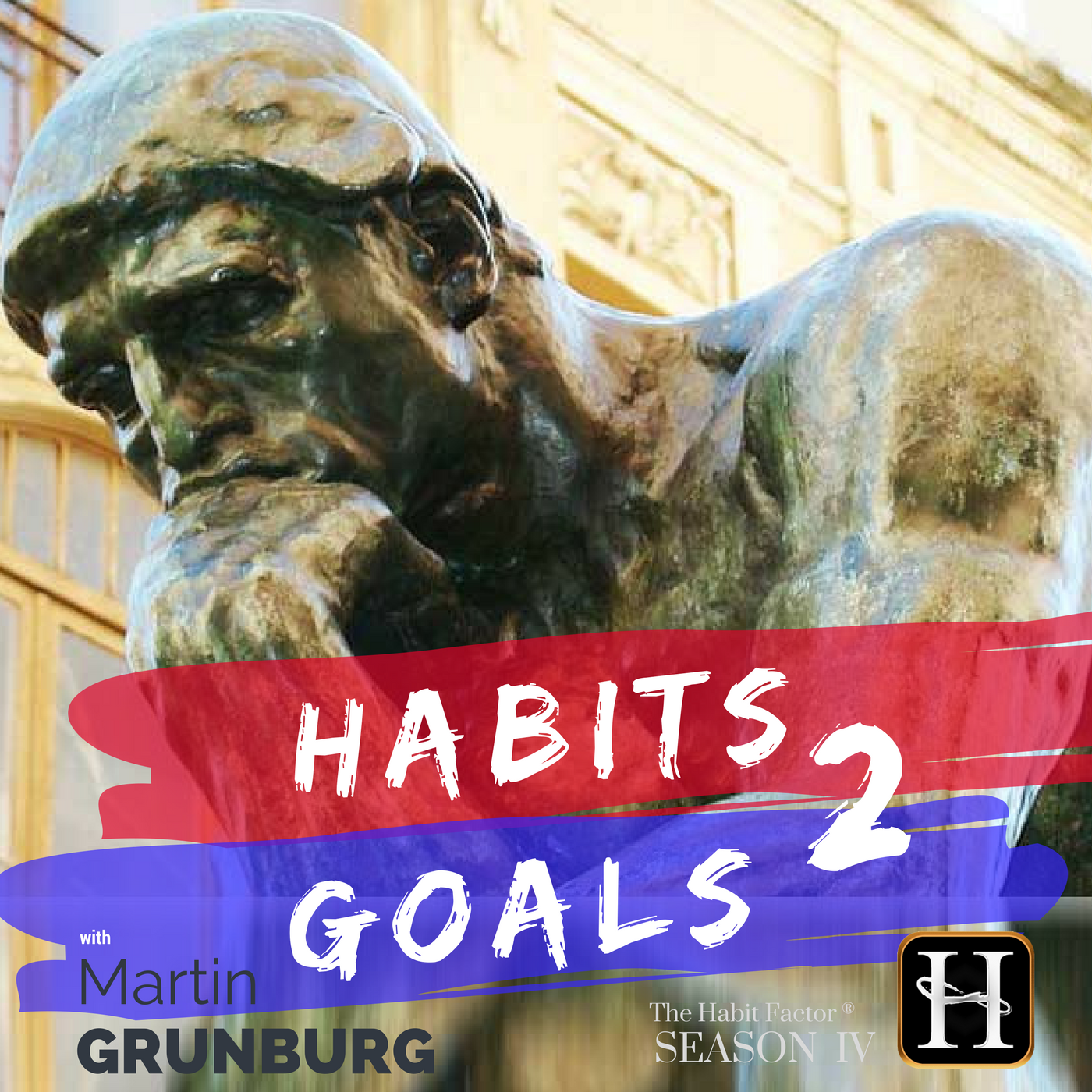
S02-INT03: Coach Rich Phillips, Riding Killer Whales & Insights about Leadership, Teamwork & Communication
“Intention is one of those things that can go either way— you can have negative intention or you can have positive intention and that means you are in alignment... " “It's all about how YOU respond to them..." ~Coach Rich Phillips Coach Rich Phillips is a Former Head Show Trainer at SeaWorld, a Bestselling Author. Speaker & Business CoachRegardless of where you may stand on the current controversy regarding killer whales in captivity, you're asked to suspend your judgement (for now) and simply listen to Coach Rich's incredible journey. In fact, should their captivity come to an end, it would make his undeniably unique experience even more special—including the amazing lessons he's learned from training and riding these unique, intelligent and powerful creatures. In this episode Martin & Rich discuss:His crazy story — how a wrong number started it allHis evolution (and hazing) via a "Fishhouse"The first time he slides into the tank as a backup trainer with the 14,000 lb creature The value and types of operant conditioning he learned"Chances are good that if you can communicate with a killer whale you can communicate with a difficult employee""Then, there was the 'Oh, by the way, we're going to have you ride the whale'" moment... How he learned from a young age to change his "style" to address and communicate with an abused horseThe importance of taking responsibility of what you CAN control in the relationshipThe time he was held under for about 3 minutes and what he learned from the experience& so much more!“I don't know about you but I know of nobody (other than Coach Rich) whose ridden on the back of a killer whale" ~Martin GrunburgCoach Rich Phillips is known as the "accountability coach" and he provides business leaders insights and strategies for growth. You can learn more at Coach Rich Phillips WebsiteSubscribeDon't miss a single episode. Subscribe to the podcast to get each episode sent directly to you. ResourcesThe Habit Factor appThe Habit Factor templateThe Habit Factor bookBig Brothers Big Sisters This is a public episode. If you’d like to discuss this with other subscribers or get access to bonus episodes, visit habits2goals.substack.com/subscribe
44:2109/03/2016
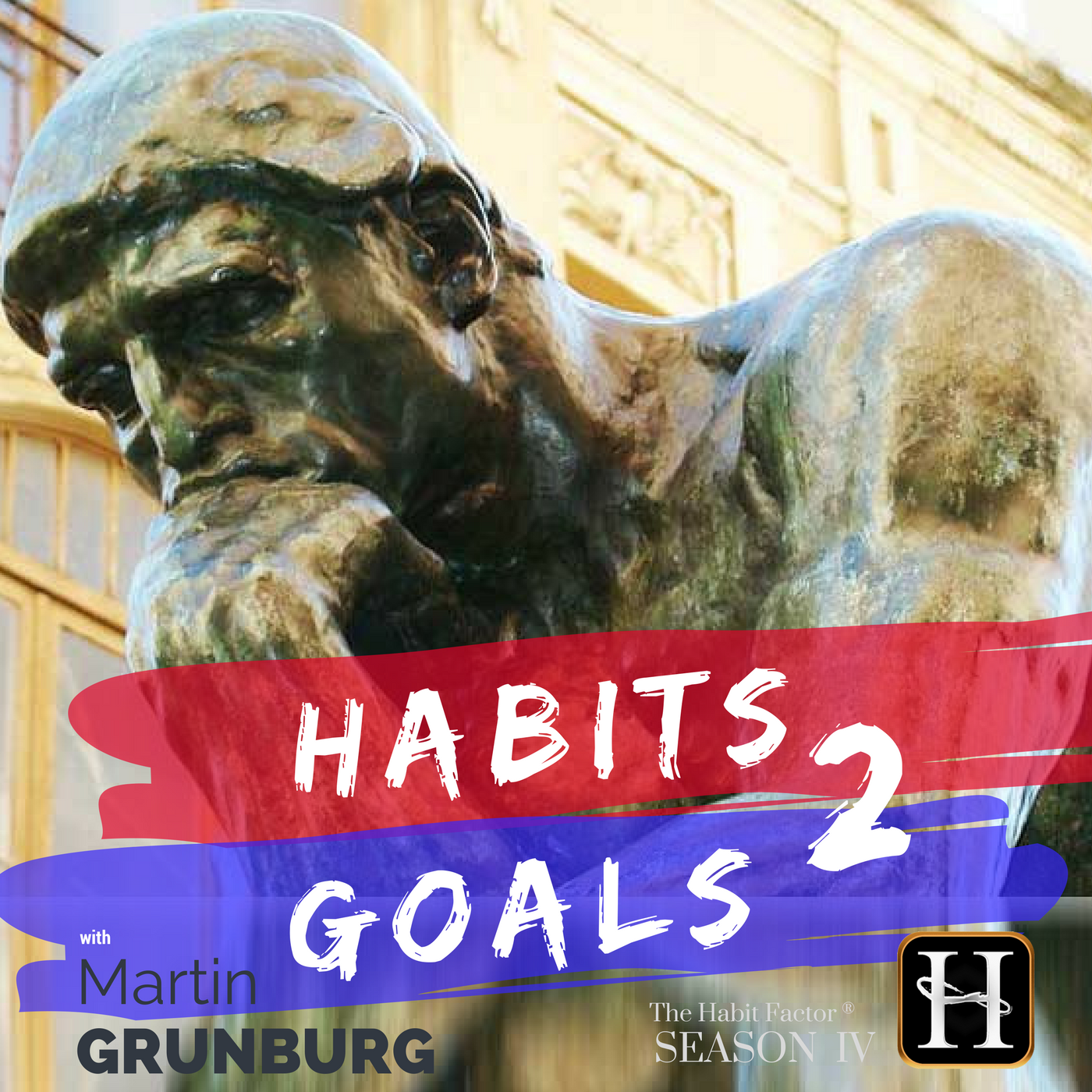
S02-Mind Bullet Monday 03: Principles and Lighthouses
"Fundamentally, these are the core four— the power four— that sustain us and direct our outcome and well being..." Martin opens with a story shared by the late, great Dr. Stephen Covey regarding the unwavering principles that influence the outcome of our life. If these are ignored, dishonored the consequences are severe.Covey shares a fabled (and apparently fabricated) story about a US Navy Captain being told that another ship is in their course and further, is unwilling to move.The Captain gets on the phone and demands the other ship to move or suffer the consequences. The importance of checking our ego, asking questions and "honoring" these four dimensions helps us to direct the consequences. That is, since the lighthouses (the principles are unwavering) we must "move" and honor them with our actions in order to experience the outcomes we desire.Dr. Covey's four dimensions are:MindBodyHeartSpiritGrunburg sees some overlap between the heart and the body and also the mind and so, insists that the social dimension (is missing) and is a governing principle in our lives that cannot be overlookedMindBodySpiritSocialHear all about it on this Mind Bullet Monday! SubscribeDon't miss a single episode. Subscribe to the podcast to get each episode sent directly to you. ResourcesThe Habit Factor appThe Habit Factor templateThe Habit Factor bookBig Brothers Big Sisters This is a public episode. If you’d like to discuss this with other subscribers or get access to bonus episodes, visit habits2goals.substack.com/subscribe
08:3307/03/2016
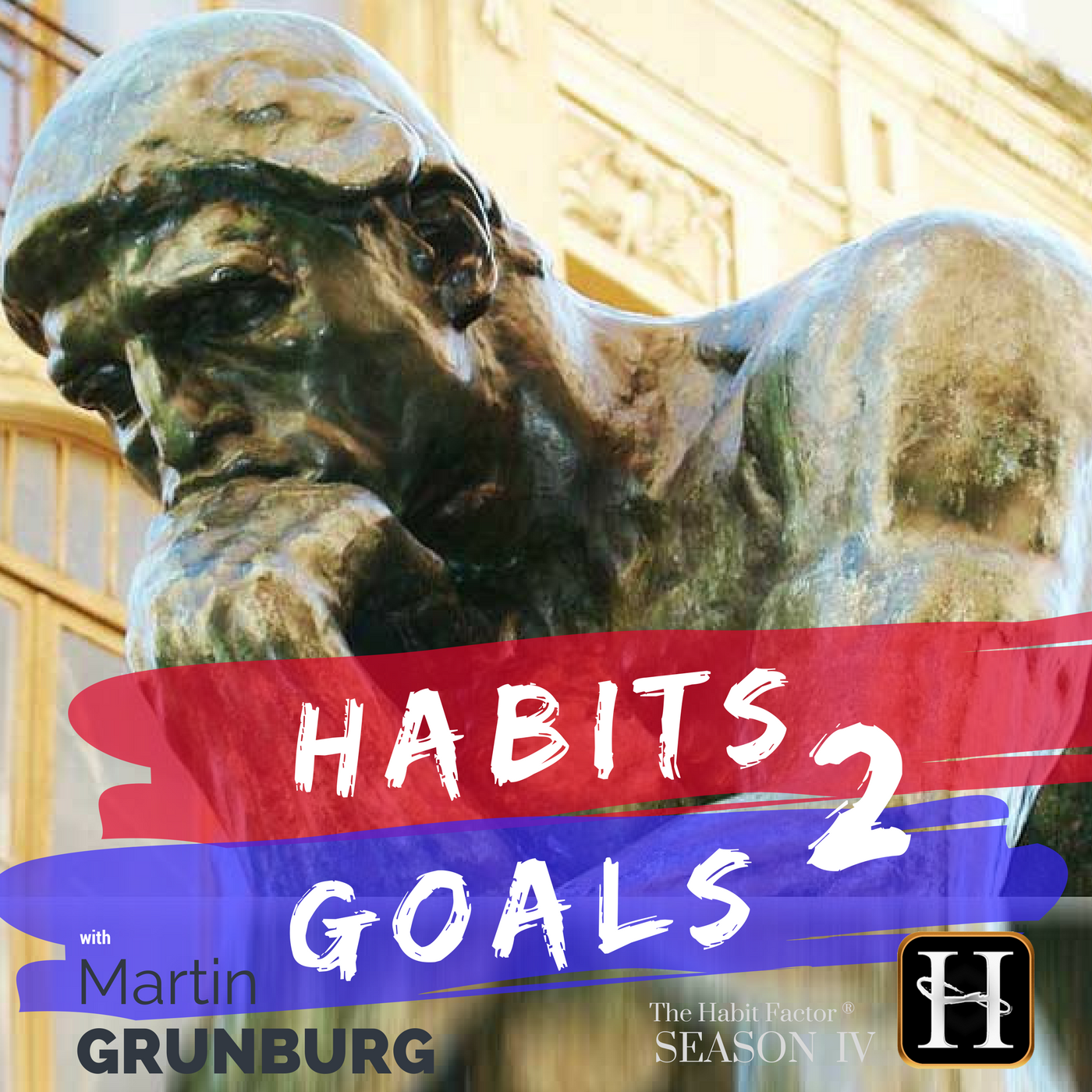
S02-Frequently Asked Friday 02: How long does it really take to develop a habit?
"How long does it really take to develop a habit?"One of the GREAT myths related to habit development is that it takes 21 days to develop a habit. Martin explains where that myth originates and reviews the actual time it is likely to take PLUS what the KEY component/requirements are to form ANY habit.In this short episode (about 10 minutes) Martin reviews those three core, required elements, revisits the P.A.R.R. methodology of habit development and then shares a MUST watch video (link below) that supports the idea of HabitStrength™ and how long it could really take.Enjoy the episode, the video and the abstract ; )Go for it - check it out now! note of thanks and request: If these short episodes are helpful and provide value please share a review on itunes to help others find the show! SubscribeDon't miss a single episode. Subscribe to the podcast to get each episode sent directly to you. ResourcesMUST WATCH! >>> Backwards Brain Bike European Journal of Social PsychologyHow are habits formed: Modelling habit formation in the real world (Abstract)The Habit Factor appThe Habit Factor templateThe Habit Factor bookBig Brothers Big Sisters This is a public episode. If you’d like to discuss this with other subscribers or get access to bonus episodes, visit habits2goals.substack.com/subscribe
10:4704/03/2016
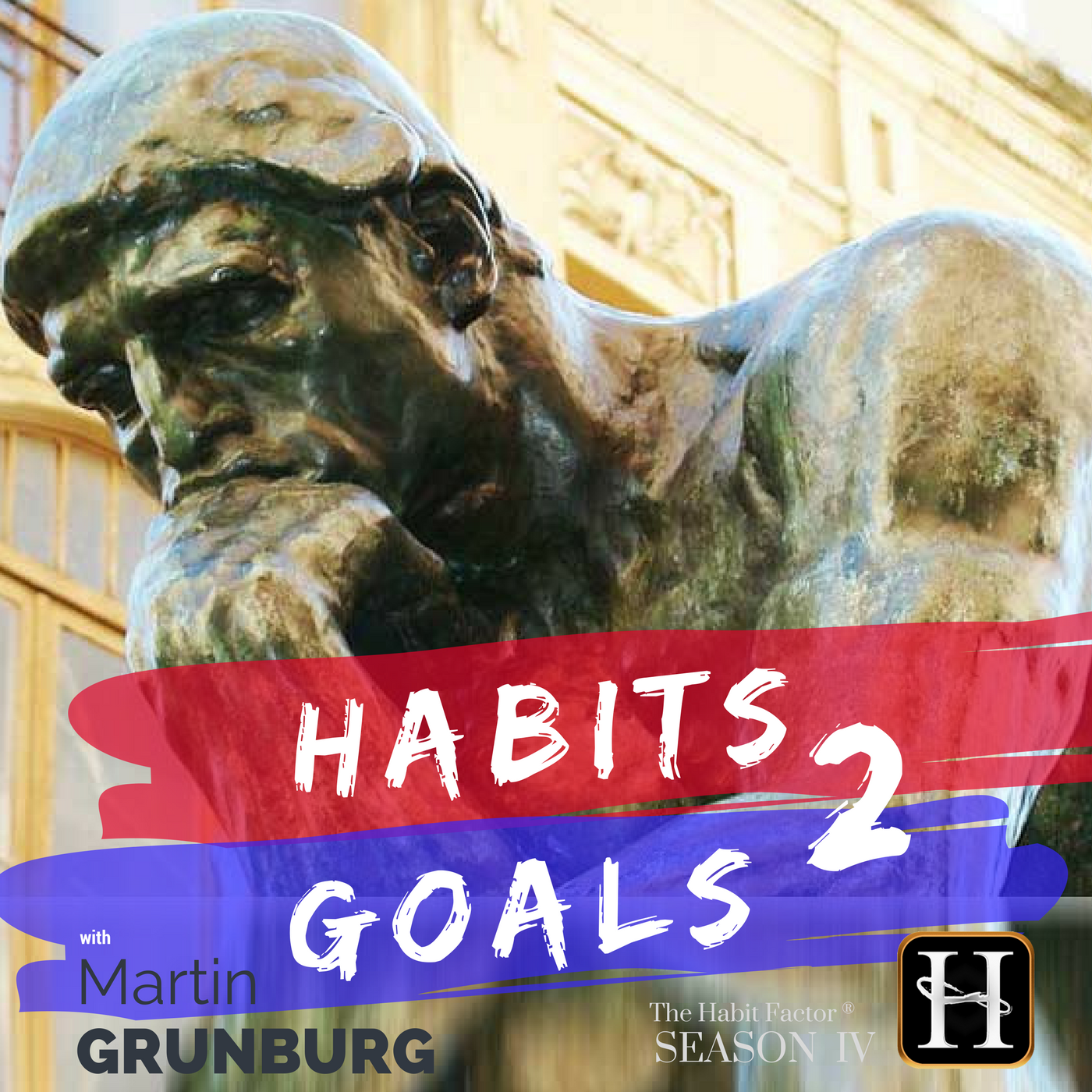
S02-INT02: Heidi Hanna, PhD: Energy! Your Most Precious Resource and How to Recharge
“Even though I had a background in exercise physiology and psychology and nutrition I was still struggling with creating my own healthy habits and I was diagnosed at a young age with panic disorder and depression. " ~Heidi Hanna Ph.D.Bestselling Author. Speaker. Founder Synergy ProgramsIn this episode Heidi and Martin cover:What is energy, how to conserve, manage and rechargeThe FOUR types of energy• Touches on a story of GRIT and perseveranceGTR: She's committed to making a change in her life and is intentional about traveling less to improve her personal life!The important difference between the brain and the mindWhat is heart "math" and heart rate variabilityWhat is more important than time?How we are wired for negativity biasVarious ways to optimize and manage our energy best throughout the daythe FIVE "M's"And more tips to experience improved energy throughout the day and WHY it's so important!Synergy Programs offers a variety of programming targeted to make brains better though a series of initiatives including keynotes and lectures, full day workshops, corporate retreats, and fully integrated corporate wellness solutions ranging from a few months to several years in scope.Visit Heidi's Website: Synergy Programs“There’s an important alignment between the brain and the heart” ~Heidi Hanna, Ph.D.SubscribeDon't miss a single episode. Subscribe to the podcast to get each episode sent directly to you. ResourcesThe Habit Factor appThe Habit Factor templateThe Habit Factor bookBig Brothers Big Sisters This is a public episode. If you’d like to discuss this with other subscribers or get access to bonus episodes, visit habits2goals.substack.com/subscribe
47:2402/03/2016
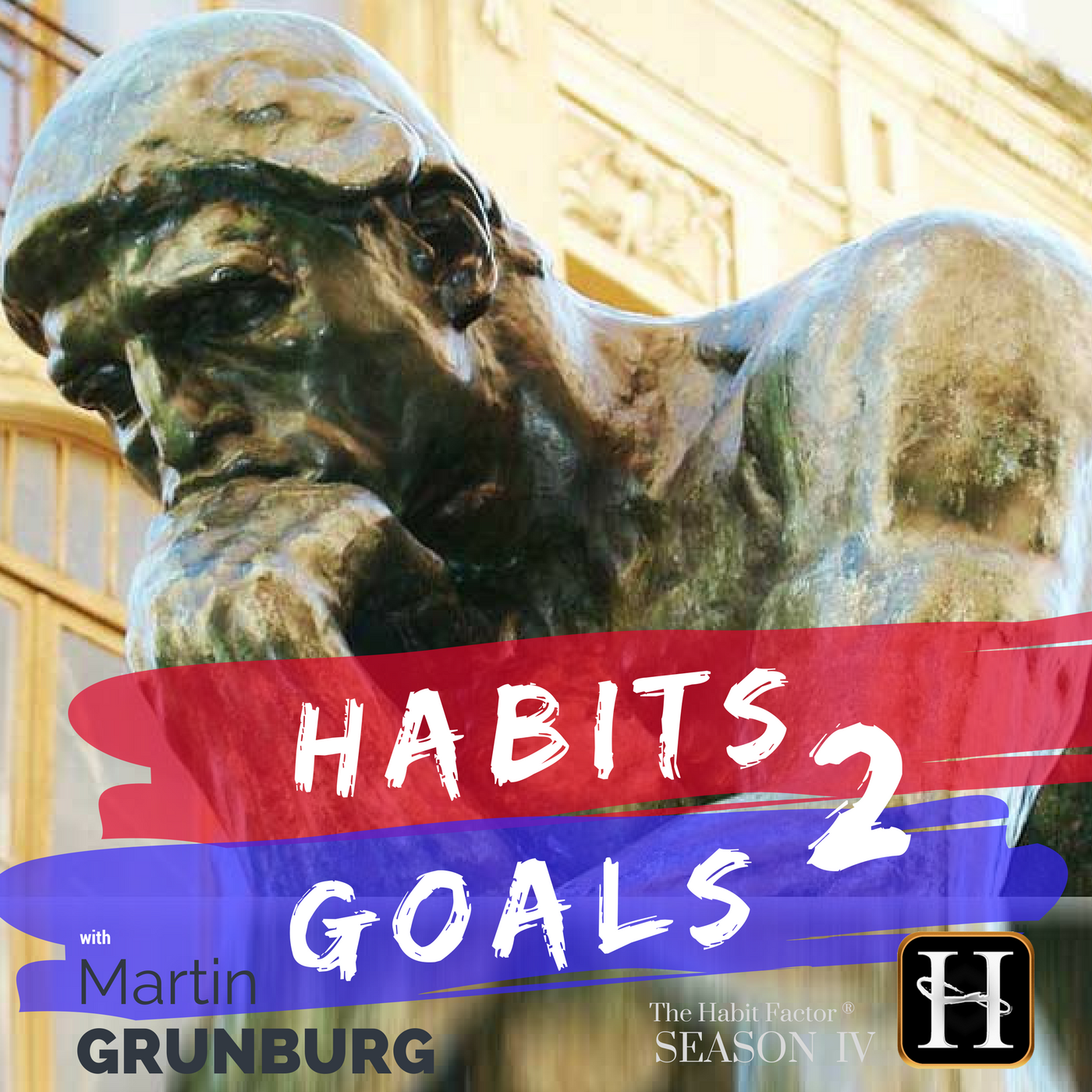
S02-Mind Bullet Monday 02: Responsibility!
"When we are no longer able to change our situation we are challenged to change ourselves" ~Viktor FranklPositive change most often starts when we take responsibility for our situation.Responsibility may be one of the most foremost virtues. While Aristotle proposed that courage was the mother of all virtues where would any great person be without responsibility? In fact, could greatness be possible? What is responsibility ultimately, responsible for in our lives? Here's a few thoughts:happinessself esteemcharacterdecisionspurposediscipline and evendesireYou can quickly see how responsibility is a major/core ROOT, perhaps the root or pillar for one's personal development and even happiness and general contentment.Hear all about it on this Mind Bullet Monday! This is a public episode. If you’d like to discuss this with other subscribers or get access to bonus episodes, visit habits2goals.substack.com/subscribe
08:2229/02/2016
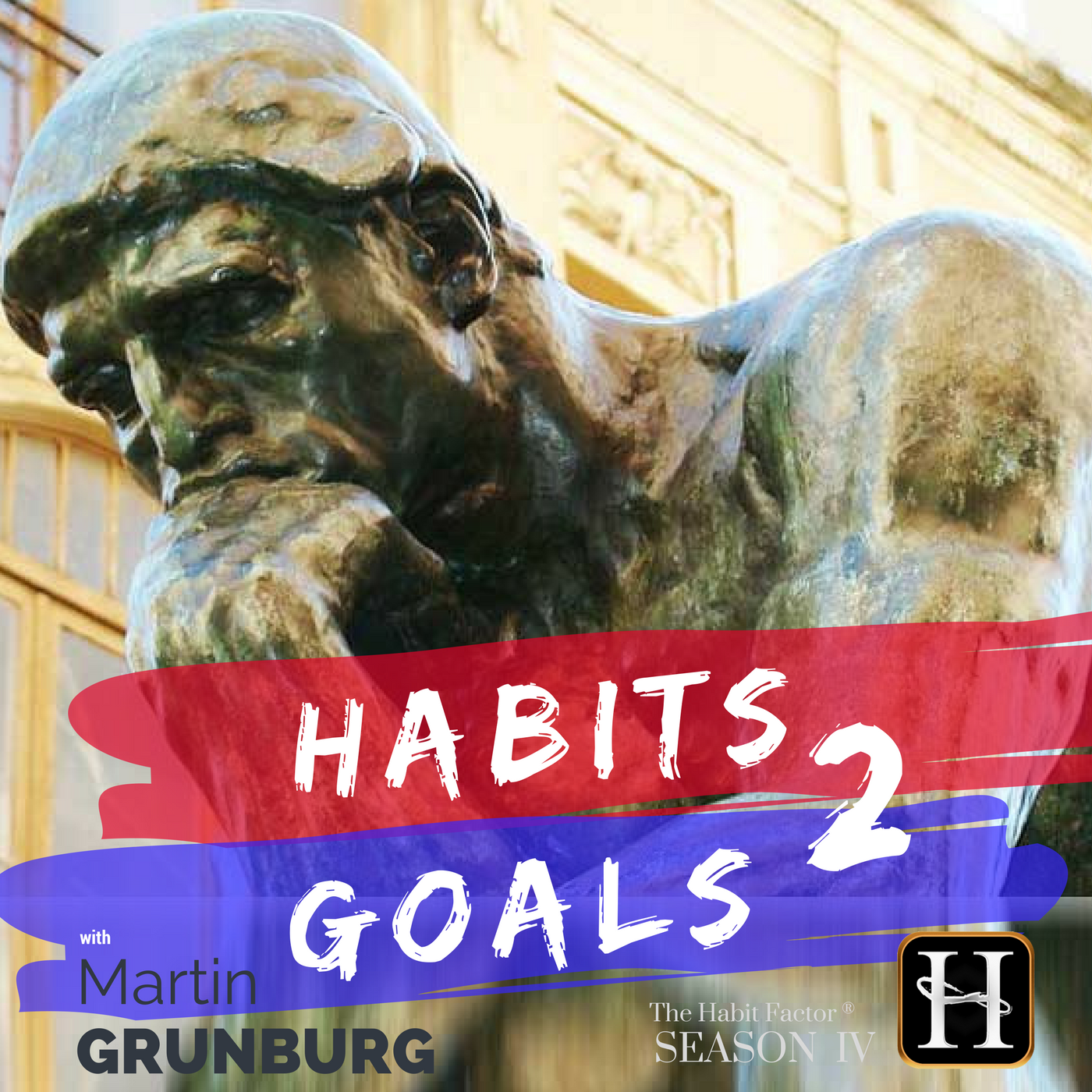
S02-Frequently Asked Friday 01: What's Your Best Habit?
"What's your best habit?"Kicking off this inaugural Frequently Asked Friday, a new feature for season 2, Martin addresses one of the more common questions he receives after giving a presentation, "So what is your best habit?"In this short episode (about 5 minutes) Martin reviews what the habit is and WHY it is probably the most significant. He then talks about how it aligns with his values and even mission statement.It's certainly food for thought... If you had to choose your best habit what would it be and WHY? Go for it - check it out now! SubscribeDon't miss a single episode. Subscribe to the podcast to get each episode sent directly to you. ResourcesThe Habit Factor appThe Habit Factor templateThe Habit Factor bookBig Brothers Big Sisters This is a public episode. If you’d like to discuss this with other subscribers or get access to bonus episodes, visit habits2goals.substack.com/subscribe
05:5126/02/2016
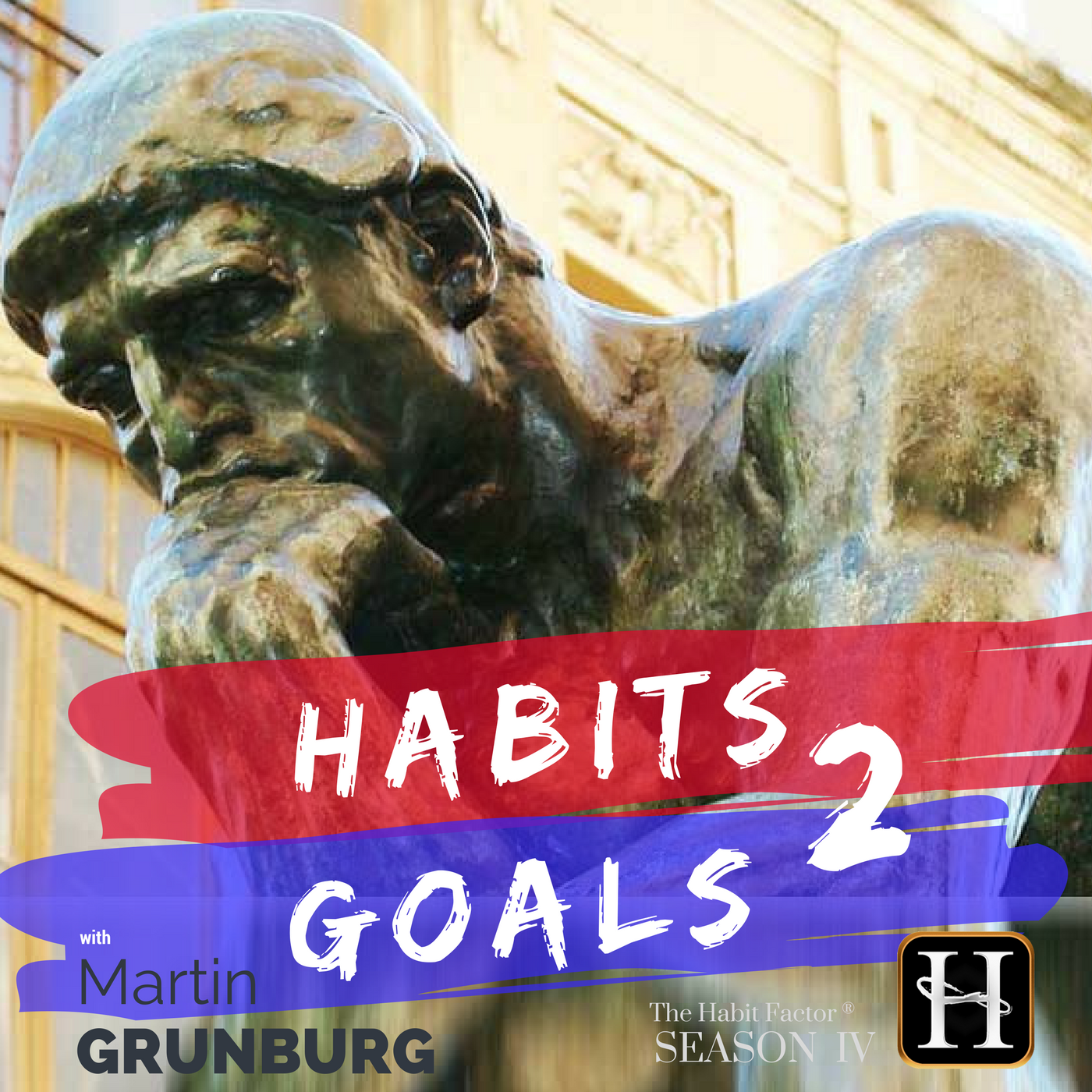
S02-INT01: R. Michael Anderson: Happiness, JOY and the Journey
“I joke often that I know a lot about happiness because I've experienced a lot of unhappiness first." ~R. Michael AndersonBestselling Author. Speaker. Founder of Executive Joy.• We teach competitive driven people how to lead happier lives • "Things" looked great from the outside: Partying at the Playboy mansion, etc., but missing meaning and fulfillment• Michael opens up about his personal journey where competitive drive and winning doesn't always equate to personal satisfaction• GTR: Share inspiring story about sponsoring young lady from orphanage - a recent visit to celebrate high school graduation• Touches on a story of GRIT and perseverance• Avoiding "victim" mindset• The path to learning about joy and happiness• His massive TURNING point! - • A few tips and tools to experience happiness and joy DAILY“Leaders tend to give so much to other people yet often have chaotic inner lives” ~R. Michael Anderson[powerpress]SubscribeDon't miss a single episode. Subscribe to the podcast to get each episode sent directly to you. ResourcesThe Habit Factor appThe Habit Factor templateThe Habit Factor bookBig Brothers Big Sisters This is a public episode. If you’d like to discuss this with other subscribers or get access to bonus episodes, visit habits2goals.substack.com/subscribe
45:0024/02/2016
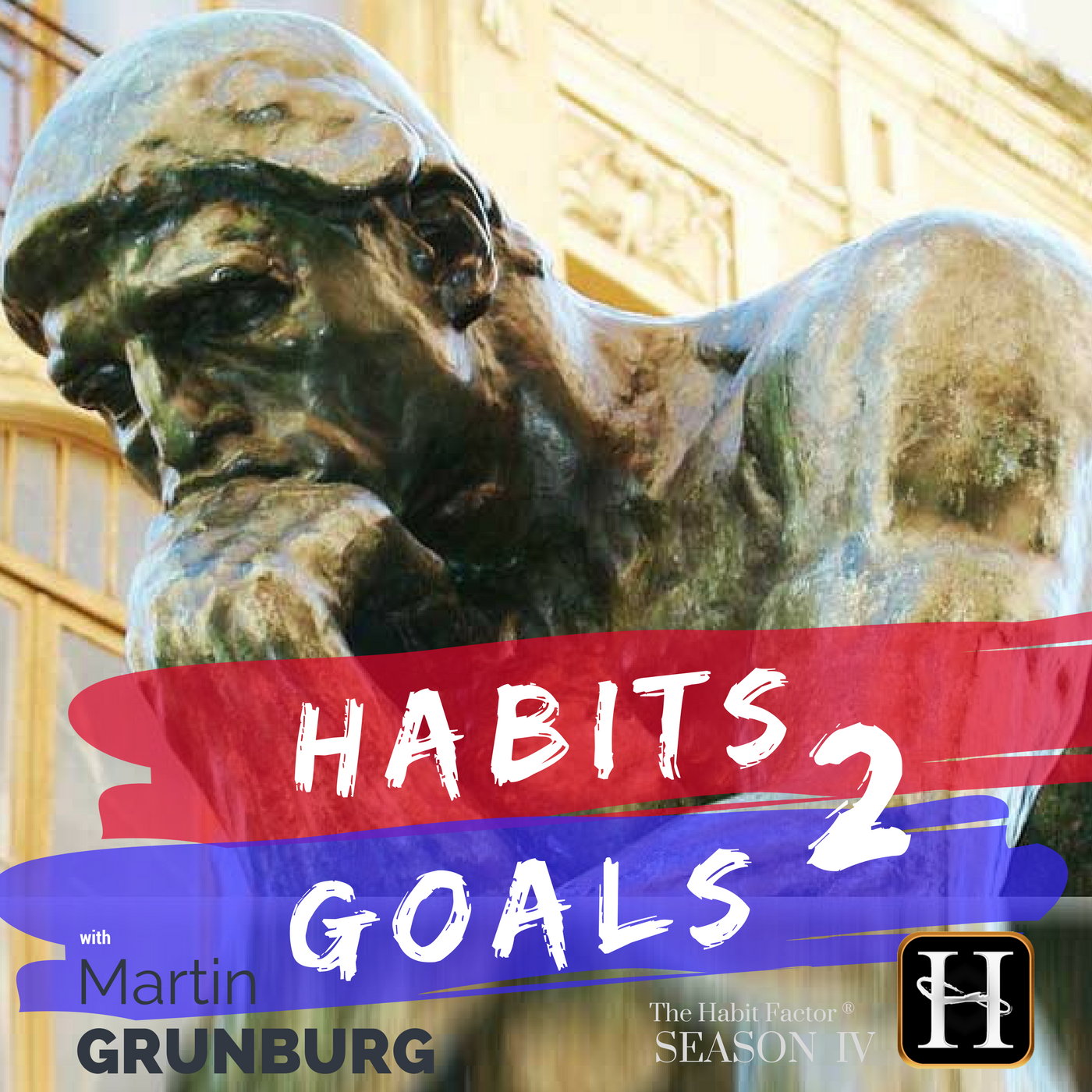
S02-Mind Bullet Monday 01: Get Started
"The first step takes the most courage." While not easy, taking the first step is powerful and a requirement for anyone to get anywhere. Most people will think and think and think some more about an idea, a plan, but fail to take action.Tony Robbins once said the real measure of a decision is when it's backed by action. And, Napoleon Hill has said that, "Action is the real measure of intelligence."Using either of those as a gauge the question becomes, how intelligent are you — how many decisions are you making?In this Mind Bullet Monday Martin encourages you to GET STARTED!Go for it - check it out now! This is a public episode. If you’d like to discuss this with other subscribers or get access to bonus episodes, visit habits2goals.substack.com/subscribe
06:4822/02/2016
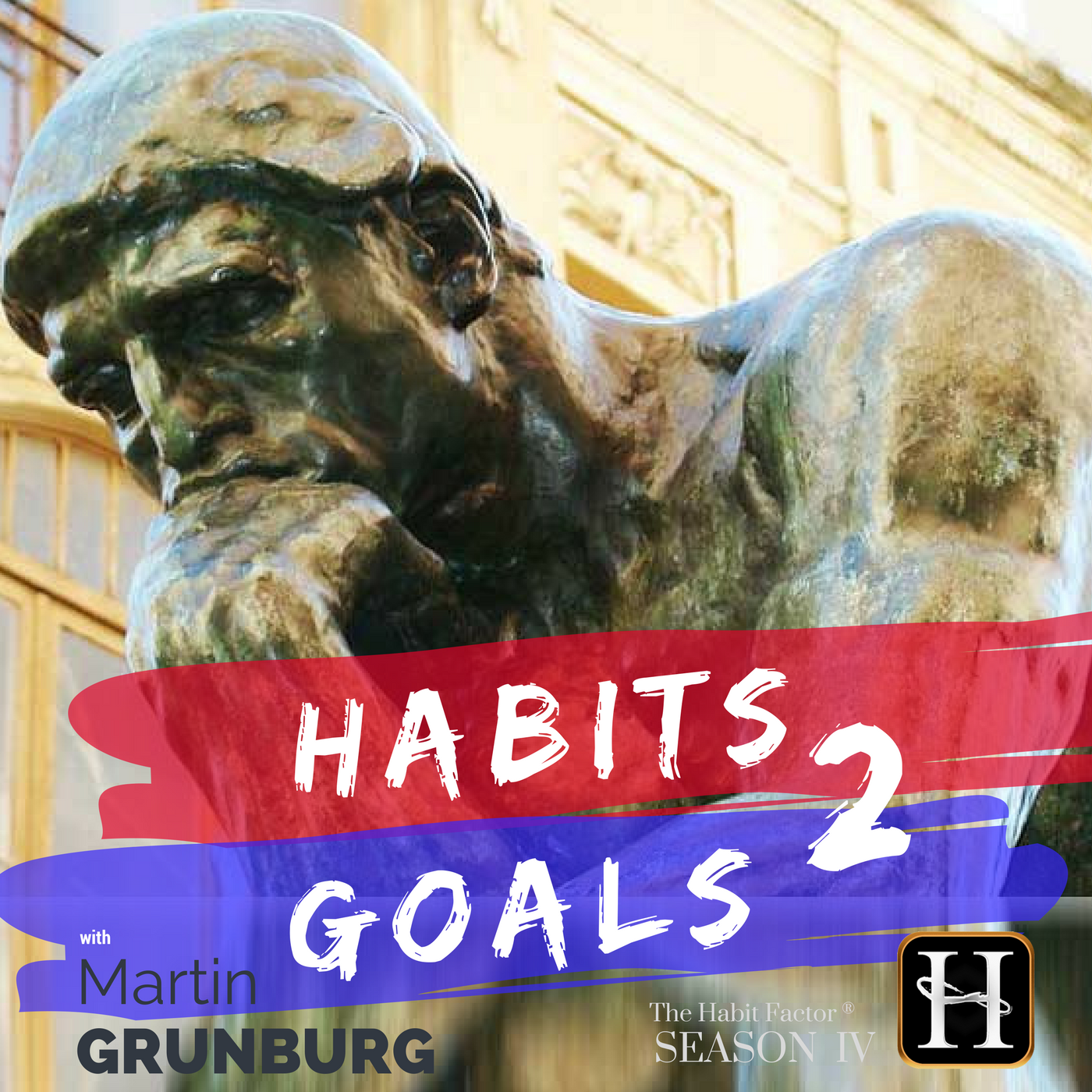
Persistance Is More Valuable Than…
“Persistence and determination alone are omnipotent.” ~Calvin CoolidgeIn your personal and professional life, almost nothing in the world will take the place of persistence.Persistence is more valuable than planning, IQ, knowledge, genius, and talent. Have you ever noticed that some "not-so-smart" people appear to be more successful than some really smart people? It can be frustrating if you're one of those "smart ones". And, it's easy to attribute good luck or chance as the reason these "dumb" people have made it. But, if you investigate further, chances are you will find that these "dumb" people have worked really hard for a really long time.What's the level of your persistence on a scale of 1 - 10? Do you start things but not finish them? Do you get easily side-tracked if you run into an obstacle?Here's the good news, persistence is a HABIT and like any other habit it can be intentionally developed.Guess how long it will take to develop persistence? The answer is you don't care. Do you know why? Because you are PERSISTENT- it might take a year or or could take 10 years and that is the point. YOU will persist!Challenge yourself to persist at the little things first, whether that is a few extra pushups or situps, jogging ten more minutes or working later or getting into the office earlier. Make a game of it... and as you persist time and again at the little things the habit will become stronger.[Tweet "“Ambition is the path to success. Persistence is the vehicle you arrive in.” "]*IMPORTANT NOTE* The Podcast is going on HIATUS!First, THANK YOU! It's been an unbelievable (first) run at the podcast and Martin and I are extremely grateful. We started this with the goal of just twelve initial episodes and with this one we have just hit 35!!! It's been an amazing and enlightening journey and it's not over just yet. Martin plans to return after a few months... his goal is to practice what he preaches and put more attention, energy and focus on the completion of his upcoming book, The Pressure Paradox.If you're interested in reading a pre-release version and joining an exclusive launch team, click below!Join The Pressure Paradox Pre-Launch TEAM! Link Coming! >> To have the latest about The Habit Factor and The Pressure Paradox, jump on the mailing list (UPPER RIGHT - you can just TEXT to that number to sign up instantly!)THANK YOU AGAIN! It's been an epic journey we'll return in a few months with so much more to talk about after the new book is released.“Energy and persistence conquer all things.” ~Benjamin Franklin[powerpress]SubscribeDon't miss a single episode. Subscribe to the podcast to get each episode sent directly to you. Resources The Habit Factor appThe Habit Factor templateThe Habit Factor bookBig Brothers Big Sisters This is a public episode. If you’d like to discuss this with other subscribers or get access to bonus episodes, visit habits2goals.substack.com/subscribe
32:4810/08/2015
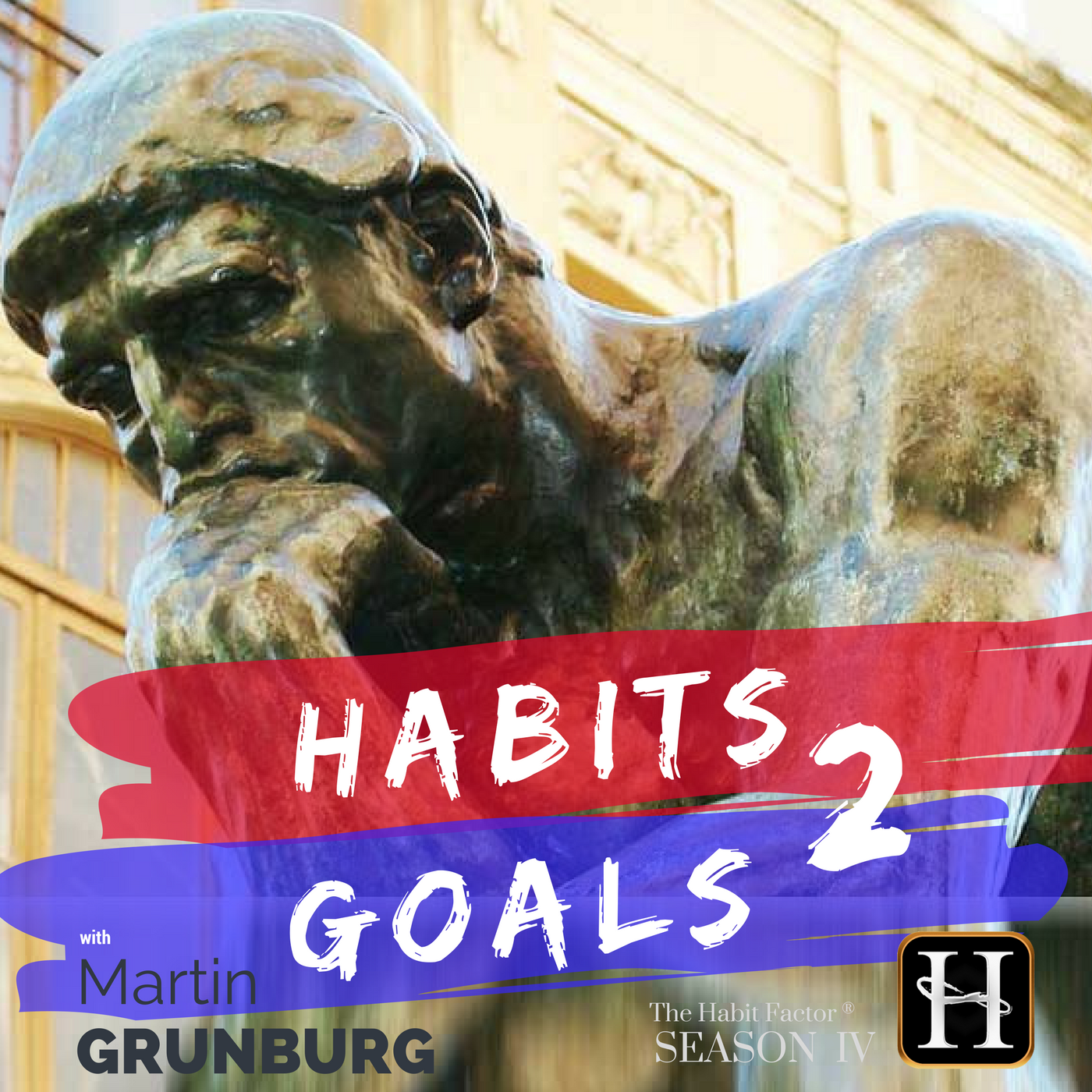
Teamwork Makes the Dreamwork
"If you want to go quickly, go alone. If you want to go far, go together." ~African ProverbThere are very few things in the world more powerful than that of a strong TEAM— a group of individuals committed to a clear, common goal.TOGETHER. EVERYONE. ACHIEVES. MORE. ~John MaxwellWhile it's tempting to be a "one-man band" or an "efficeincy machine" ultimately, one person can never keep up with the long term value that a TEAM provides. Join Martin and I as we discuss what makes a good team, what can destroy a team and important strategies for building your own dream team.According to the late, great Dr. Stephen Covey, (author, businessman, and speaker) there are three stages of maturity; dependence independence and ultimately, inter-dependance (the highest stage).Unfortunately, most individuals believe that independence is the pinnacle of maturity. It isn't.[Tweet "“The strength of the team is in each member and the strength of each member is in the team.” "]For the wise (you), the end-game is INTER-DEPENDENCE. Ultimately, you should strive to move past the “me vs. we” mentality and build bridges.Core traits and qualities to look for in a solid team:HarmonyVision and alignmentShared valuesStrong leaderAnd, much more... join us now to check it out ; )Thanks![powerpress]SubscribeDon't miss a single episode. Subscribe to the podcast to get each episode sent directly to you. Resources Teamwork Makes the Dream Work – John Maxwell Stephen CoveyThe Hangover wolf pack speechThe Habit Factor appThe Habit Factor templateThe Habit Factor bookBig Brothers Big Sisters This is a public episode. If you’d like to discuss this with other subscribers or get access to bonus episodes, visit habits2goals.substack.com/subscribe
29:4303/08/2015
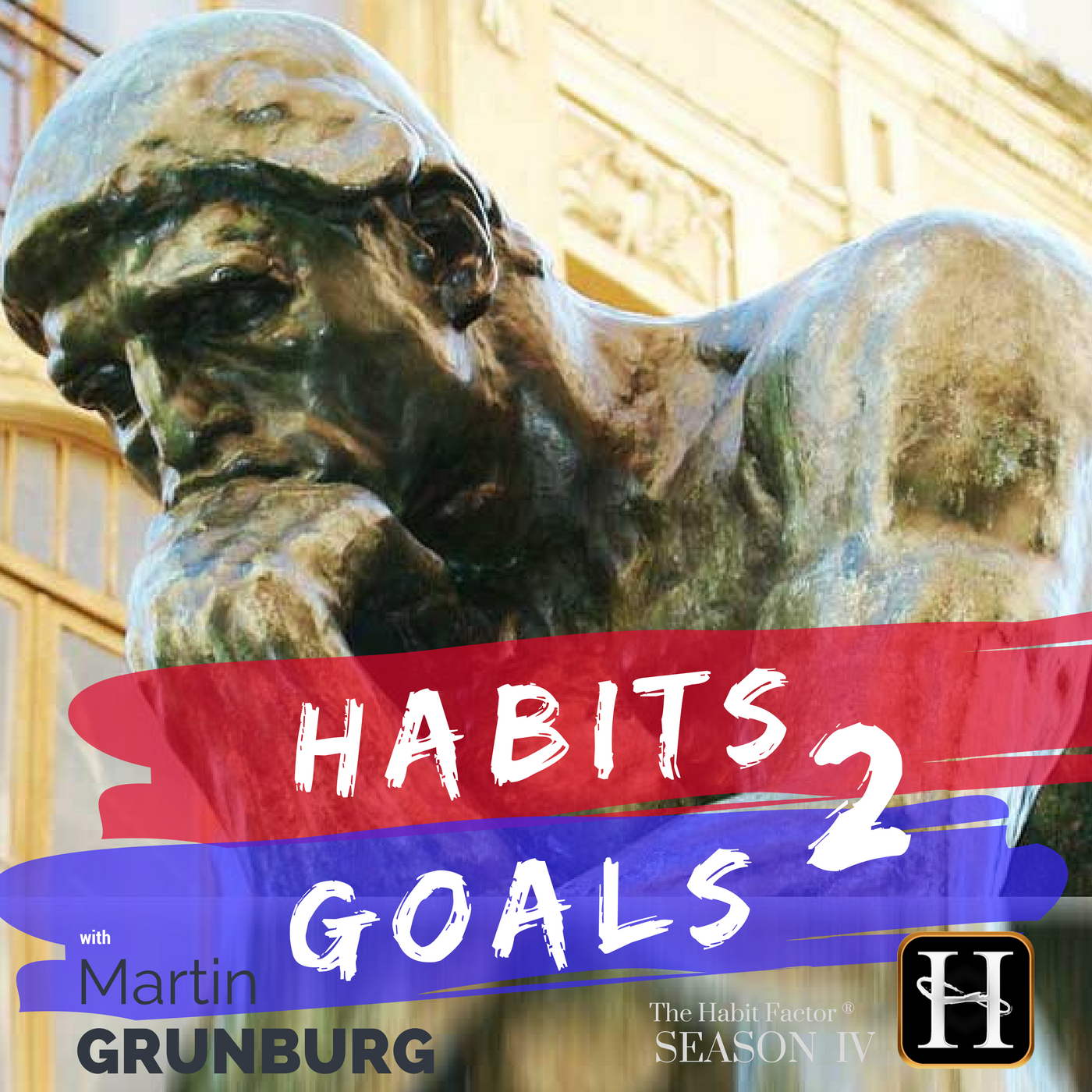
Silence and Concentration
“All of men’s miseries derive from not being able to sit in a quiet room alone.” ~PascalIn this A.D.D., loud and crazy world it's often tough just to hear yourself think!The understanding and intentional application of SILENCE may be the most understated principle when it comes to wellness and creativity. Join Martin and I as we review some of the key ideas about how to use silence as a path to reflection, creativity, concentration and wellness.“Silence is a source of great strength” By letting energy settle, silence creates a space that allows for the concentration of energy as well as the contemplation of unlimited possibilities.One of the best ways to intentionally create silence in your life is to simply wake up earlier and allow yourself time to reflect and think. So, that's your challenge... should you chose to accept it, wake up at least a half hour earlier one or two days this week and notice the peace and insight the experience brings.[Tweet "“Everything emanates from silence. Everything returns to silence. We are infinite.” "] [powerpress]SubscribeDon't miss a single episode. Subscribe to the podcast to get each episode sent directly to you. ResourcesBrian TracyLao TzuBlaise PascalLarry KingThomas CarlyleThe Habit Factor appThe Habit Factor templateThe Habit Factor bookBig Brothers Big Sisters This is a public episode. If you’d like to discuss this with other subscribers or get access to bonus episodes, visit habits2goals.substack.com/subscribe
24:2627/07/2015
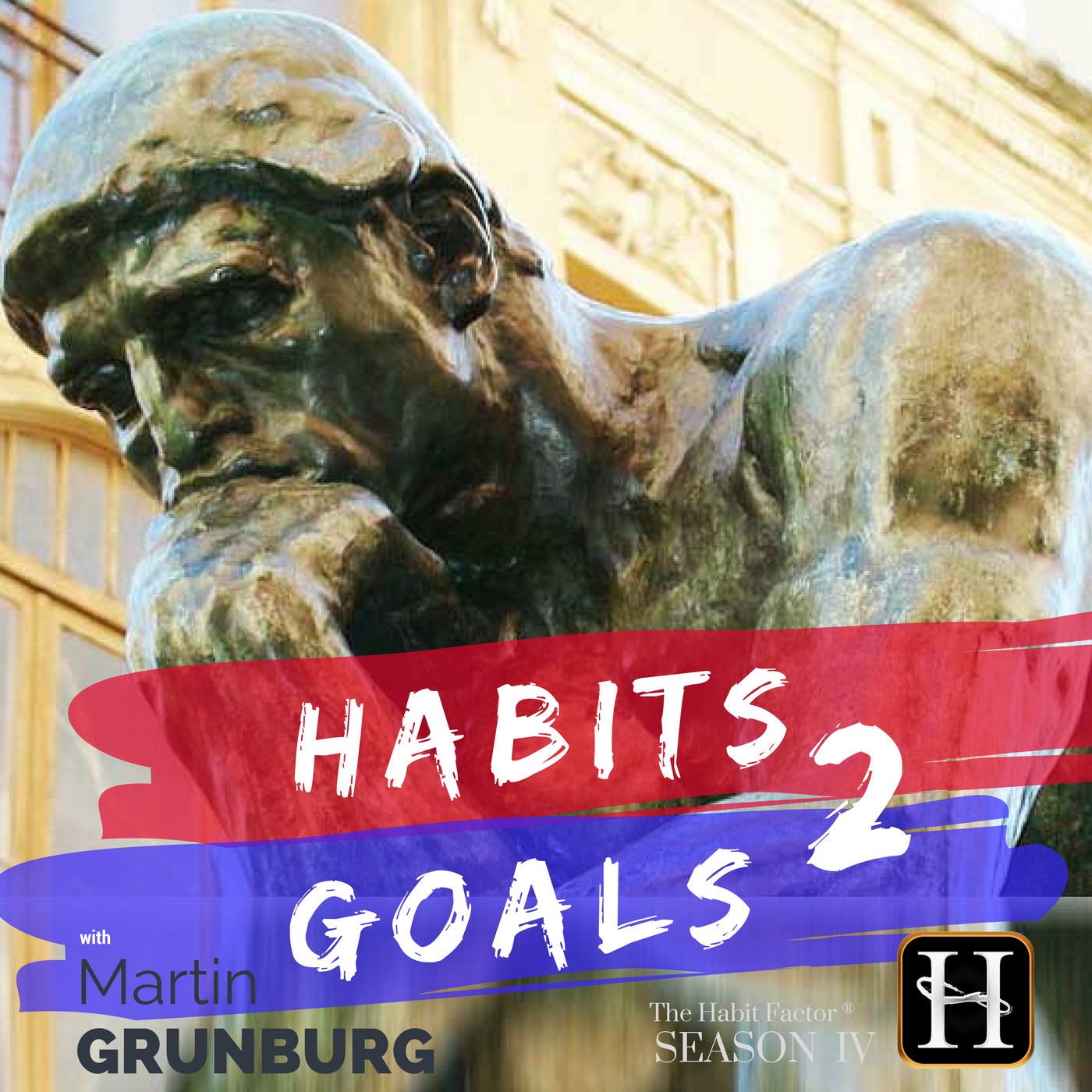
Welcome to Your Energy Factor
“Never does nature say one thing and wisdom another.”CLICK TO TWEET Sometimes the best inspiration for unlocking the secrets to a more productive and fulfilling life can be found in nature. Join Martin and I as we share a new perspective on habit development and how to reverse engineer your goals.Brian Tracy likes to use the metaphor of a “Time Factory” and remind us that no matter how poorly we may have used our time yesterday, last week or even last year… tomorrow each of us will receive twenty-four fresh, new hours delivered to our doorstep.Here’s the catch; what good are the twenty-four hours if you are not physically, mentally, emotionally or spiritually well?So, we decide to take the “Time Factory” metaphor just a step further and we imagine instead that we all have an “Energy Factory”.How will you design the widgets and the cogs in your energy factor? What do you want them to produce?Knowing that to enjoy a life well lived we should be designing the widgets and cogs in our factory to produce results in the following major seven wellness areas:MindBodySocialSpiritualFinancialLifestyleProfessionalJust focus on one wellness category and ask yourself what should the factory’s output look like tomorrow, next week, or maybe even at the end of the year?YOU get to build out your factory and all of its machinery… just determine what kind of cogs and widgets will produce the results you are looking for. It’s YOUR factory!Once the widget (habit) is in place and working… you can design the next widget. Enjoy!“What’s a man without energy? Nothing. Nothing at all.” – Mark Twain Podcast: Play in new window | DownloadSubscribe: iTunes | Android | RSSSubscribeDon’t miss a single episode. Subscribe to the podcast to get each episode sent directly to you. ResourcesBrian TracyZig ZiglarThe Habit Factor appThe Habit Factor templateThe Habit Factor bookBig Brothers Big Sisters This is a public episode. If you’d like to discuss this with other subscribers or get access to bonus episodes, visit habits2goals.substack.com/subscribe
20:4220/07/2015
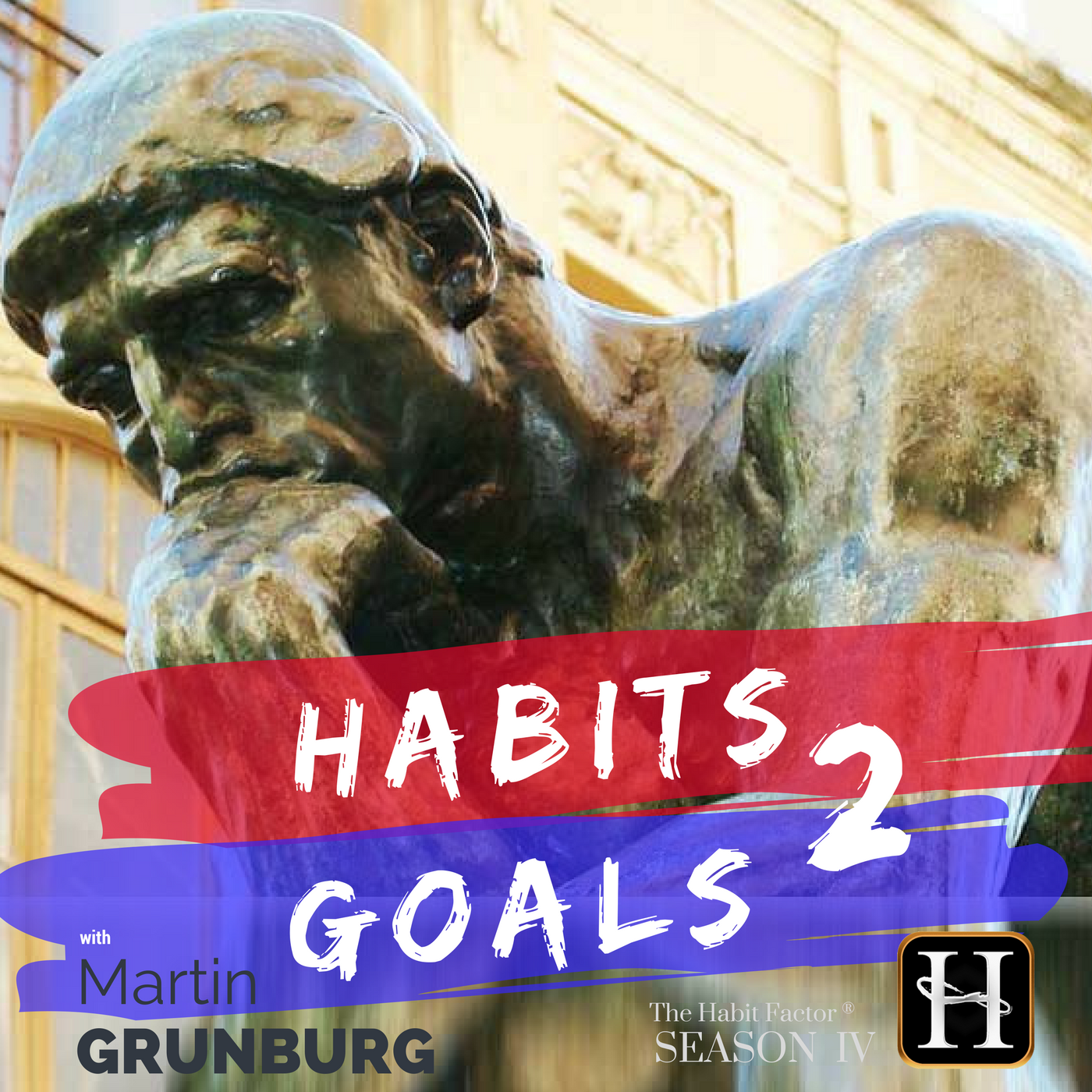
Discovering Your Automatic Success Mechanism
Sometimes it seems as though simply having a goal in mind can help you to get to where you want to be. Believe it or not, everyone has the ability to program themselves and create their own instinct-like behaviors. Join Martin and I as we explore the Automatic Success Mechanism (or ASM) and share how you can access it and reap its hidden benefits.Derived from Dr. Maxwell Maltz’ Psycho-cybernetics, the ASM is founded on the idea that each and every one of us has a built-in computer and all we have to do is understand how it works and then program it. Give yourself clear targets, forge the habits that support the goal and then trust that the many unknowns will find a way to work themselves out.[Tweet "“Success is 90% clarity.” "]By taping into the collective consciousness and applying your ASM, even when you can't see the full staircase, you can trust that just taking the first step the next step will come into view.Knowing how to use and trust the ASM frees you from the "paralysis by over-analysis" syndrome so many suffer from.Check it out.... Enjoy! ; )[powerpress]SubscribeDon't miss a single episode. Subscribe to the podcast to get each episode sent directly to you. Resources Psycho-cybernetics - Dr. Maxwell MaltzDouble, Double: How to Double your Revenue and Profit in Three Years or Less - Cameron HeroldThe Habit Factor appThe Habit Factor templateThe Habit Factor bookBig Brothers Big Sisters This is a public episode. If you’d like to discuss this with other subscribers or get access to bonus episodes, visit habits2goals.substack.com/subscribe
22:4213/07/2015
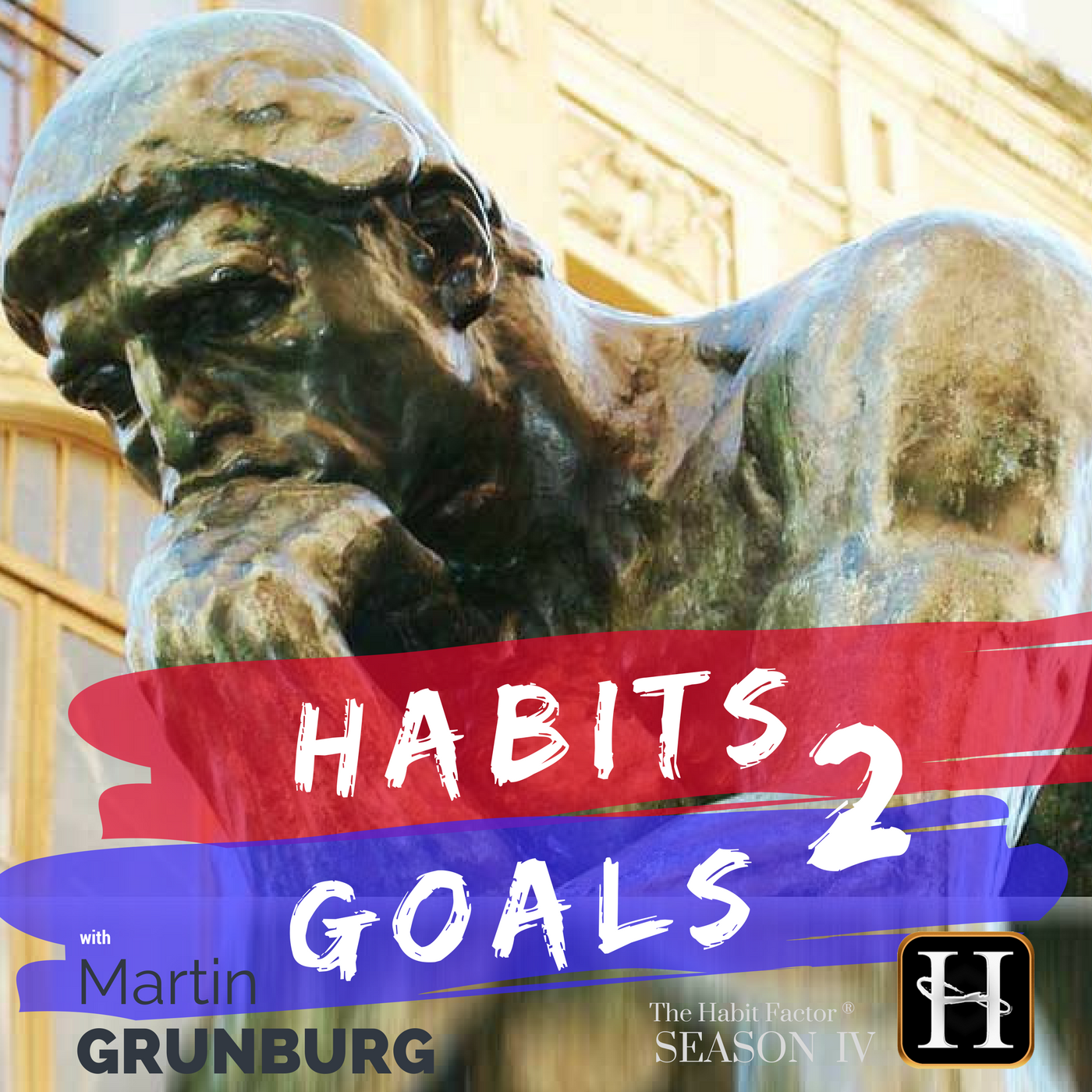
Super Conscious Connectivity
Many of the greatest thinkers and philosophers throughout history believed that ideas are "alive" and readily available in some sort of universal space which is often referred to as "infinite intelligence" or the Super-Conscious.Whatever you want to call it, chances are it exists! Emerson once noted, "There is a power above and behind us and we are the channel of its communication." There is a power above and behind us and we are the channel of its communication. —EMERSONThe best part is this "resource" isn't relegated to the super genius or the super-creative... it's available to everyone...all you have to do is connect to it!Perhaps you've wondered how Leonardo da Vinci could draw a helicopter centuries before one existed or how Edison had the insight for the lightbulb or Ford the carburetor or... and, on and on it goes.Even Albert Einstein once noted, "There comes a leap in consciousness, call it intuition or what you will, the solution comes to you and you don't know how or why.""A LEAP IN CONSCIOUSNESS"... Fascinating.To draw upon this innate creative intelligence that we all have Martin and I review a "system" that he credited helped to reveal many of the insights in The Habit Factor and now his upcoming book, The Pressure Paradox. The process is just an ordered formula or recipe he calls the "Ments".1. ElucidateStart by defining the end state.. the problem and the ideal solution. Try to get crystal clear on the underlying problem and this will help to provide some associations and connections you may have not otherwise made.2. InvestigateOnce defined... RESEARCH! Feed your conscious and subconscious mind with the problem and all available information you can find about it and possible solutions. What's been written and thought about it already. With the search engines of today, research has never been easier!3. Marinate or (accelerate if you must)The next step is to allow the problem and all the related information you have come across in your research to really sink in. Think about the idea often and just let the idea marinate for while. You can accelerate the process through a brainstorming session with others. Sometimes, depending on the urgency of the matter, a person might marinate on a subject for years.4. EmancipateAs you marinate, set the problem free.... go for a jog, surf, take a walk hit the gym. Just get away from the problem that you are trying to solve. This allows you subconscious mind to take over the process and make the connections and associations--the leap as Einstein called it that you can not make consciously.5. CongregateAfter releasing your problem, the insights will start to arrive. Now is the time to corral them, and pair them up and ORGANIZE all the new ideas with the research and the original problem statement and see how your new solution fits.This super conscious connectivity may seem mysterious at first, but when you start following this process you will see better and faster results on a consistent basis. Much like any exercise and like a muscle continued use will strengthen the skill. Start to identify opportunities in your life where you need an innovative solutions. Make super conscious connectivity a habit you practice. This is a public episode. If you’d like to discuss this with other subscribers or get access to bonus episodes, visit habits2goals.substack.com/subscribe
29:5906/07/2015
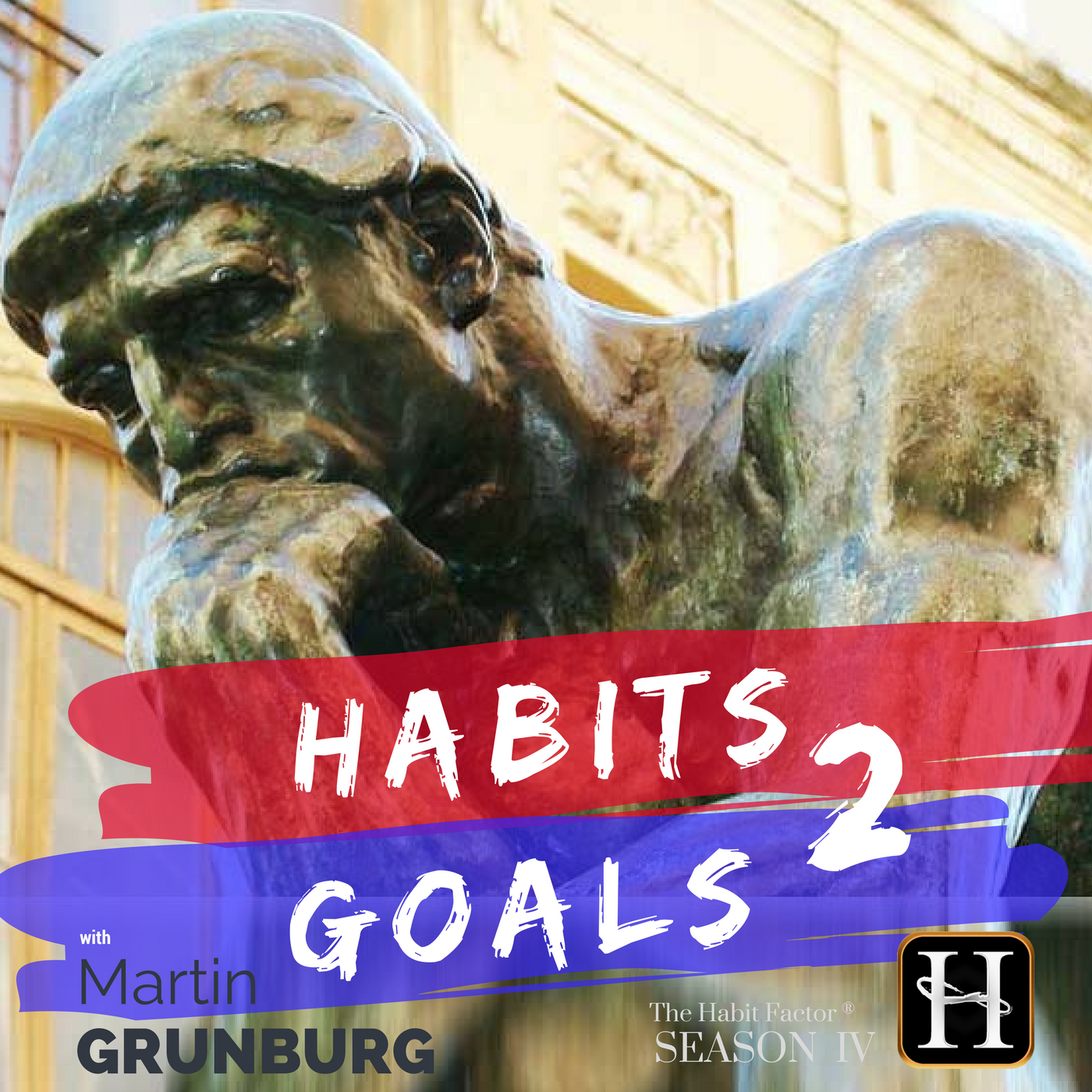
What does Benjamin Franklin and a Hindu priest have in common?
The art of tracking one's behaviors (habits) dates back hundreds of years ago and wasn't necessarily born with the iPhone or even The Habit Factor. In fact, one of the world's greatest minds, Benjamin Franklin famously wrote about the art of tracking his "virtues" in his own autobiography to refine his character.In this episode, Martin and I review the roots and similarities of tracking behaviors to help achieve personal goals and refine one's character... all through habit tracking.A renowned inventor, politician, scientist, author, and one of our nation’s founding fathers, Benjamin Franklin built quite the legacy. In spite of all of these remarkable achievements, can you guess the one thing he wanted to ensure he shared with the future generations?"I hope, therefore, that my descendants will followthis example and reap the benefits"Benjamin Franklin was referring to the long standing practice (which itself became a habit) of tracking his thirteen virtues over the course of the year. He would rotate from week to week tracking each day one of his thirteen virtues (habits).Because of this practice (behavior tracking) we believe he ought to be considered one of the great, great grandfathers of personal development!By deciding WHO BF wanted to BEcome... and what he wanted to BEcome, Ben simply reverse engineered the character traits he wanted then identified the behaviors (habits) he believed that would help to get him there... then he just tracked them daily!Fast forward a couple hundred years and we find a Hindu spiritualist, Dandapandi, (a former monk), who goes to great lengths at his speaking / teaching and workshop engagements to share the importance of building a "consistent practice" (in other words, a "habit"). And, in order to do this he urges that we follow the same process that his own monastery used, which was to track their behavior daily!Paradoxically, of course this would suggest that the art of mindfulness requires the development of its corresponding habit. So, the goal is to be as mindful as possible without having to think about it. Then, in order to do this, the monks would track their behavior each day about how mindful they were and in the process they would develop the "consistent practice" of mindfulness. The mindfulness habit.So, whether you are a spiritualist from India or Benjamin Franklin, YOU can rest assured that there is ONE way to get the results you are looking for and that is to TRACK your behavior or more specifically, use P.A.R.R. (see video ; )Until next time. This is a public episode. If you’d like to discuss this with other subscribers or get access to bonus episodes, visit habits2goals.substack.com/subscribe
25:1029/06/2015
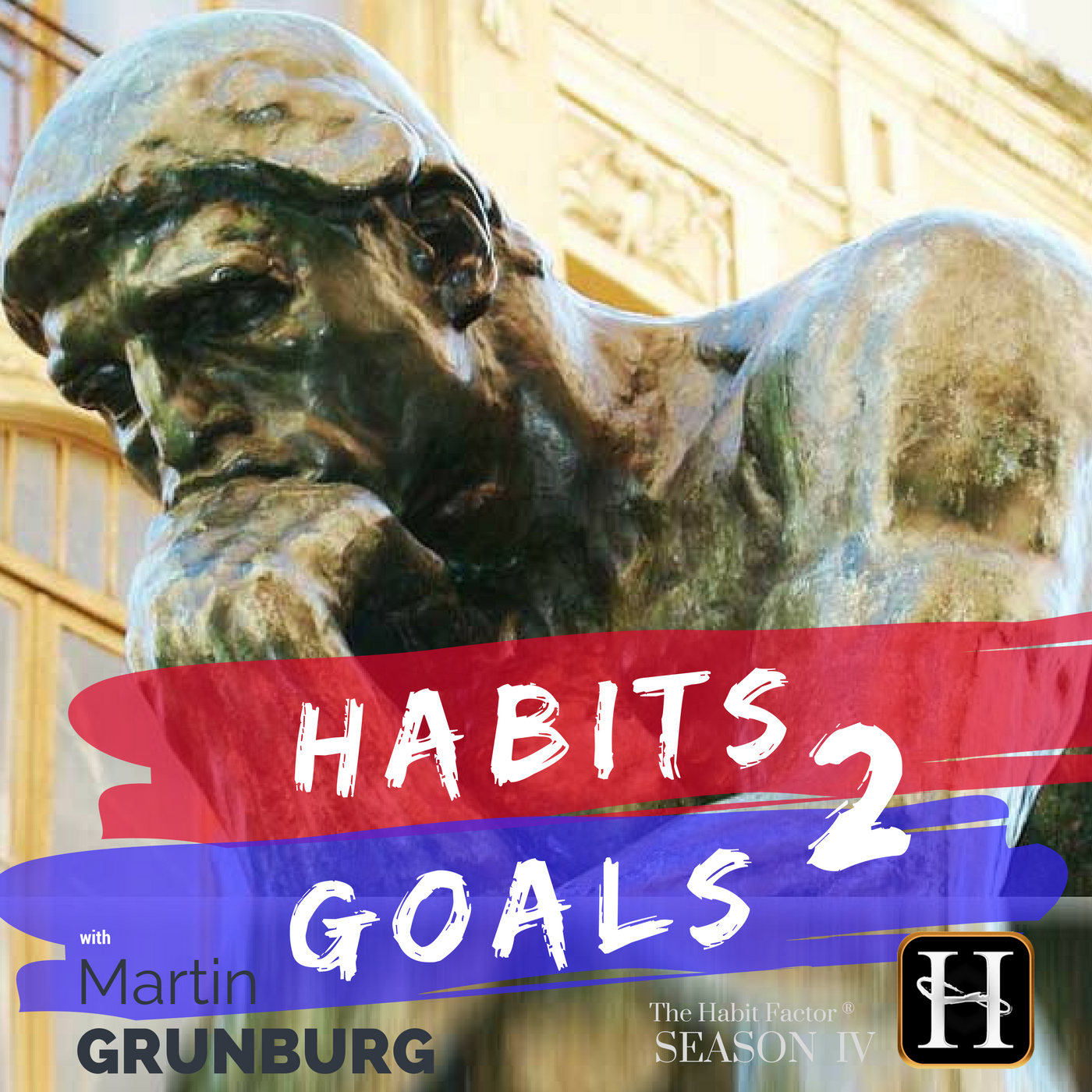
3 Bad Habit Busting Tips
Trying to create new, effective habits is often associated with first trying to kill-off any existing bad habits that are holding us back. In this quick, high-value episode, Martin and I identify the three most important “MENTS” when it comes to busting those bad habits!“Birds of a feather flock together."EnvironMENTWhy would our environment influence our habits? Well, as our energy wanes throughout the day (along with our willpower), it is essential that your environment is tailored to support your new habits and goals. For example, if you're trying to lose weight, throwing out all of the potato chips in the pantry is a great start. The environMENT applies to all things--not just a new diet. When you surround yourself with like-minded people it provides a great support system to help you craft new habits.“A nail is driven out by another nail. Habit is overcome by habit." ~Desiderius Erasmus2. ReplaceMENTQuitting any habit cold turkey is often difficult and ineffective because it leaves a void. When it comes to removing a bad habit it's important to remember that nature abhors a vacuum. Instead, try replacing any bad habit with a new, positive one. When Martin wanted to cut back on his coffee habit, rather than stop drinking coffee, he replaced his morning cup of joe with green tea.“All life is an experiment. The more experiments you do, the better.” 3. ExperimentThis podcast, writing The Habit Factor, and even his new book, The Pressure Paradox as well as The Habit Factor app have all been, in some form or fashion, an experiments. It takes trial and error (action to create information) in order to find out what will work best for you. In many ways, this idea brings us back to #2 (replacement) since you will need to try things, make some mistakes before you find what will actually stick![Tweet "“Good habits happen when planned, bad habits on their own.” @TheHabitFactor"]When trying to craft any new habit or BREAK ANY BAD HABIT, take a quick run through this checklist to ensure that you are setting yourself up for success. With these three "MENTS", you'll be certain to break bad habits and craft new powerful habits that will help you take charge of your life. This is a public episode. If you’d like to discuss this with other subscribers or get access to bonus episodes, visit habits2goals.substack.com/subscribe
20:2622/06/2015
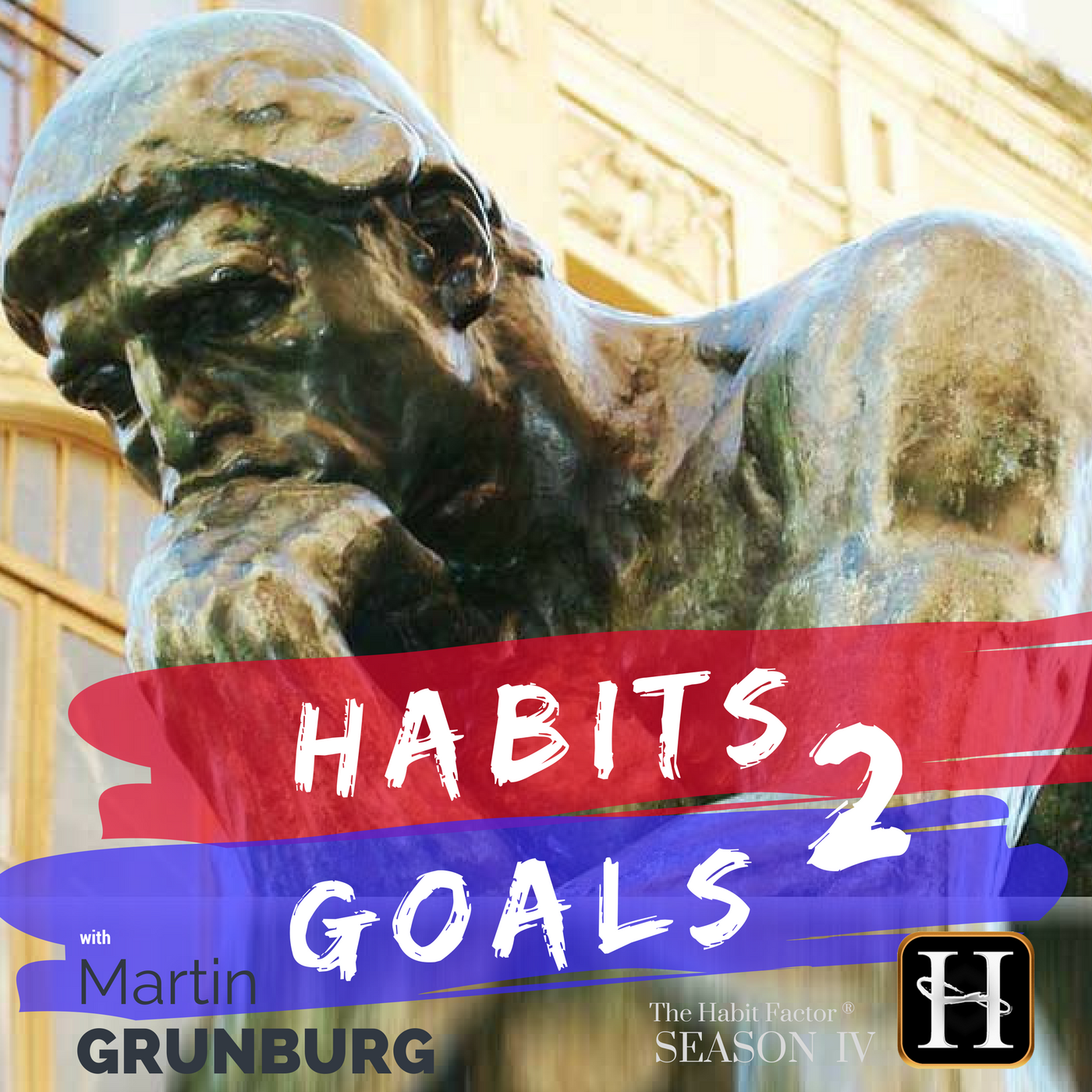
Four Monster Myths on Habit Development
While many do not consider the importance of habit development when it comes to goal achievement, those that do unfortunately are subject to the many great myths which surround the topic. In this episode, Martin and I review and dispel four monster myths about positive habit formation.1. It takes 21 days to develop a habit.This originated decades ago with, Psycho Cybernetics a terrific book by Dr. Maxwell Maltz. While it does not take 21 days to develop a habit it is safe to say you can START to develop a habit in 21 days. According to a study from the European Journal of Social Psychology, it takes, on average, 66 days. Research tells us though that it depends upon all sorts of criteria including; desire, skill and knowledge related to any particular habit.2. Cue- Routine-RewardCue, routine, reward and the related, "habit-loop" were largely popularized by The Power of Habit. The habit loop helps to illustrate what triggers and environments have been supporting past behaviors (habits) but the habit loop fails to provide any guidance about how to actually form good habits intentionally. Cue, routine, reward may address half the battle but leaves out the significance of TRACKING and REASSESSING as well as using Target Days, Minimum Success Criteria and Tracking Periods, all which help greatly when developing good habits and constitute P.A.R.R.3. Consecutive DaysPositive habit development is NOT an all or nothing proposition. In fact, the study referrenced above supports something that The Habit Factor introduced over five years ago, that you can and should use Target Days to develop habits and that habit development depends far more upon consistency over time than consecutive days.4. All habits will last forever once established.People often view habits as static and unchanging. Habits do need to be maintained, but it's important to constantly reevaluate your life and your goals to make sure that your habits remain aligned with your goals. As your life progresses your goals will change and its likely you'll want to reassess what habits you will need to help you achieve those goals. This is why habit tracking and the PARR methodology are so important! This is a public episode. If you’d like to discuss this with other subscribers or get access to bonus episodes, visit habits2goals.substack.com/subscribe
26:1315/06/2015
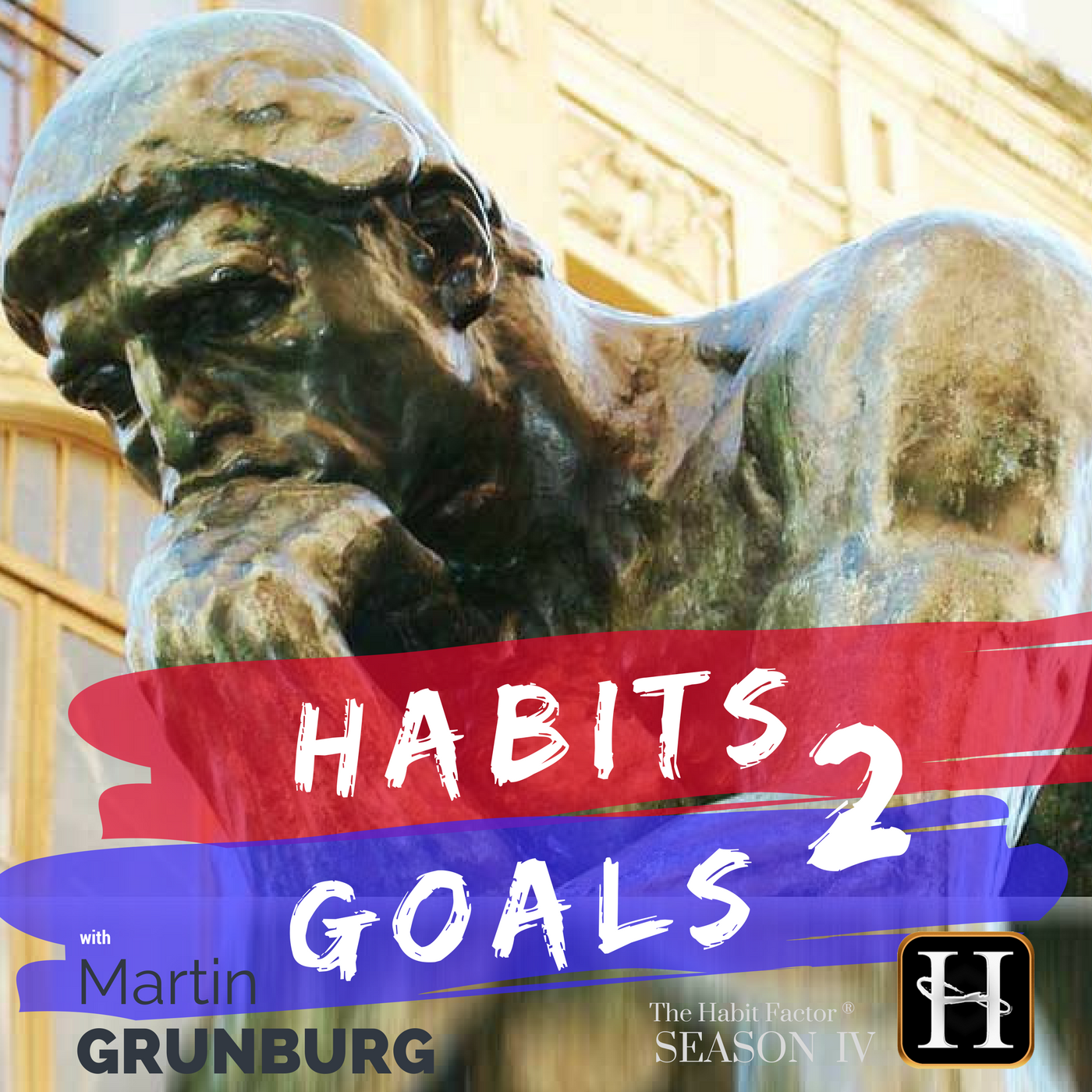
Nick Palkowski | Podcasting Insights From The Master
This episode has us turning the tables... in the coming weeks we'll begin to weave-in interviews of domain industry experts so we figured we might as well start with Nick Palkowski, podcast guru, expert in online marketing strategy and all-around-great guy!Things weren't always sunshine and rainbows for Nick. The first business he started in college, while a great learning experience, ultimately left him with $2 in his bank account and a jar of peanut butter. A jar of peanut butter. Those important lessons (from failure) taught Nick what not to do and what he needed to do differently. They proved invaluable and led him to launch his booming, full-time business Your Podcast Guru."The best way to grow your business is to consistently add value to your audience." @NickPalkowskiOne of the most important factors for Nick was understanding that success is a habit, meaning he recognized the importance of becoming a consistent and disciplined professional. Nick even shared his top three character traits and supportive habits on the show... (23:45):Reading every dayEvening ritualExerciseWe discuss an important principle, "The Principle of Maximum Error" and how Nick's story is a great, real-life example. So, if you're interested in podcasting and self-improvement (with some inspiration) listen now and check out his custom page for THF listeners: www.yourpodcastguru.com/thf. This is a public episode. If you’d like to discuss this with other subscribers or get access to bonus episodes, visit habits2goals.substack.com/subscribe
46:3408/06/2015
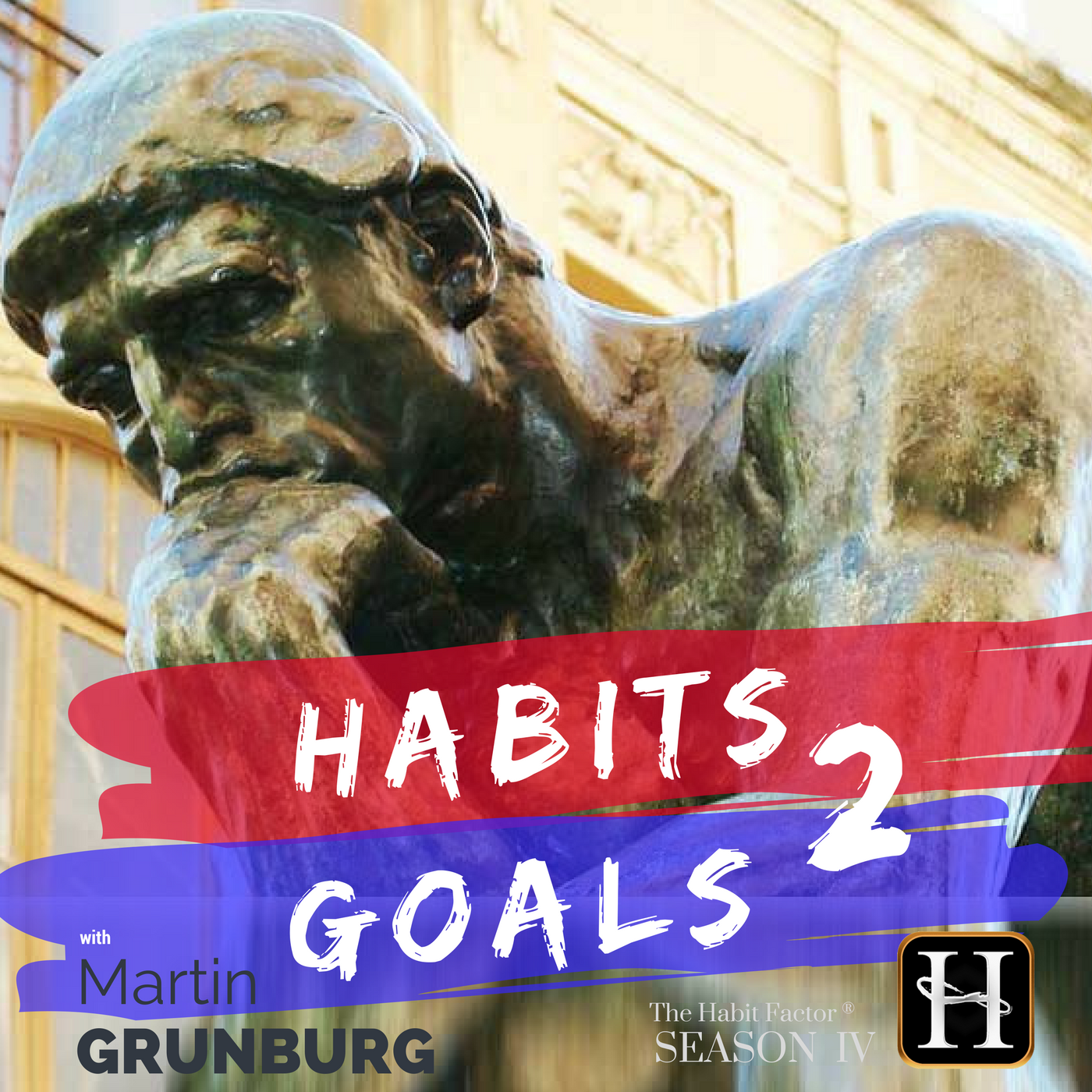
The 8th Wind
Are you pushing yourself hard enough? Most people would respond with a resounding yes. While the idea of a second wind is fairly common, Martin and I explore the possibilities of having a third, fourth, fifth (even an eighth!) wind in this episode of The Habit Factor. “If you're going to doubt something, doubt your own limits.”Ever notice during exercise that even when you're tired, you can always dig a little deeper and find energy reserves to get you through to the finish line? By changing your state of mind you can radically change and increase your energy levels and persevere to the end of any project! Challenge your assumptions, your biases, and challenge the perceived limits that you have set for yourself. If you feel that you've been lulled in to a comfort zone of limitations, set increasingly extreme challenge for yourself and discover your eighth wind. You’ll be amazed at what you can achieve. “Life doesn't get easier. We just get stronger.” This is a public episode. If you’d like to discuss this with other subscribers or get access to bonus episodes, visit habits2goals.substack.com/subscribe
21:3901/06/2015
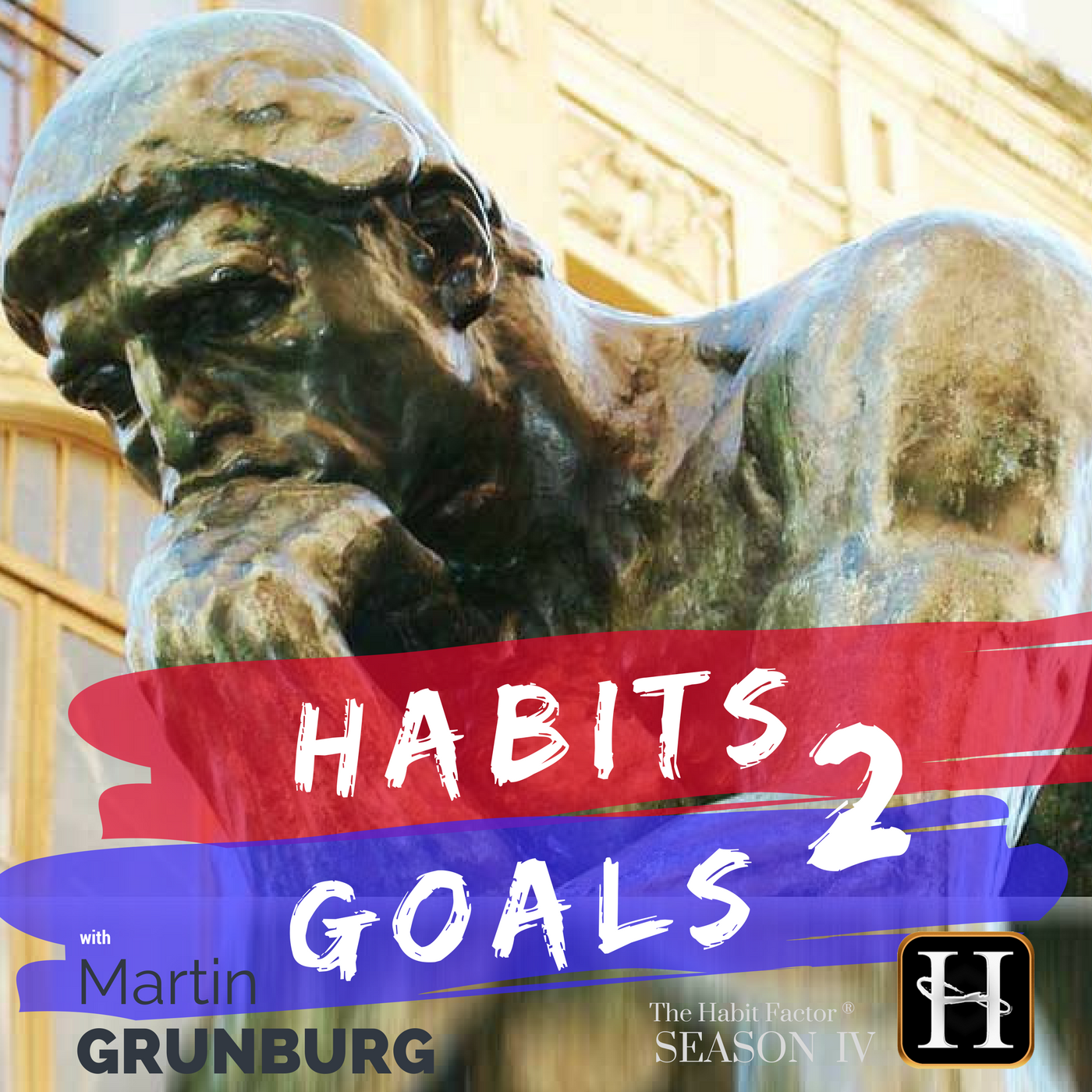
How Nature's Wisdom Can Make Your Life Easier
No matter how close you live to big, green spaces, many of your struggles can be traced to how aligned you are with nature. Sparked by a conversation with his teenage daughter Martin and I delve review some clues that can very well make our life easier.“Every action has an equal and opposite reaction.”Anytime there is frustration and friction in your life it's important to check and compare how aligned your affairs and thoughts are with the natural world. In this episode, Martin shares some of his observations about nature and just how we might adapt them to our own situation. (12:00):PatiencesRhythmBusy, DiligentEconomy & EfficiencyThe cycle of lifeChange & metamorphosisStruggle creates strengthNature is flexible, adapting, and resilientEverything must flowUnityThere are many things we cannot controlBalanceThis week, we challenge you to take one of these observations and apply it to your life. Track it and see for yourself how effective you can be when you align yourself and your efforts with nature!“Never does wisdom say one thing and nature another.”For more on the link between productivity and nature, check out the episode on the Physics of Productivity at TheHabitFactor.com/013“There is nothing in a caterpillar that tells us it is going to be a butterfly.” This is a public episode. If you’d like to discuss this with other subscribers or get access to bonus episodes, visit habits2goals.substack.com/subscribe
32:0325/05/2015
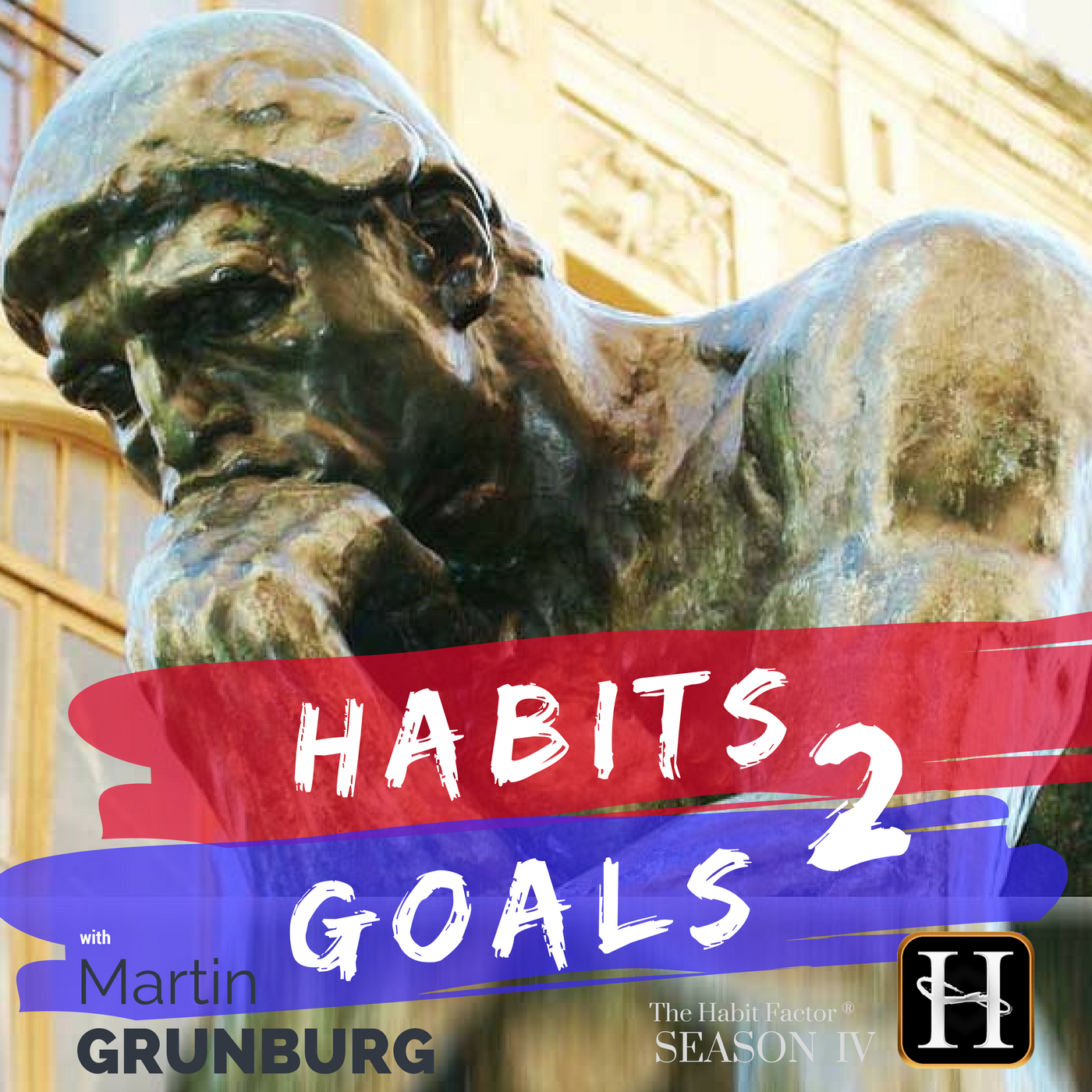
Philosophy & Habits of Thought
The word “philosophy” comes from Ancient Greek and means “love of wisdom”.Unfortunately, the modern translation appears to have become slightly twisted to the point where the word might only connote some impractical college major.Yet, philosophy ought to be embraced by all who seek to live in a more "favorable" world for it is our own mental constructs (our own philosophy) that dictates how we think, feel and act. So, philosophy isn't just about talking or even thinking, its true meaning lies in the execution of the ideas and ideals.Today, Nick and I revisit the essence of philosophy and review some of the framework behind The Habit Factor franchise.“All men’s natures are alike, it's their habits that carry them far apart.”In this episode, Martin shares a handful of his favorite quotes and a few books that helped him to form a foundation for thought and action (a mixed philosophy that spans; Thoreau and Socrates to Kurt Vonnegut.Enjoy! This is a public episode. If you’d like to discuss this with other subscribers or get access to bonus episodes, visit habits2goals.substack.com/subscribe
36:3418/05/2015
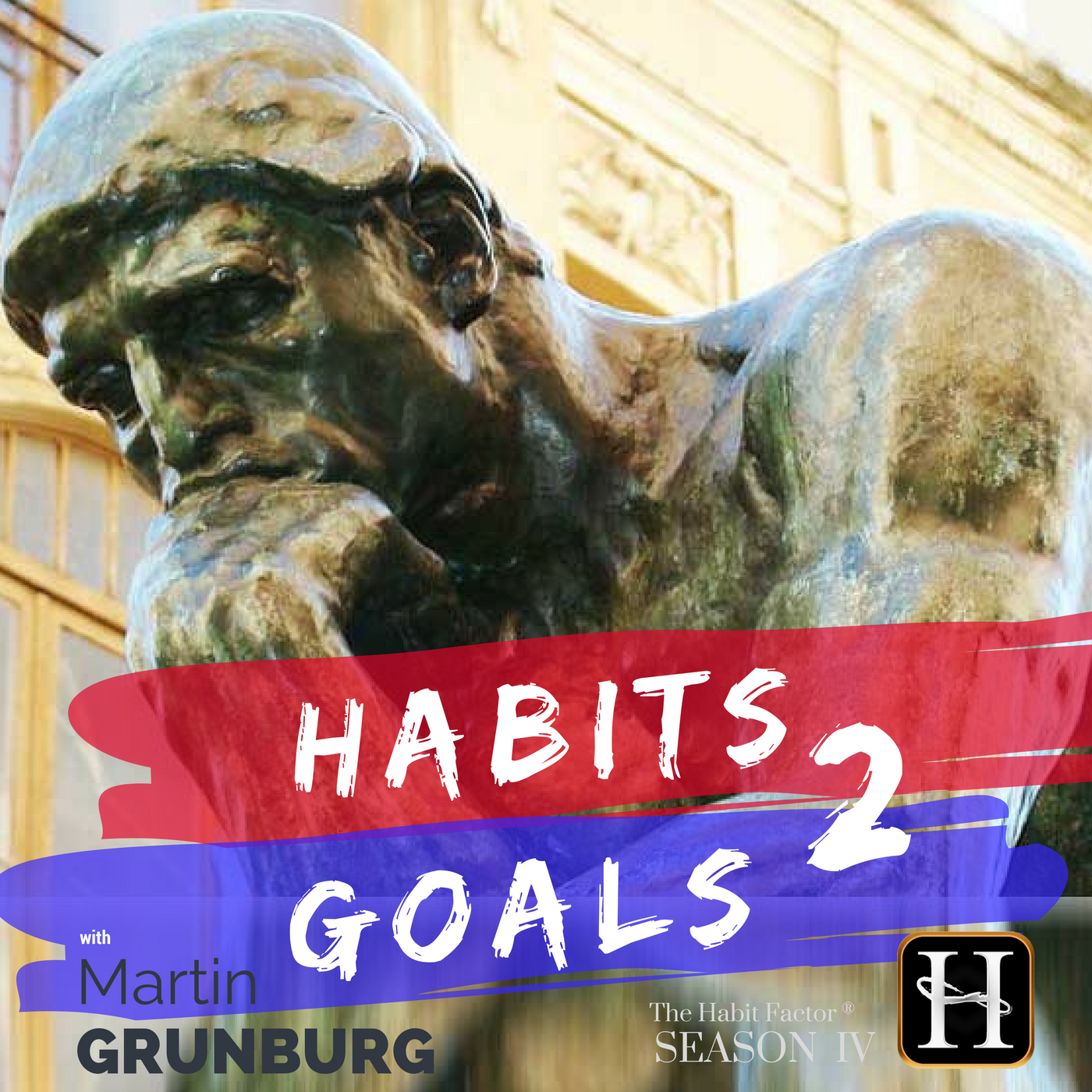
Got Leverage?
“Give me a long enough lever and a place to stand and I can move the world.” In the battle to get ahead, often the first step is finding a better way to leverage the only limiting resource everyone shares, TIME. Understanding how to properly leverage your time and ideas is a game changer and it's sure to boost your productivity. In this episode, Martin and I review some strategies to optimize your personal power (your ability to act on ideas) to help get the results you want! Touching on Dr. Stephen Covey’s "Quadrants of Effectiveness", Martin shares a few tips for deciding when and how to outsource (contract labor) to allow yourself more time to focus on the things most important to you. Or, if you're not quite ready to source other experts, there are simply more effective ways to plan and use your days. When you leverage your time more wisely, you simply take longer, more efficient steps toward your goal which accelerates your achievement and of course will have a life time effect on your achievements. Enjoy! This is a public episode. If you’d like to discuss this with other subscribers or get access to bonus episodes, visit habits2goals.substack.com/subscribe
26:0011/05/2015
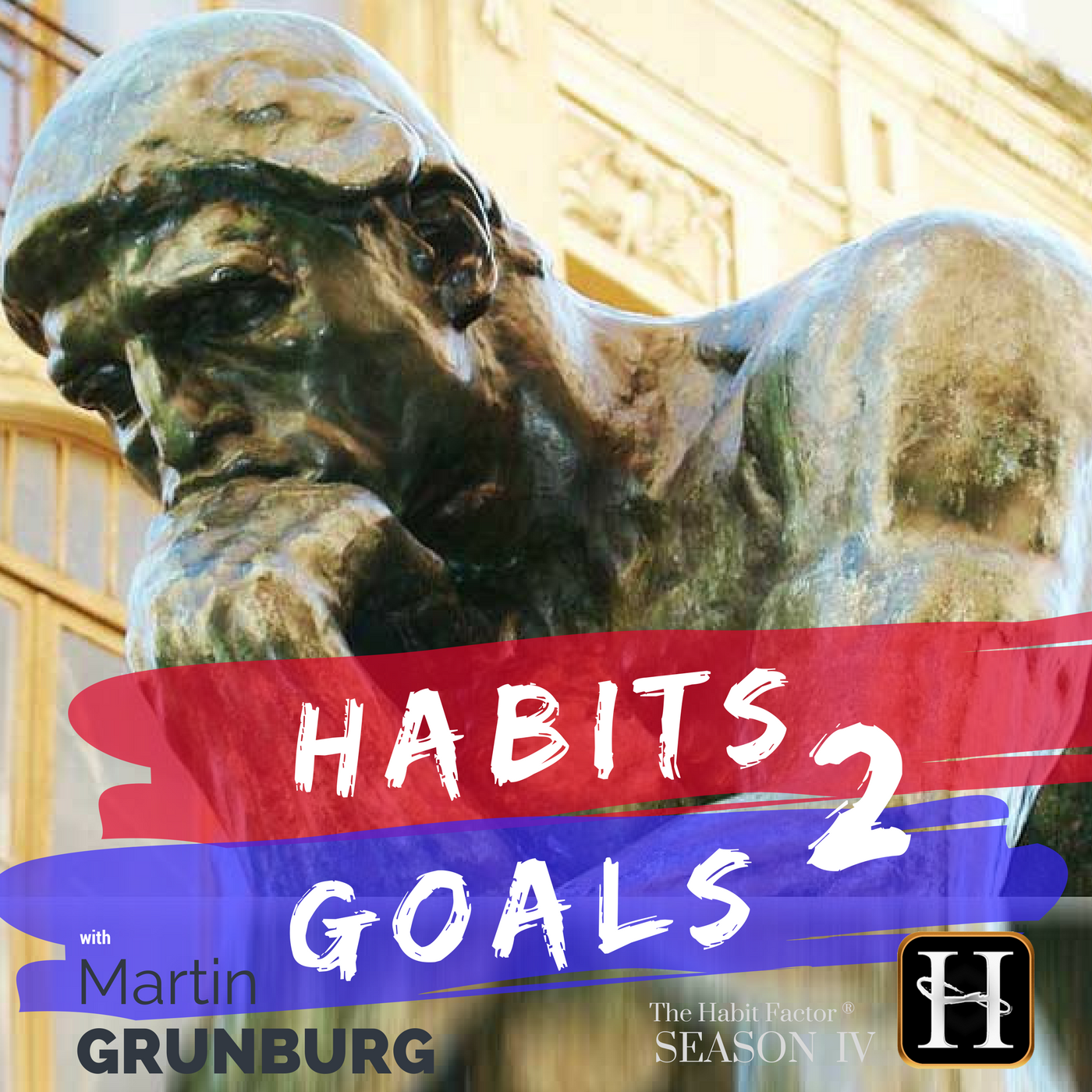
6 Reasons to Create and Master Your Rituals
“Good things happen when planned, bad things happen on their own.” ~Quality is Free Tweet ThisThe path to leading a more efficient life is simply to harness the power of positive habits and rituals.Chances are very good you already have a set number of habits and rituals (particularly in the morning or evening). The question is, have they developed by choice or by chance? Are they by design or by default?Intentionally establishing positive routines in the morning and evening will help you to feel refreshed, balanced, connected and even, as a bi-product far more productive.In this episode, Martin and I review 6 reasons rituals are powerful and various tips for establishing them to help foster your efficiency and peace of mind. (7:10):…rituals are more energy efficient…they compound greatly w/out notice at first…they work with natural rhythms…help you to feel more connected…bring you mindfulness and mindlessness…they can be established consciously using the P.A.R.R. methodologyThis week, Martin and I challenge you to create a ritual and to track your progress--that's it!By tracking the ritual, you will reinforce its behavior and habit becomes the gateway rituals to foster an environment where you can be your most productive and successful self. This is a public episode. If you’d like to discuss this with other subscribers or get access to bonus episodes, visit habits2goals.substack.com/subscribe
28:4704/05/2015
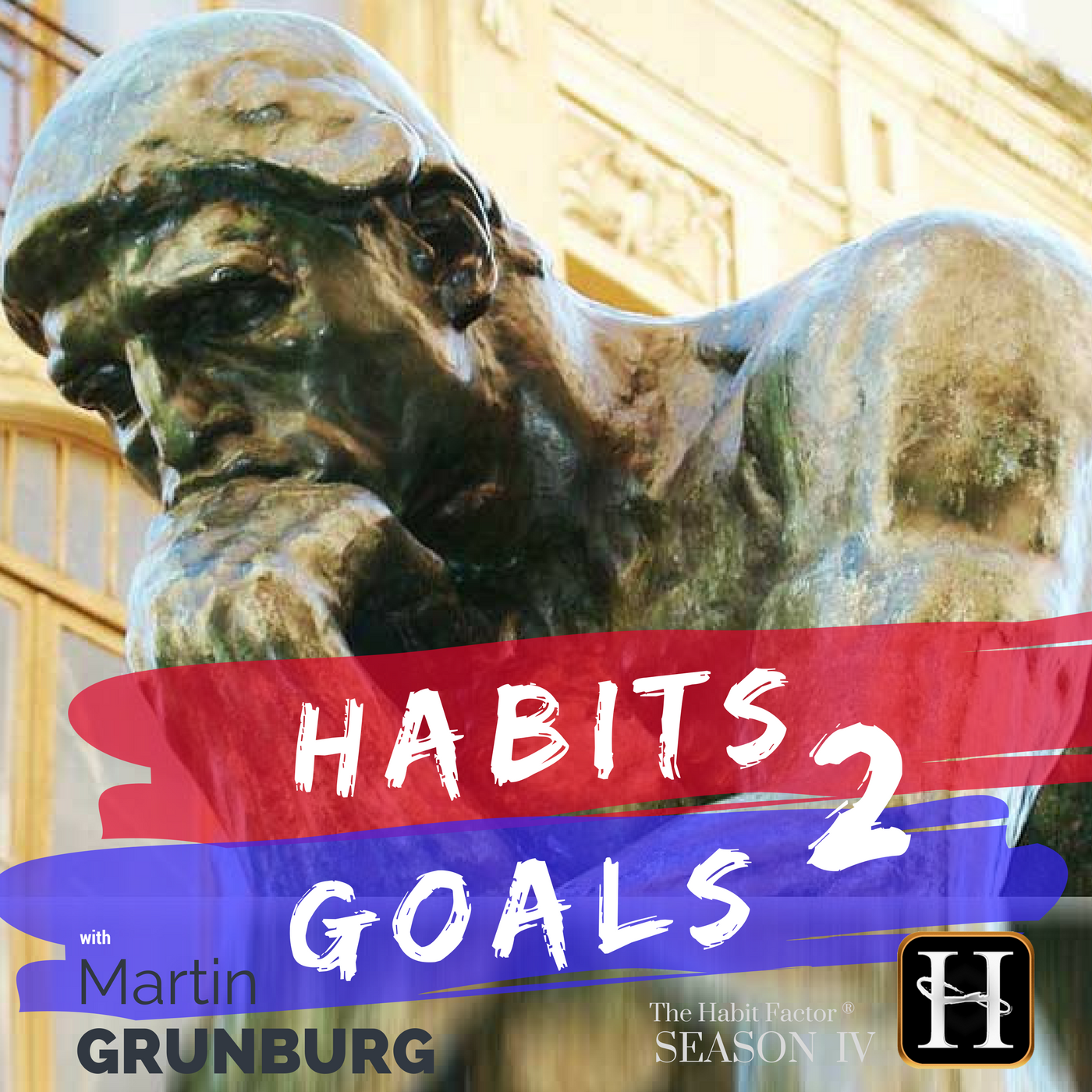
Deadlines: The Good, The Bad, & The Ugly
“Goals are just dreams with deadlines.”A man named C. Northcote Parkinson once claimed that work expands to fill the time for its completion. While its human nature to procrastinate, there aren't enough people using deadlines to their advantage. Join author Martin Grunburg on this episode of Habits to Goals as he shares his strategies for accelerating productivity with deadlines.When you don't understand how deadlines can help you, sometimes they can hurt you. Avoid thinking in terms of all or nothing and accept that there will be times that you will need an extension. Maintain perspective and persevere with accountability groups and realistic timelines to transform deadlines into a positive force to empower your life.“There are no unreadable goals, just unreasonable deadlines.” This is a public episode. If you’d like to discuss this with other subscribers or get access to bonus episodes, visit habits2goals.substack.com/subscribe
22:2027/04/2015
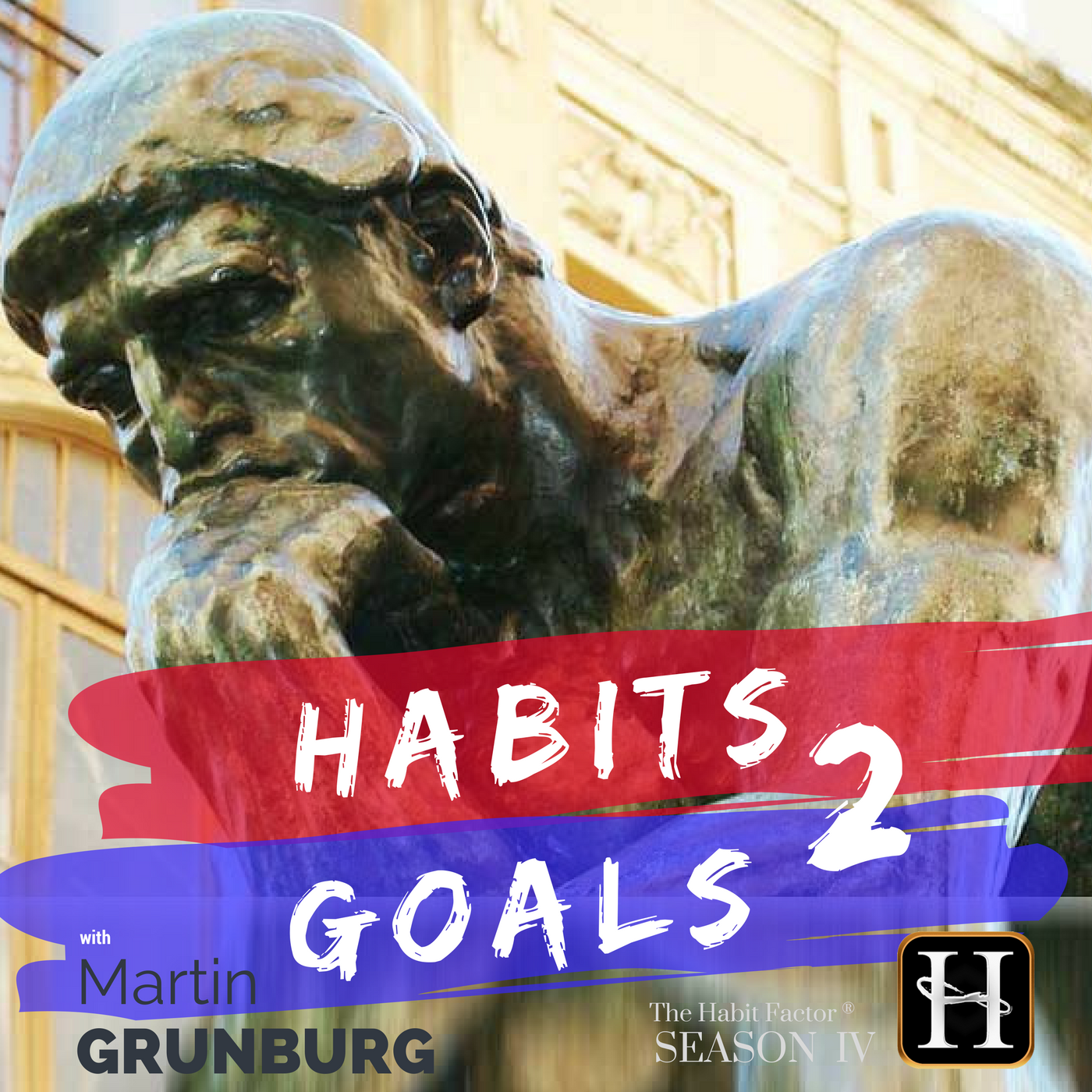
The Seven Habits Refresher Meets The Habit Factor
One of the great inspirations for Grunburg’s The Habit Factor is Dr. Stephen Covey’s classic, bestselling book, The Seven Habits of Highly Effective People. In this episode, Martin reviews some of the similarities and differences between the two works. (10:20).If, by chance you haven't read Covey's masterpiece (do so!) and, in the meantime, here is a quick synopsis (12:45):Be ProactiveBegin with the End in MindPut First Things FirstThink “Win-Win”Seek First to Understand than to be UnderstoodSynergizeSharpen the SawMartin then explains one of the reason The Habit Factor "had" to be written and how The Habit Factor "bookends" and complements The Seven Habits 11:52.Later we discuss how the first three habits focus on the "self" and the next three habits focus on fostering inter-dependence and teamwork. Finally, the seventh habit, "Sharpen the saw" is about renewal and allows for never ending growth and the ability to continually cycle and master each habit.Now, it's your turn! Are you being proactive? Are you beginning with the end in mind? Are you following the seven habits? And, are you tracking the core habits that will help you to achieve your goals?Consider getting these books, studying and understanding better how habit and the seven habits can help to improve your life!Enjoy! This is a public episode. If you’d like to discuss this with other subscribers or get access to bonus episodes, visit habits2goals.substack.com/subscribe
31:2720/04/2015
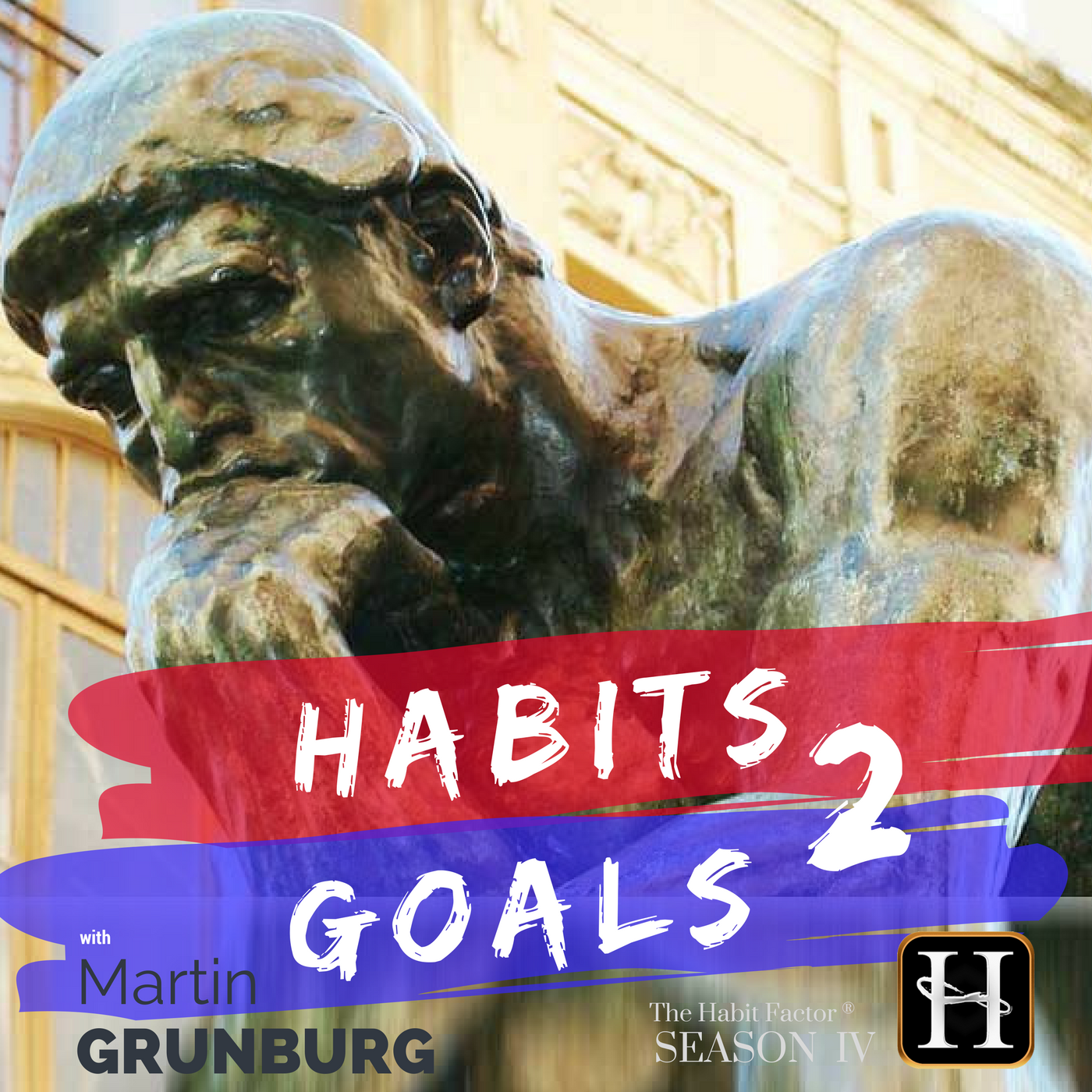
7 Reasons Self Help Doesn’t Suck
“Everyone wants to improve the world, very few are willing to improve themselves.” Tweet ThisMany people write-off self-help thinking that positive thinking just sets you up for disappointment later.Zig Ziglar once put it brilliantly, "positive thinking won't allow you do everything, it only allows you to do everything better." For instance, positive thinking may not help you to dunk a basketball. But, it will make your efforts much improved.The beauty is self-help isn't just about "positive thinking". First and foremost, it's an acknowledgment that the person responsible for their growth and development is themselves.SELF HELP (at the proverbial end of the day) has been described as the only real help there is.Self-help is also about accepting one's self as they are and then acknowledging ways they might improve. The pursuit of self-help assures a certain amount of humility.“True nobility isn't about being better than others, it's about being better than you were before.” ~Wayne Dyer Tweet ThisSo, really, the beginning of all self improvement is an acknowledgement that you can be better and a belief that it's possible.In this episode, Martin and I review his personal journey of self improvement (6:00) and then he discusses at least seven reasons why self-help doesn't suck (11:10).It's the only true help there isIt helps you assume responsibility for your life.Promotes a respectful understanding of self and humility.Demonstrates a DESIRE to be better.The concept of true nobilityIt's the only thing you can inspiring othersHe then reviews some top-of-mind favorite self-help books and authors. (26:00).“Let everyone sweep in the front of his own door and the world shall be clean.” Tweet This This is a public episode. If you’d like to discuss this with other subscribers or get access to bonus episodes, visit habits2goals.substack.com/subscribe
29:3313/04/2015
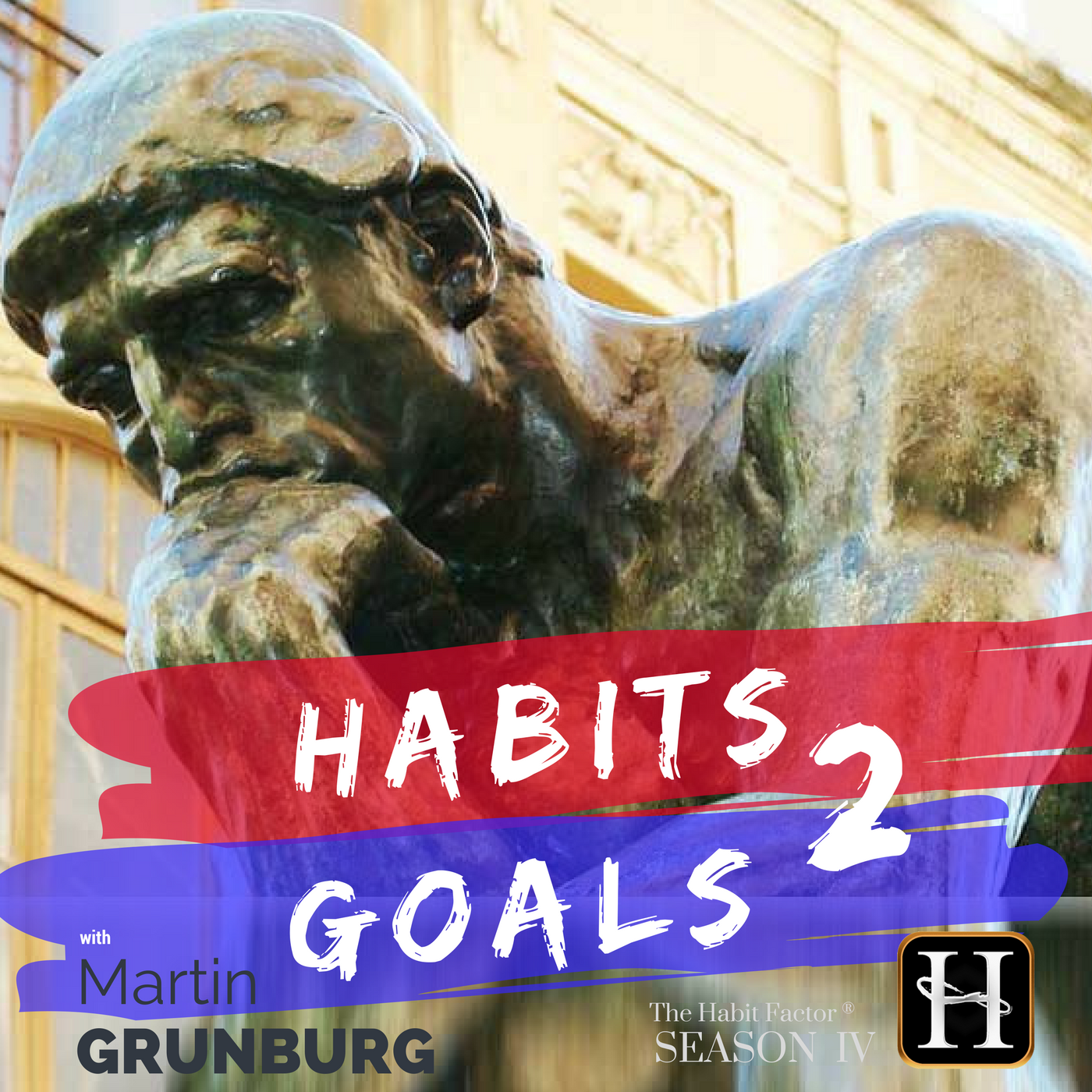
8 Breakthrough Strategies to Become Unstuck
Who hasn't felt STUCK before?The good news is, it's common and something everyone is likely to experience at some point. The bad news is, it's an uncomfortable awareness that you've lost momentum and enthusiasm is gone.That no matter what you try to do, nothing seems to move you or your career forward? Hence, you are STUCK.And, when you’re stuck, it's important to know that it's not just an emotional but also a physiological state. Sometimes it even makes us feel alone or isolated.“Motion creates emotion.” ~Tony Robbins Tweet ThisTo help you form some habits that will ultimately propel you forward, Martin and I review these eight tips to become UNSTUCK (time):More Accurate ThinkingMove!Use and Create RegretAvoid the Comparison GameRead Autobiographies and other books- keep learningChallenge FearAcknowledge and Accept the SituationTrack- Track - Track (Did we say Track!?)By tracking even your smallest, recurring behaviors (habits) that move your toward your goal, you build immediate momentum! Reaffirming exactly why the Free Habit Building-Tracking template is so popular and why the app works so well for so many people ; ).Finally, at the end of the episode, Martin extends a gift for anyone who may be feeling stuck. So, check out the show and share a review please. Thank you.Enjoy! This is a public episode. If you’d like to discuss this with other subscribers or get access to bonus episodes, visit habits2goals.substack.com/subscribe
27:4106/04/2015
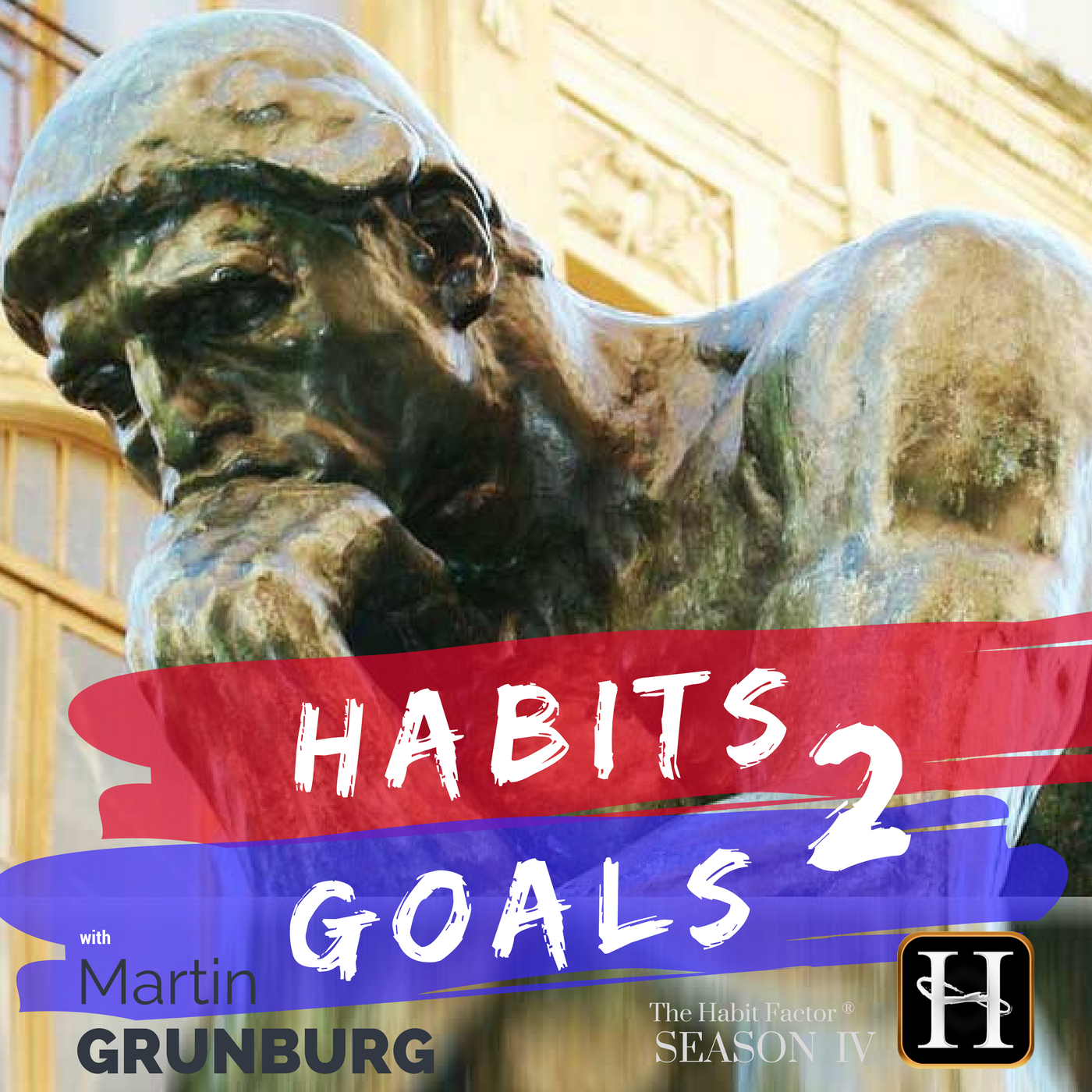
Making The Time to R.E.L.A.X.
It seems everyone I know is "super-busy" and so many people are stressed-out... the question is, how many of them are making time to RELAX.“The best time to relax is when you don’t have the time.” Tweet ThisThe most productive people I know schedule spa days, massages and recreation in the midst of their hectic schedules. That's right, the SCHEDULE relaxation as though it were any other responsibility on their list—and it is. They don't wait for a time when things will slow down... they proactively make the time and slow things down.In order to be the best you can be in your personal and professional life, you must make the time to RELAX.“I have just five letters for you: R-E-L-A-X.” ~ Aaron Rodgers Tweet ThisUttered, Hall of Fame quarterback Aaron Rodgers after the Packers started the 2014 season 1-2. Whether it was because of his statement, imploring PACKER nation to chill or not, the team turned things around and made a great run through the playoffs.In this episode, Martin and I review the "B.R.A.D." acronym which can serve as reminder about how to minimize stress and return to a cool, calm, collected state (13:00):B- Breathe, Deep breathing reminds you to fill the diaphragmR- Release, expectations and the perfect outcome (know what it is and then let go)A- Accept, the situation... resisting any situation only prolongs the challengeD- Direct your attention positively in the present. Focus on the immediate task at hand!Challenge yourself this week by scheduling recreation and performing your daily tasks differently (thinking of BRAD) and cultivate an appreciation for developing these habits of thought. “The more relaxed you are, the better you are at everything!” ~Bill Murray Tweet This This is a public episode. If you’d like to discuss this with other subscribers or get access to bonus episodes, visit habits2goals.substack.com/subscribe
23:3530/03/2015
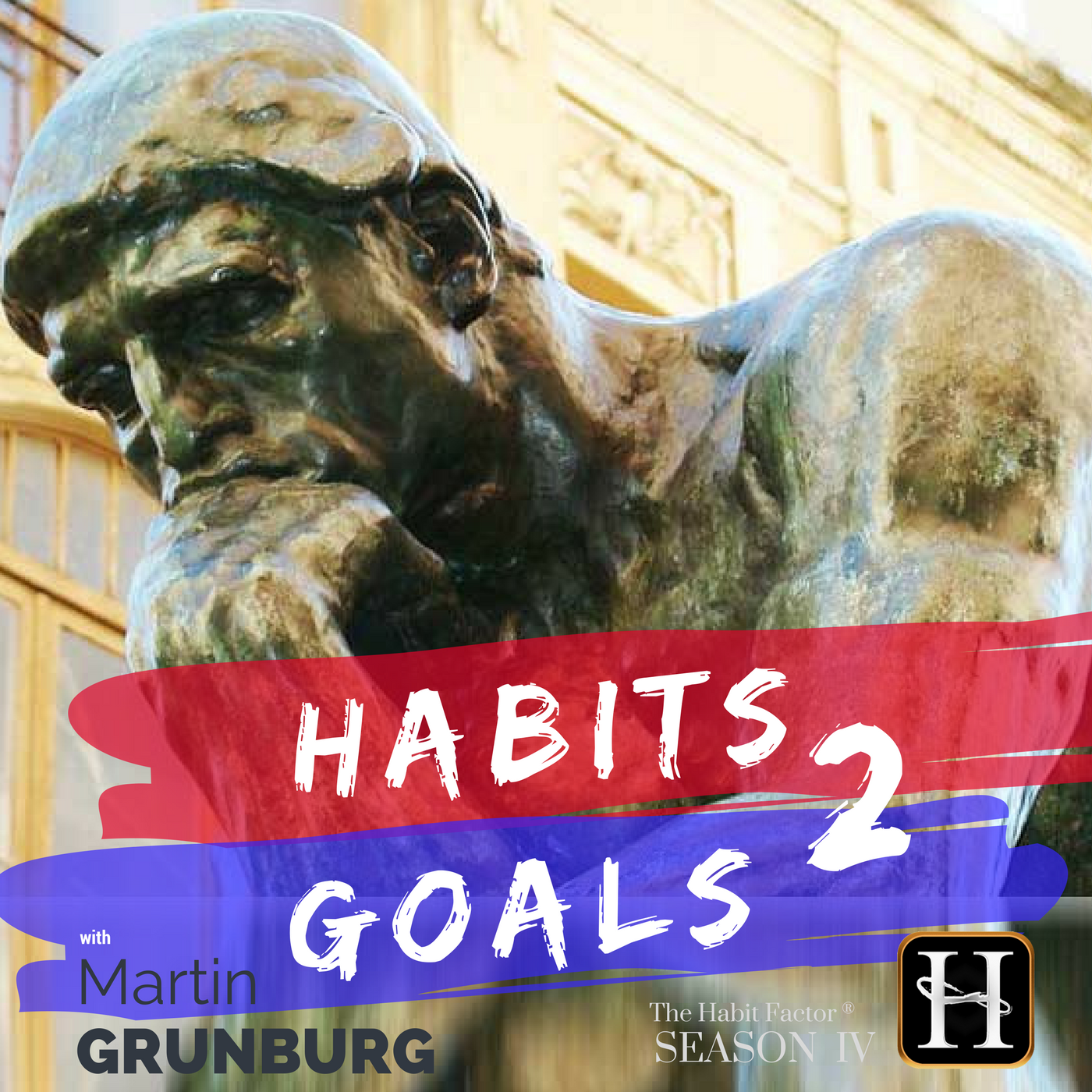
Is Your Head In The Game?
“Every master was once a disaster.” T. Harv Eker Tweet ThisLife is similar to sports. What's interesting is sometimes we choose intentionally to PLAY and other times, without knowing, we've allowed ourselves to fall into the shadows and become a spectator.While it's good to have periods of reflection and rest, too much inactivity or indifference impedes our growth, progress, happiness and success.You know you're PLAYING to WIN when you have a goal defined — you can describe what the end-zone and even first downs look like.“Good things happen when planned out. Bad things happen on their own.” Tweet ThisTo stay motivated and keep your head in the game, be sure to track and keep score! Just try to imagine any professional sport without a target and/or score.Athletes know how they are doing because there is a score and it's tracked! Are you tracking?This simple concept alone accounts for much of popularity of The Habit Factor® app (iOS) (Android) and FREE tracking template (spreadsheet). Tracking creates momentum and provides invaluable feedback!In order to meet the challenge of competition and play our best, Martin and I review the CRITICAL 3 P's. (17:22):Planning - what is the end goal, ideal, objective?Preparing - what are the resources: people, tools, skills required?Practicing - Practice skills, refine and rehearse - simulate real "play"Then, we challenge the listener to identify something they are working on and intentionally practice and track it this week.Finally, we touch on the big trap that seems to hit so many people after a BIG win.With a nice, satisfying win behind them, (just like some athletes) they lose focus and attention in the present. They become tentative and perhaps even unsure how or if they might repeat their prior success.Forgetting of course that, “Greatness is a process.” Tweet ThisAre you tracking? Do you know what the short term first-downs are? What does the long-term end-zone looks like?Let me know how you keep your head in the game?Enjoy. Subscribe. Share. Thanks. This is a public episode. If you’d like to discuss this with other subscribers or get access to bonus episodes, visit habits2goals.substack.com/subscribe
24:5323/03/2015
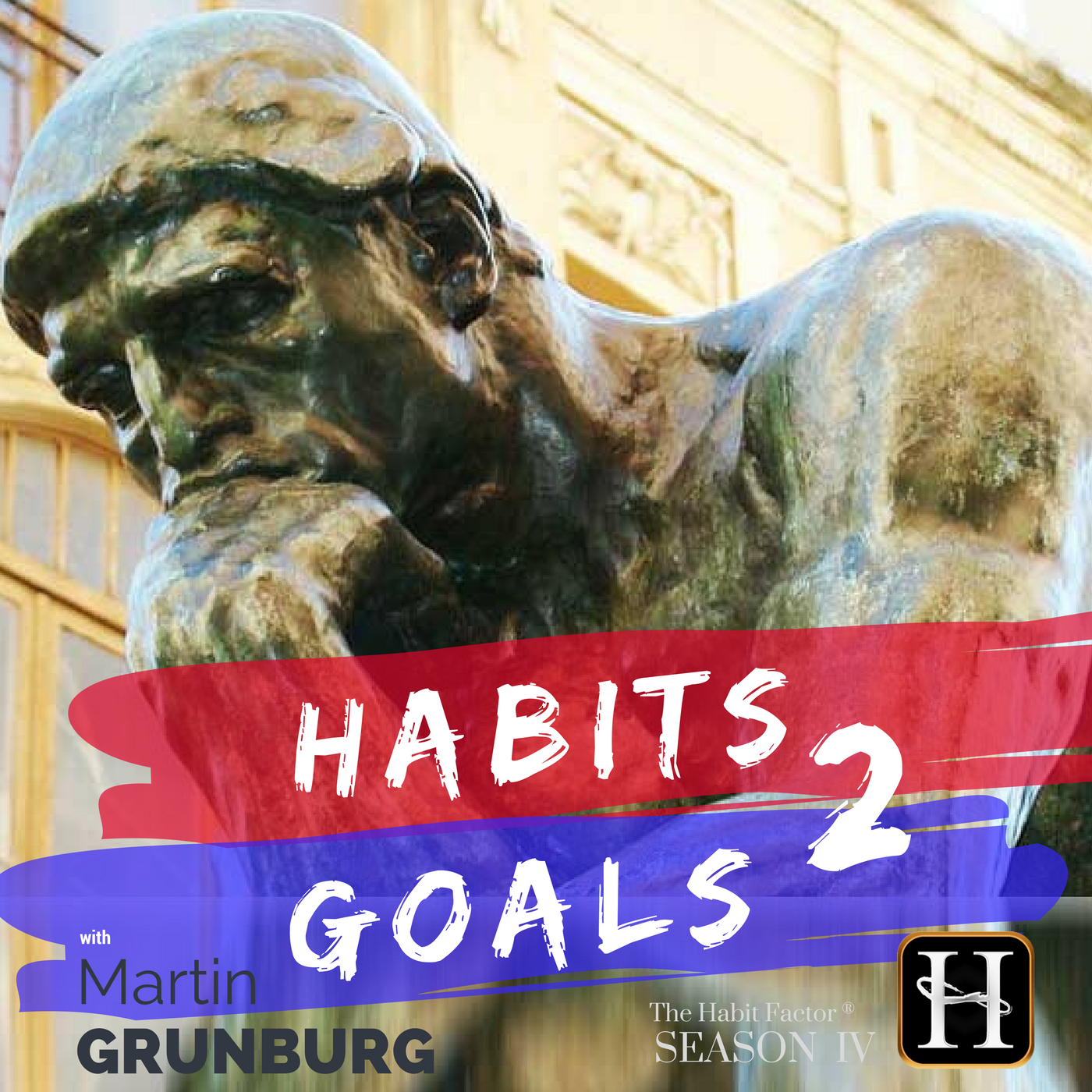
Embrace Paradox to Avoid Paralysis
It's common to hear conflicting messages from personal achievement experts or “gurus”? (5:15).One authority will insist that you don't have to work hard, you just have to work smart. Another insists that balance is bogus or, you just have to follow your bliss. Yet, another claims life is a marathon not a sprint... and on it goes.“Take away paradox from the thinker and you have a professor.” ~Kierkegaard Unfortunately, achieving your goals isn't so black and white. Often, the "real" answer is a mixture of conflicting advice. In a world of a thousand shades of grey, confusion and then paralysis can set in if we remain fixed.In this episode, Nick and I review an essential "key" when it comes to navigating all of this conflicting information. (14:35)."Never does nature say one thing and wisdom another." ~JuvenalIt turns out in your pursuit of personal growth and your goals its best to mirror the many visible traits in the natural world (dynamic, flexible, adaptive) for starters.That mindset, combined with awareness, assures an effective and efficient path to personal growth and goal achievement.“Good judgement comes from experience and experience comes from bad judgement.” Tweet ThisEnjoy! This is a public episode. If you’d like to discuss this with other subscribers or get access to bonus episodes, visit habits2goals.substack.com/subscribe
22:2016/03/2015
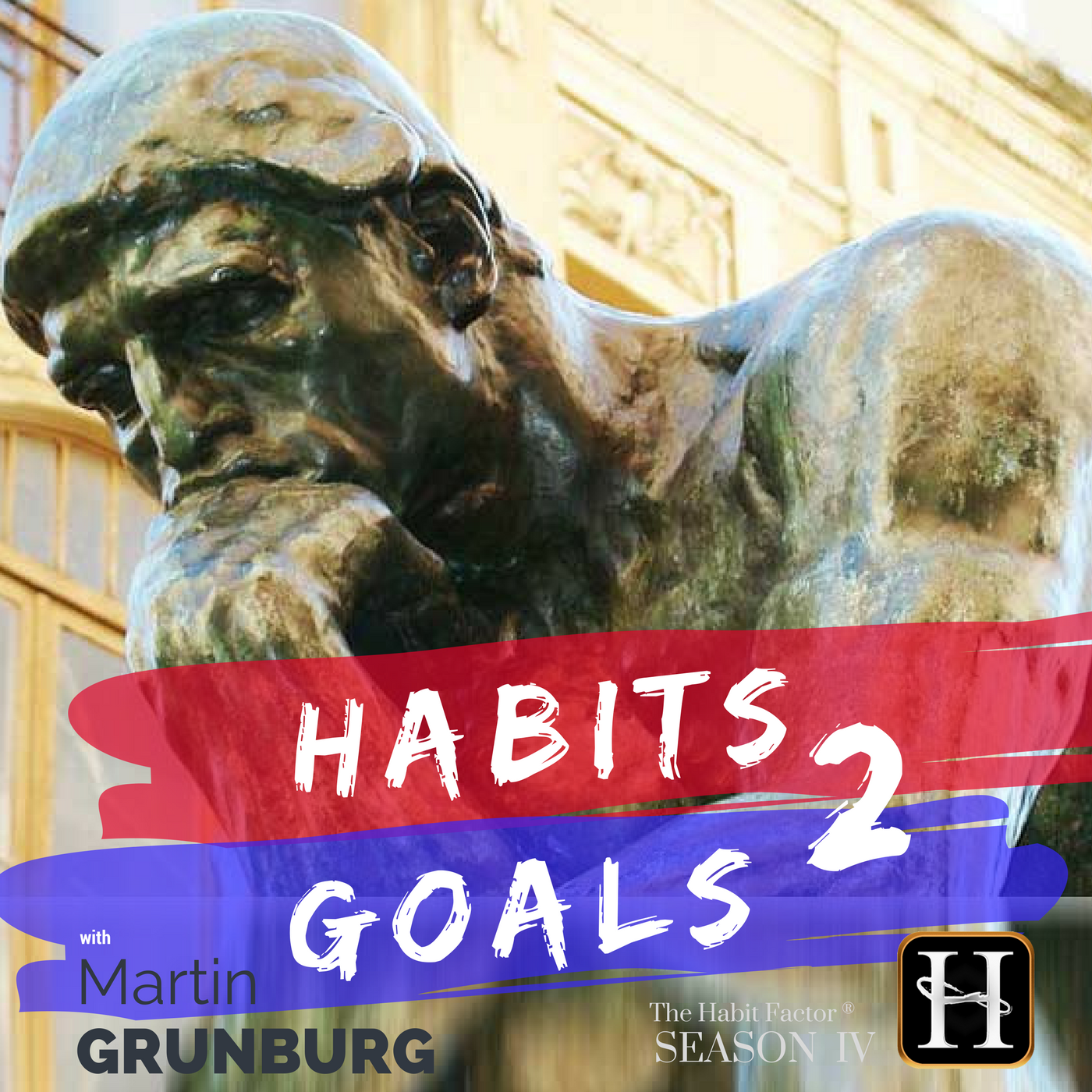
The Physics of Personal Productivity & Relationships
“What is man without energy? Nothing. Nothing at all.” With all of the gimmicks and advertisements for ways to increase your energy, we are made to forget that both we and our goals are energy. Energy, as defined by the Latin root ergo, is the capacity for doing work. To make the most of your energy and to increase your capacity for doing work, Martin fuses Newton’s Laws of Physics with his strategies for increasing your productivity (5:45): An object in motion tends to stay in motion Force = Mass x AccelerationFor every action, there is an equal and opposite reaction. In the words of a Navy SEAL, “Slow is smooth and smooth is fast.” Friction causes tension, so challenge yourself to be more mindful of your responses to negativity and use your energy in a more productive manner. Martin reminds us that we have a limited amount of energy each day and that drama should be avoided at all times, if necessary. “Always take hold of things by the smooth handle.” This is a public episode. If you’d like to discuss this with other subscribers or get access to bonus episodes, visit habits2goals.substack.com/subscribe
22:1809/03/2015
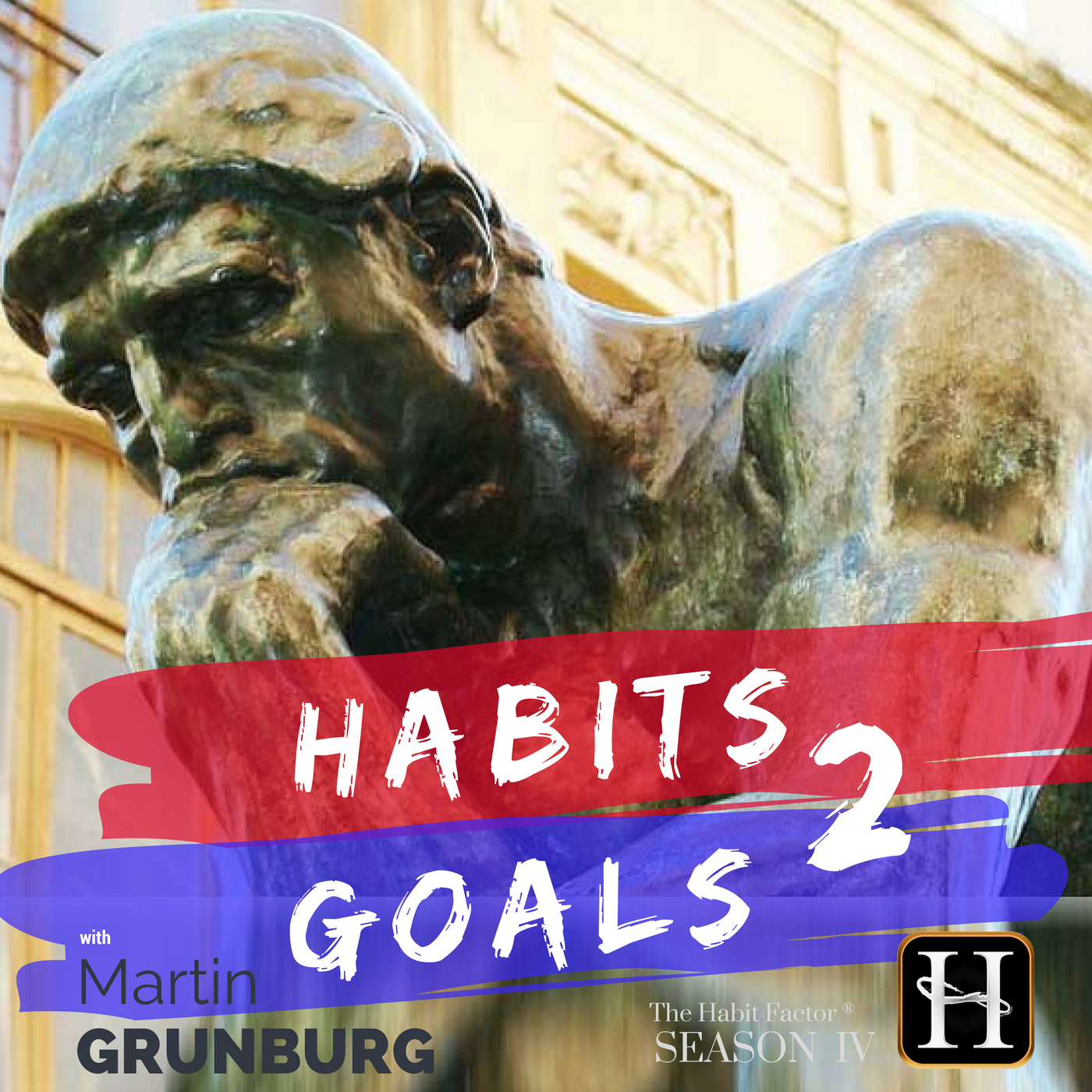
Accelerate Your Productivity | 10 Tips That Will Boost Anyone's Productivity
A quick thank you! Our Habits 2 Goals podcast was featured once again by iTunes and has been in the top 10 (Self-Help category) for several weeks... a terrific start for this new show!Now, on to the business at hand. It seems that everyone I know is "busy, busy, busy". In this show Martin and I cover some of the things you can do to make the most of your time and ensure that your results are meaningful too! No point climbing up the wrong ladder, right?In this episode we walk through some key tips to help anyone be more productive:Effectiveness -what is it really? (4:38)Concentration and Focus (6:03)Leverage (10:30)Delegation (13:02)Creating Milestones (15:07)Finding Models and Asking Questions (18:55)Deadlines and Launching (21:50)Constantly Learning (23:55)Importance of tracking (24:15)Reassessment, adapting and adjusting as you move forward (26:05)While these ideas will greatly enhance your productivity, it's essential to know mental toughness and persistence remain paramount (see GRIT post). Remember too, these tips will only work when you’re kind, patient, and accepting of yourself!If you have any questions about this week’s episode, or any prior shows, email them to Martin at mg ( AT ) thehabitfactor.com. This is a public episode. If you’d like to discuss this with other subscribers or get access to bonus episodes, visit habits2goals.substack.com/subscribe
31:1002/03/2015
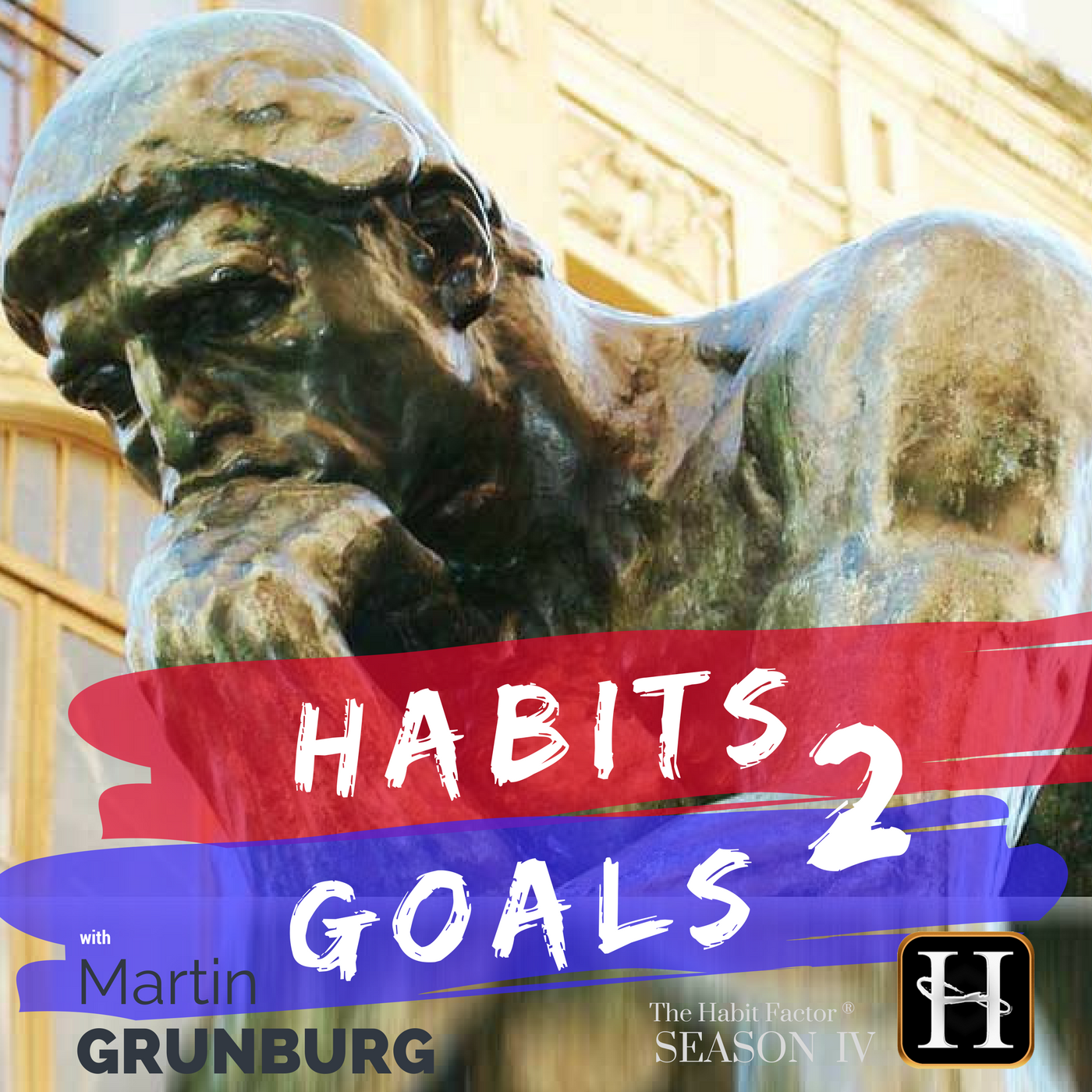
The Habit of Asking Powerful Questions
“Questions direct our energy, attention and focus.” As children we constantly asked questions which led us to learn about our world and ourselves. Over time, many adults fall out of the habit and stop asking questions.Why is the sky blue? Why is the grass green? Why do giraffes have such long necks? Our questions are only limited by our imagination.Fortunately, that habit of asking questions can be strengthened. The more often you ask questions, the stronger the habit becomes. By challenging yourself to look at a problem from multiple dimensions, questions provide an excellent why to focus and reconnect your attention to any problem.Questions have been the cornerstone of education, science and invention since the beginning of time. The greatest inventors and scientists, like Edison and Einstein where famous for the questions they would pose. And, of course, questions have tremendous value to everyday life. In this episode, Martin provides a few examples of how asking the right questions might just help you achieve your most important goals, more quickly (7:24).A few quick tips on questions on how to improve your question-asking skills from this episode include:Ask many questions as early as possible in the problem solving processBe as specific as possible and tailor your questions toward the ideal outcomeFinding and using tools like search engines and Quora to help reshape and refine your skillsDaily tracking of your question-asking habitBy using questions to re-focus toward your meaninful goals, you will attain the concentration needed to add value in your life. Shaping questions around your specific goal will help you consciously rededicate yourself to your goals.“A question well asked is half solved.” This is a public episode. If you’d like to discuss this with other subscribers or get access to bonus episodes, visit habits2goals.substack.com/subscribe
22:2823/02/2015
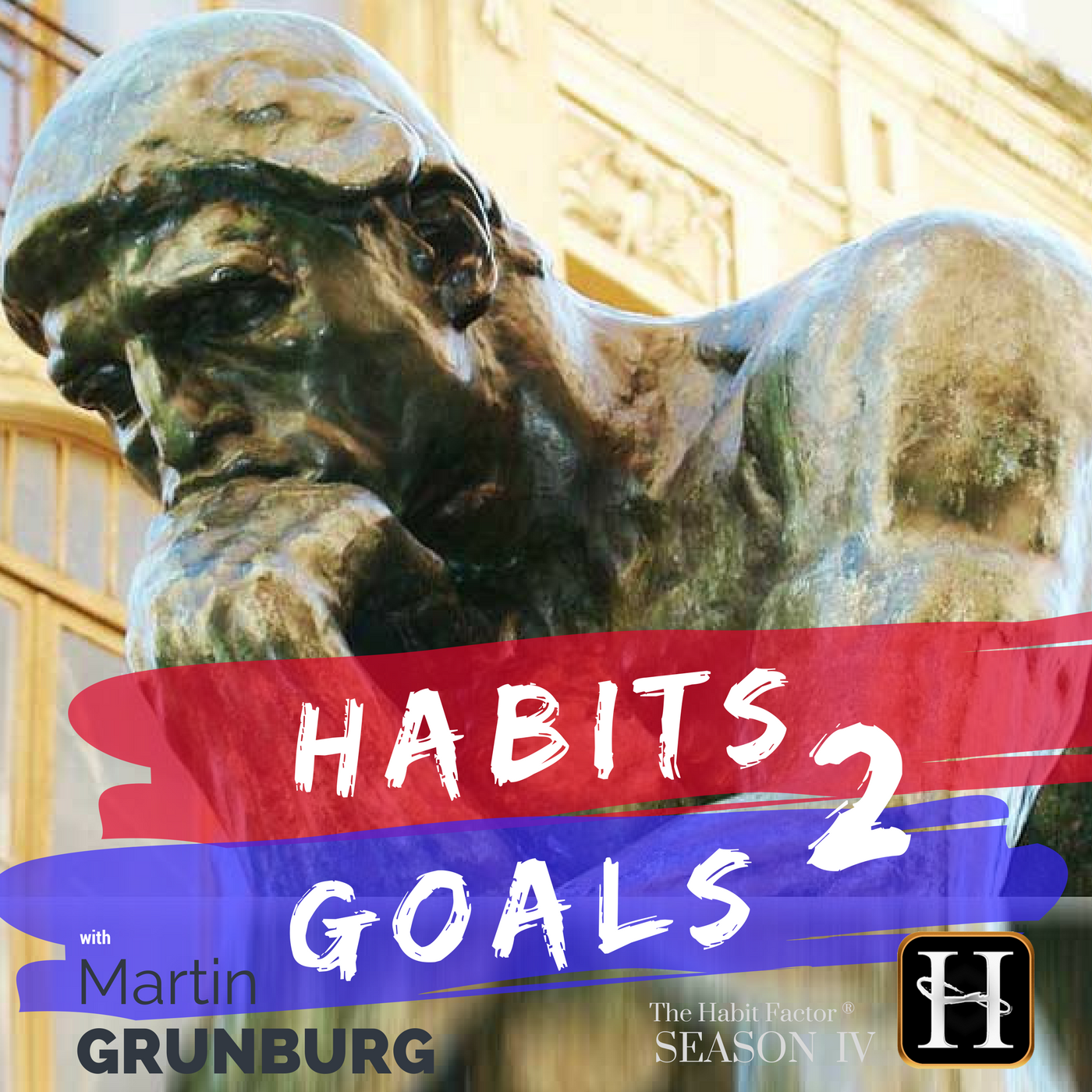
The Grit Habit Revealed
“Nobody is born with grit and no one is born with discipline.” Tweet This Grit is one of the greatest predictors of success and one of the defining virtues of successful people… yet, what is grit exactly and how can you develop it? According to Angela Lee Duckworth’s TED talk, grit is a combination of persistence and a willingness to change and adapt to improve. It is actively choosing to pursue a goal, refusing to quit and being willing to accept failures— understanding that "success" is a processs. “People with a grit mindset are committed to outcomes and are willing to disregard facts if and when necessary.” Tweet This By persisting and keeping your eye on the prize, you can develop habits to guide you in achieving your goals. This week, Martin offers a few thought and behavior habits to transform your mindset and get help you get “gritty” (13:10): Start with a vision Believe it's possible Be patient Work hard and have courage Reframe your mistakes into learning experiences Craft creative alternatives Persist Mental toughness Reflect and Repeat The most important ingredient of this plan may be to continually repeat the process. Grit, in essence is the resolve to go through the process as many times as it takes to achieve your dreams. In order to implement this strategy into your life, use this template, a worksheet, or the Habit Factor app and develop the determination required to accomplish your goals. This is a public episode. If you’d like to discuss this with other subscribers or get access to bonus episodes, visit habits2goals.substack.com/subscribe
24:5016/02/2015
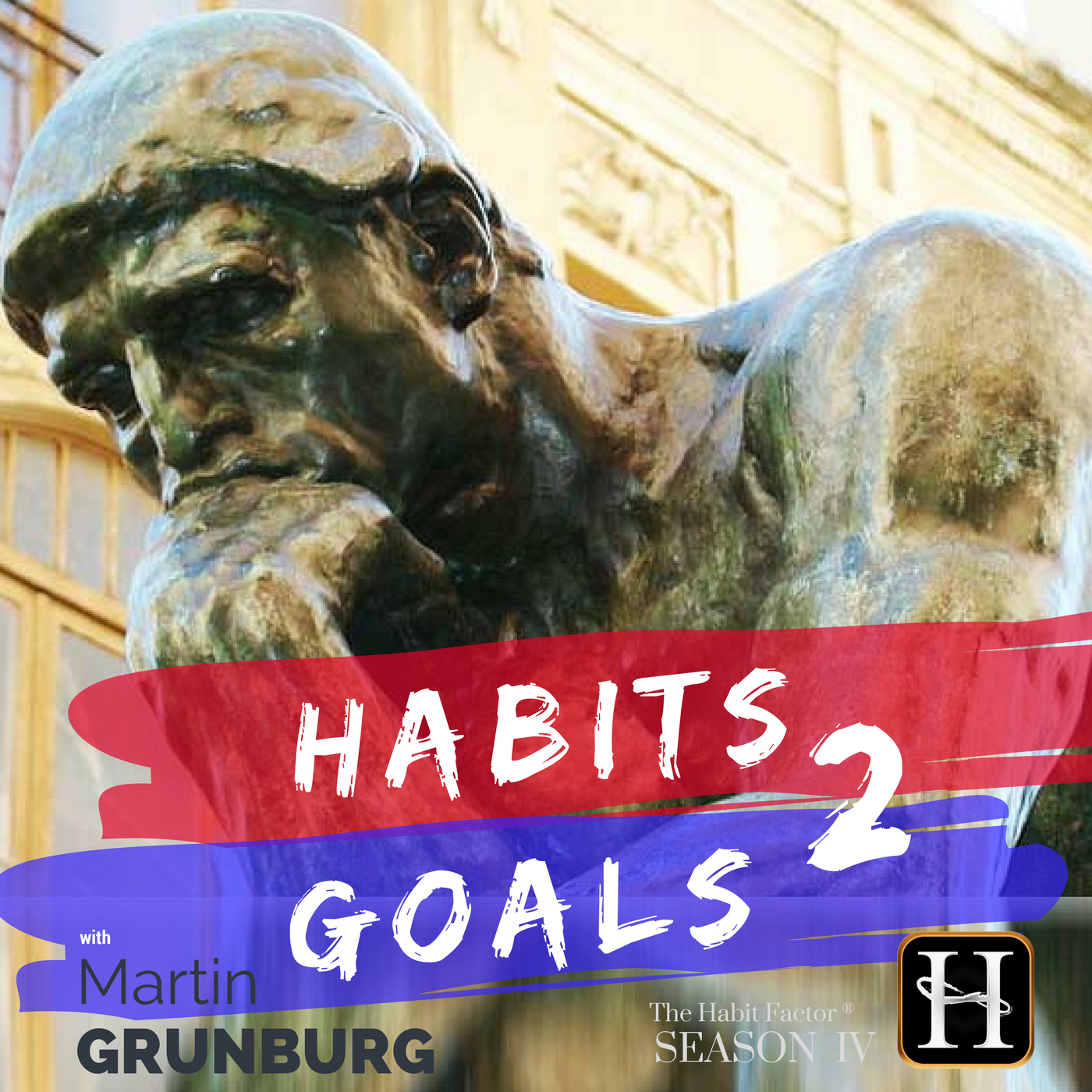
How to Spin Failure to Win
“It's important to regard failure as an event and not a person.” Tweet ThisOn your unique journey to a more balanced and successful life, failure is inevitable. One of the biggest obstacles to achieving your goals is separating your sense of self from any particular instance of failure (2:44). Rather than labeling yourself as a failure after a tough setback or challenge, shift your perspective and simply view the failure for what it was: an event.“Failure is not the opposite of success; it's a prerequisite.” Tweet ThisResearch (or quickly Google ; ) the autobiography of any one of your favorite heroes and you will notice that each and every one has essentially failed their way toward success (5:02). Here are a few ways setbacks can be overcome more easily... (9:48):Continuing to move forward assertivelyFrequently attempting new and challenging thingsIdentify a "winning" modelReverse engineering the desired outcomeWhile almost everyone tends to overestimate what they can accomplish in the short term, they grossly underestimate what they can achieve in the long-term. Of course "success" is the ultimate end-goal where patience becomes a critical ingredient and it's only via the power of habit that one can develop those essential mindsets required in order to spin failure to win!“Genius is eternal patience” –Michelangelo Tweet This SubscribeDon't miss a single episode. Subscribe to the podcast to get each episode sent directly to you.ResourcesThe Habit Factor appThe Habit Factor templateThe Habit Factor bookBig Brothers Big Sisters This is a public episode. If you’d like to discuss this with other subscribers or get access to bonus episodes, visit habits2goals.substack.com/subscribe
18:4709/02/2015
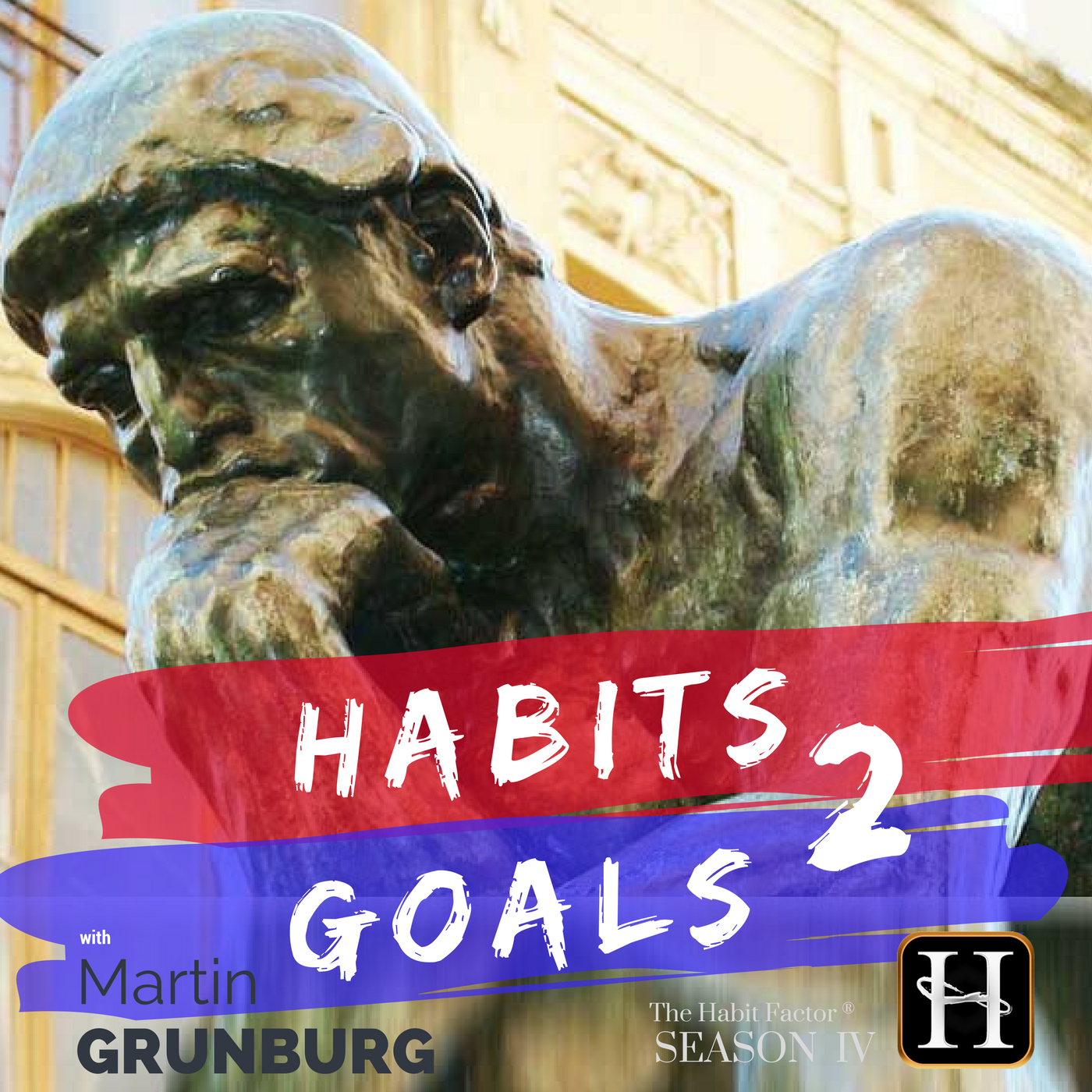
Creating Your Happiness
By: Nick Palkowski “Virtues must be a product of habit” Tweet This Everyone wants to be a success…. but how do you define success? Without a personalized target in mind, it’s tough to have a clear direction. “You can’t hit a target you can’t see.” ~Zig Ziglar used to say. That’s why defining your ideal [...] This is a public episode. If you’d like to discuss this with other subscribers or get access to bonus episodes, visit habits2goals.substack.com/subscribe
23:3402/02/2015
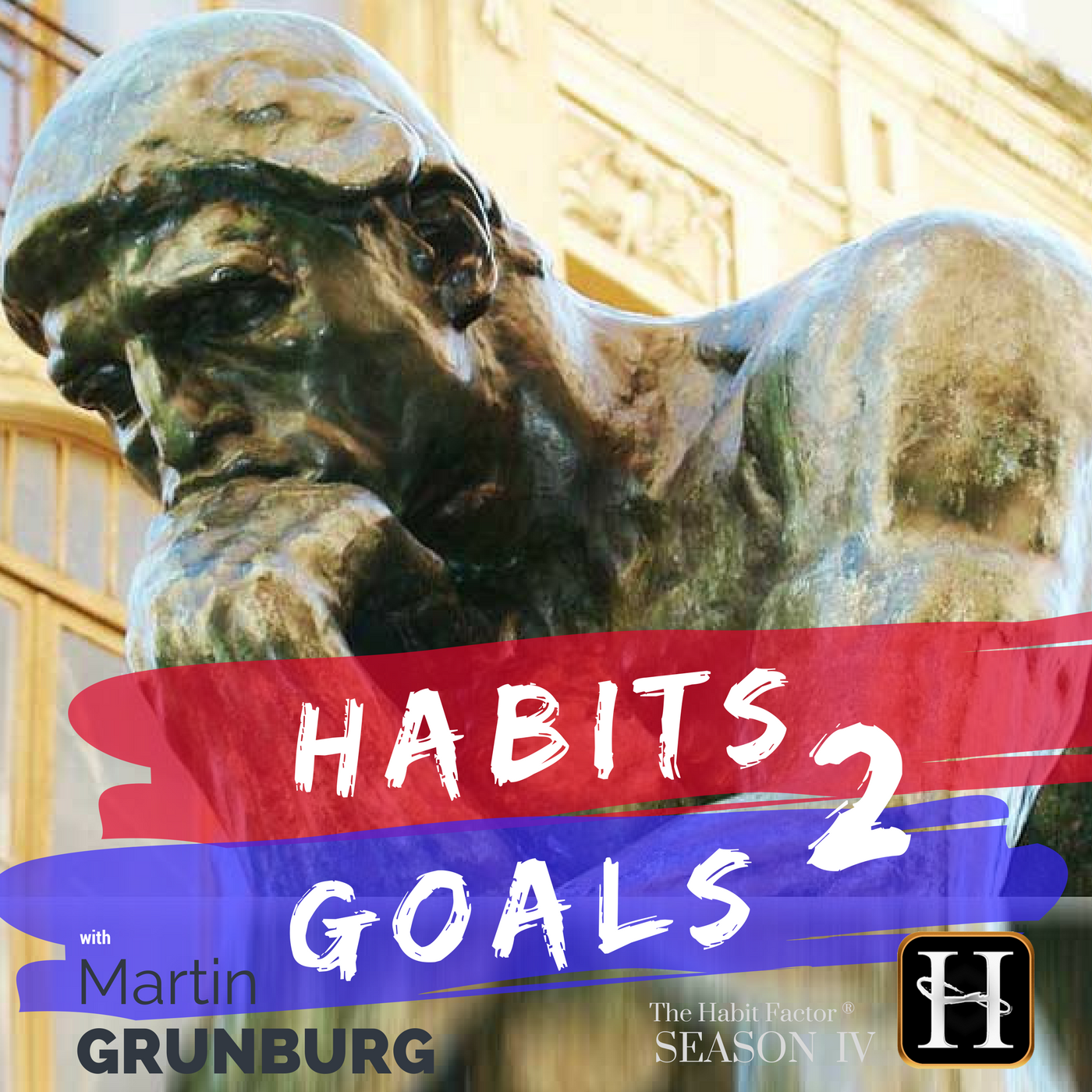
Unlocking Your Willpower
“If you are trying to achieve goals that are not in line with governing principles, than you’re making things much harder then they ought to be.” Tweet This Do you seem to lack the willpower you need when it comes to accomplishing your goals? If so, don’t sweat it— there’s actually a better way! It’s important [...] This is a public episode. If you’d like to discuss this with other subscribers or get access to bonus episodes, visit habits2goals.substack.com/subscribe
36:2226/01/2015
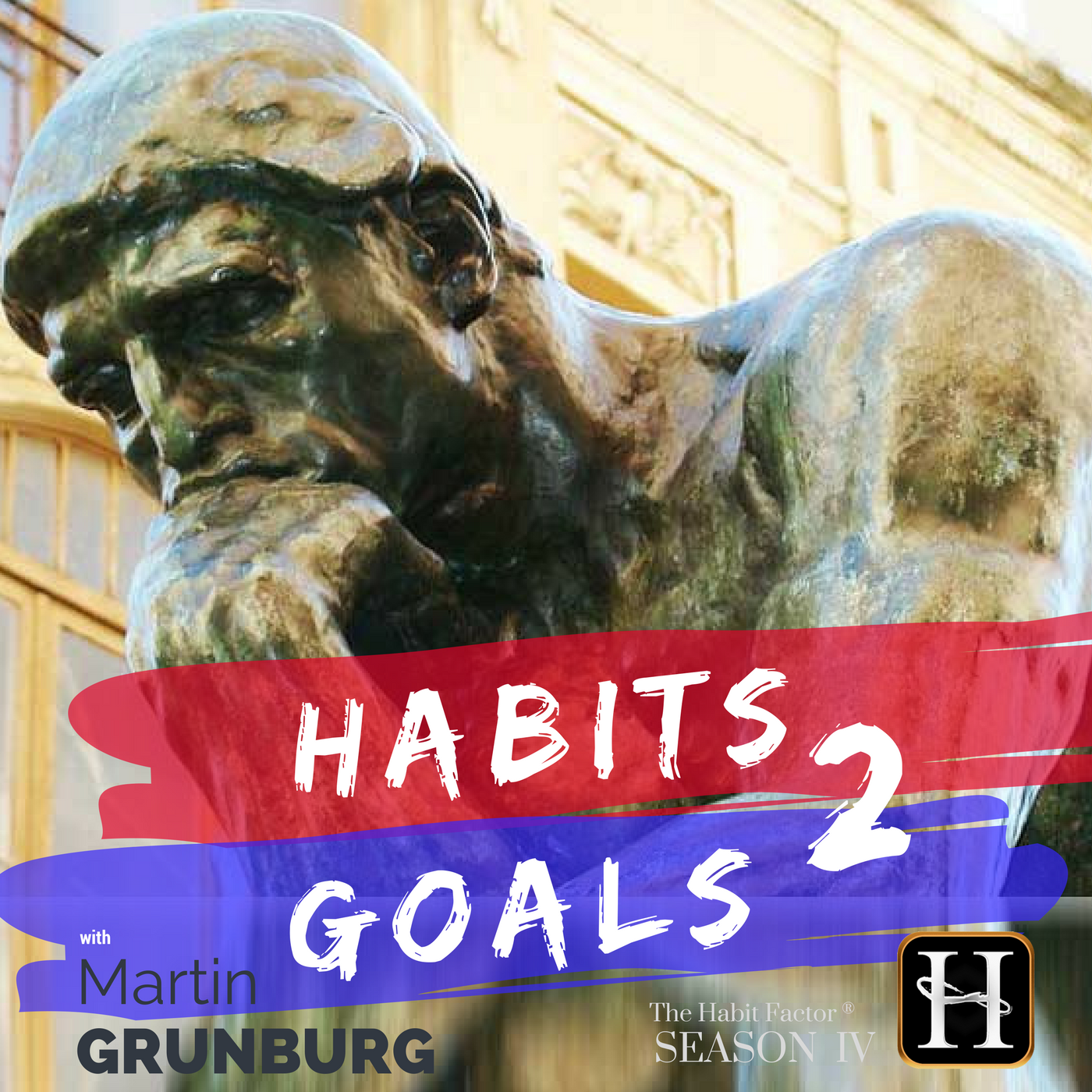
Why SMART Goals Aren’t So Smart
By: Nick Polkawski “Discipline is doing what you ought to do, when you ought to do it, whether you feel like it or not.” Tweet This Just about everyone has heard of S.M.A.R.T. goals, the standard for goal setting that has been around since the ‘80s. Which represent Specific, Measurable, Achievable, Relevant, and Time bound [...] This is a public episode. If you’d like to discuss this with other subscribers or get access to bonus episodes, visit habits2goals.substack.com/subscribe
25:3719/01/2015
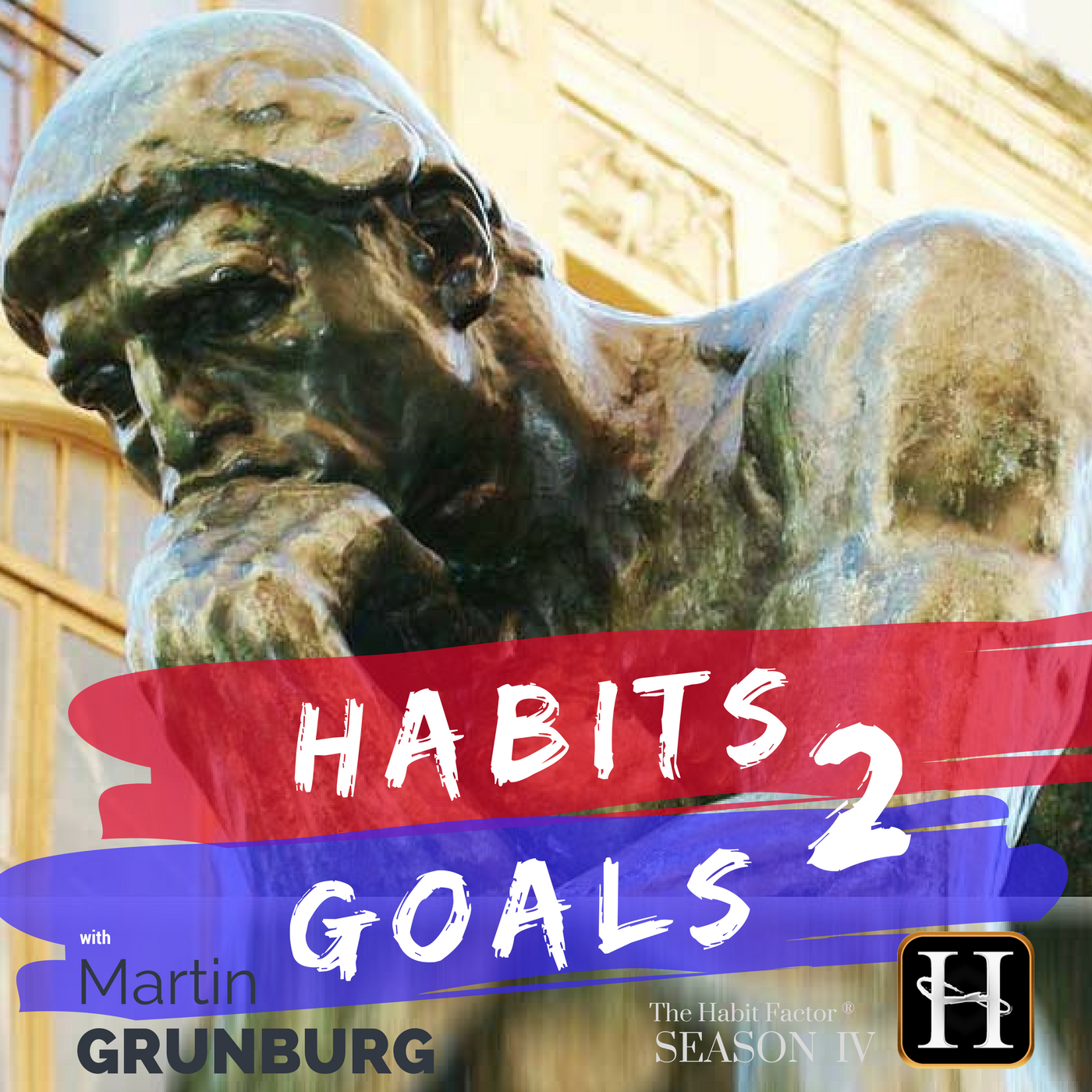
How Values Direct Your Behavior
By: Nick Palkowski “The most successful entrepreneurs define their values first, then live them.” Tweet This It seems so many of us have become lost in our TO-DO lists. And, not by accident as even the most notable goal-achievement process, S.M.A.R.T. goals, leaves a user starring at a long TO-DO list and wondering, “Okay, what’s my [...] This is a public episode. If you’d like to discuss this with other subscribers or get access to bonus episodes, visit habits2goals.substack.com/subscribe
32:4912/01/2015
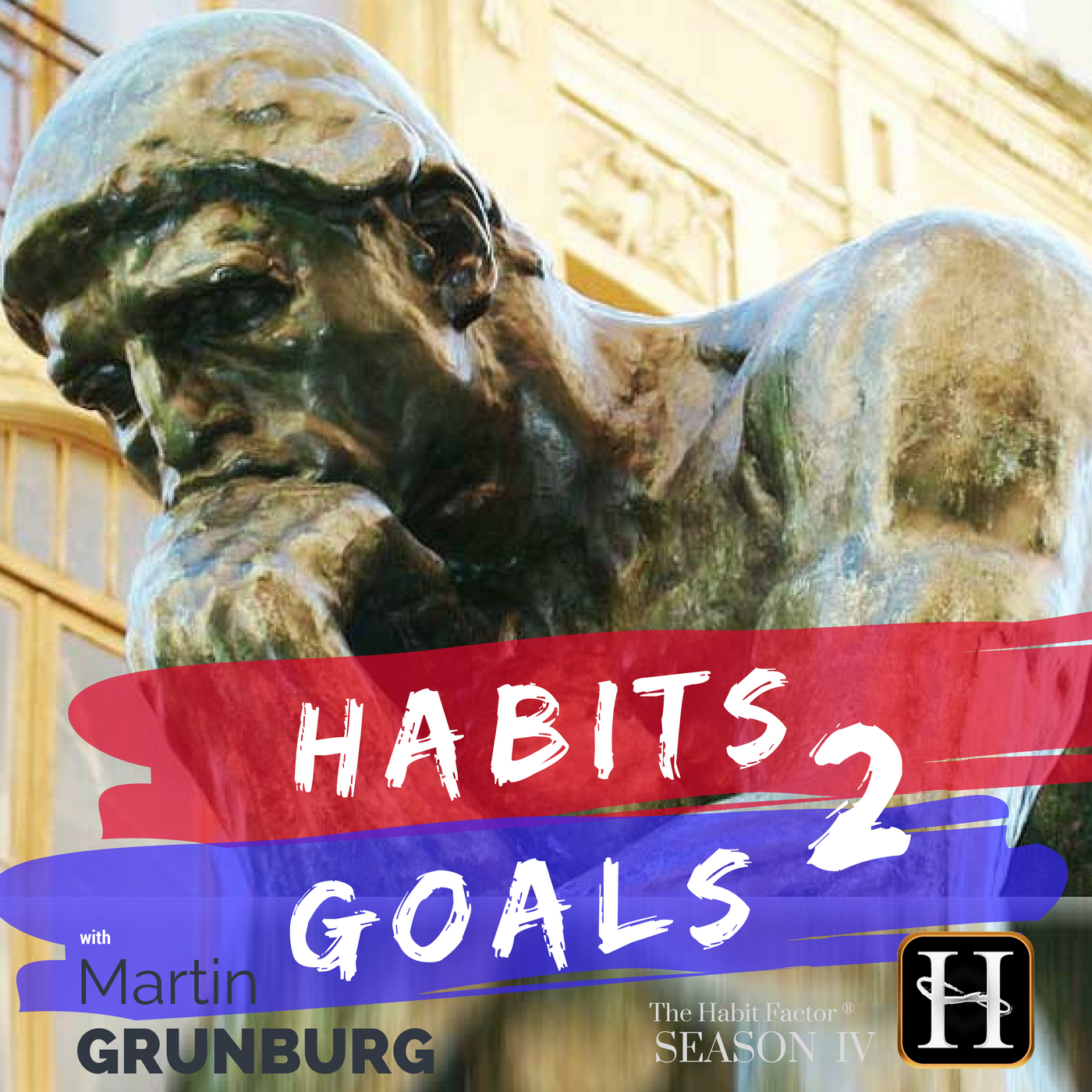
Habit Alignment: Crafting Habits That Align with your Goals
By: Nick Palkowski “Starting with the proper intention is everything…” Tweet This There is incredible power when one “begins with the end in mind”. Dr. Stephen Covey’s “Habit #2″ from The Seven Habits of Highly Effective People. And, that’s exactly where you’ll want to start to create the right habits that will propel you towards [...] This is a public episode. If you’d like to discuss this with other subscribers or get access to bonus episodes, visit habits2goals.substack.com/subscribe
33:1505/01/2015
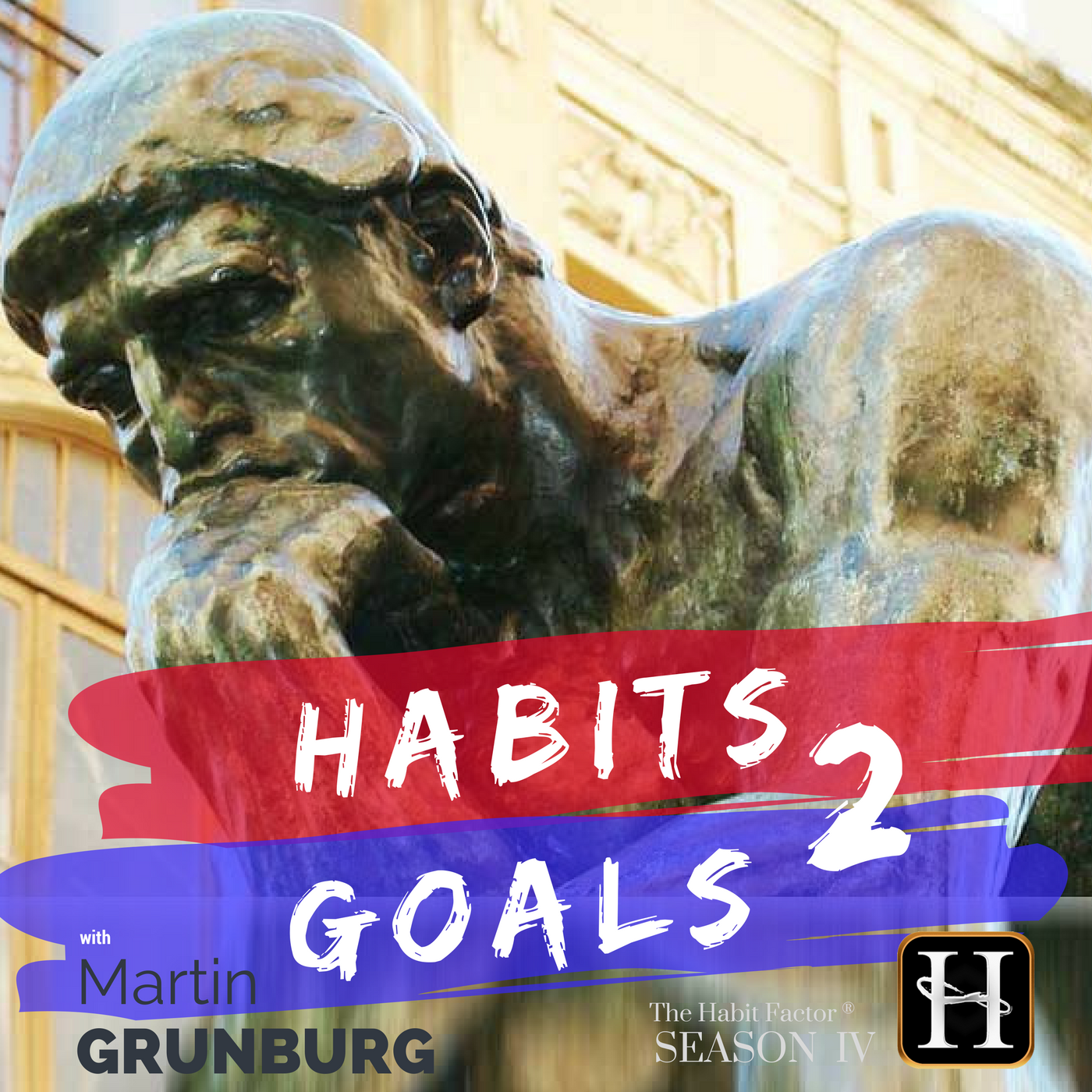
What Makes a Good Habit
“A habit is often a recurring behavior without conscience thought.” Tweet This By: Nick Palkowski (Show Host) What habits do you need to create for your ideal life? The reason habits are so powerful is because habits help you use your energy and willpower in the most efficient way possible. In this episode of the [...] This is a public episode. If you’d like to discuss this with other subscribers or get access to bonus episodes, visit habits2goals.substack.com/subscribe
33:2126/12/2014
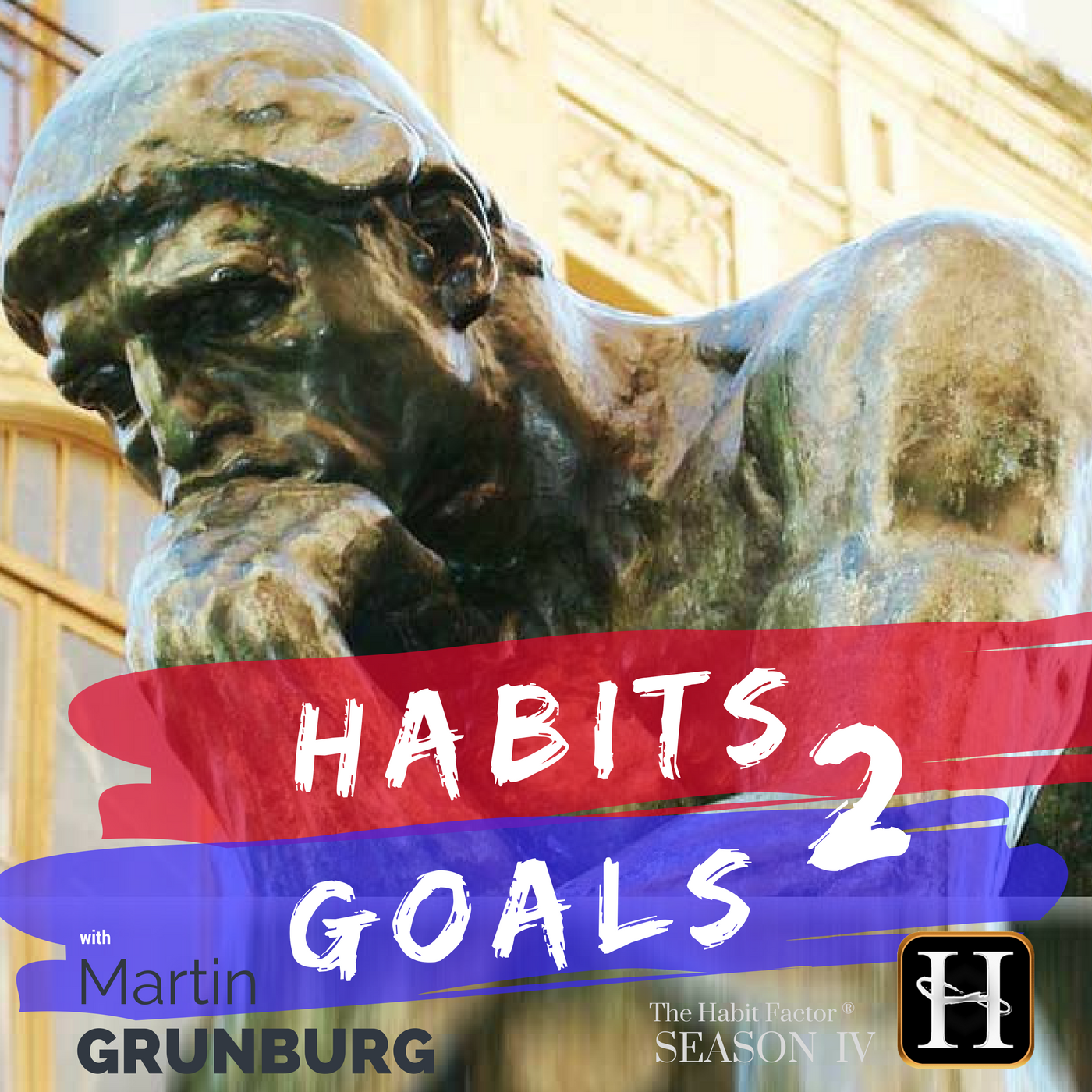
Who Is The Podcast For?
Are you ready to put ideas into action? By: Nick Palkowski (Show Host) Then this podcast is for you! In this episode of the podcast, we talk about you, the listener, and if this is the right podcast for you. We look at who this podcast is ideally for and who it is not right [...] This is a public episode. If you’d like to discuss this with other subscribers or get access to bonus episodes, visit habits2goals.substack.com/subscribe
12:1926/12/2014





